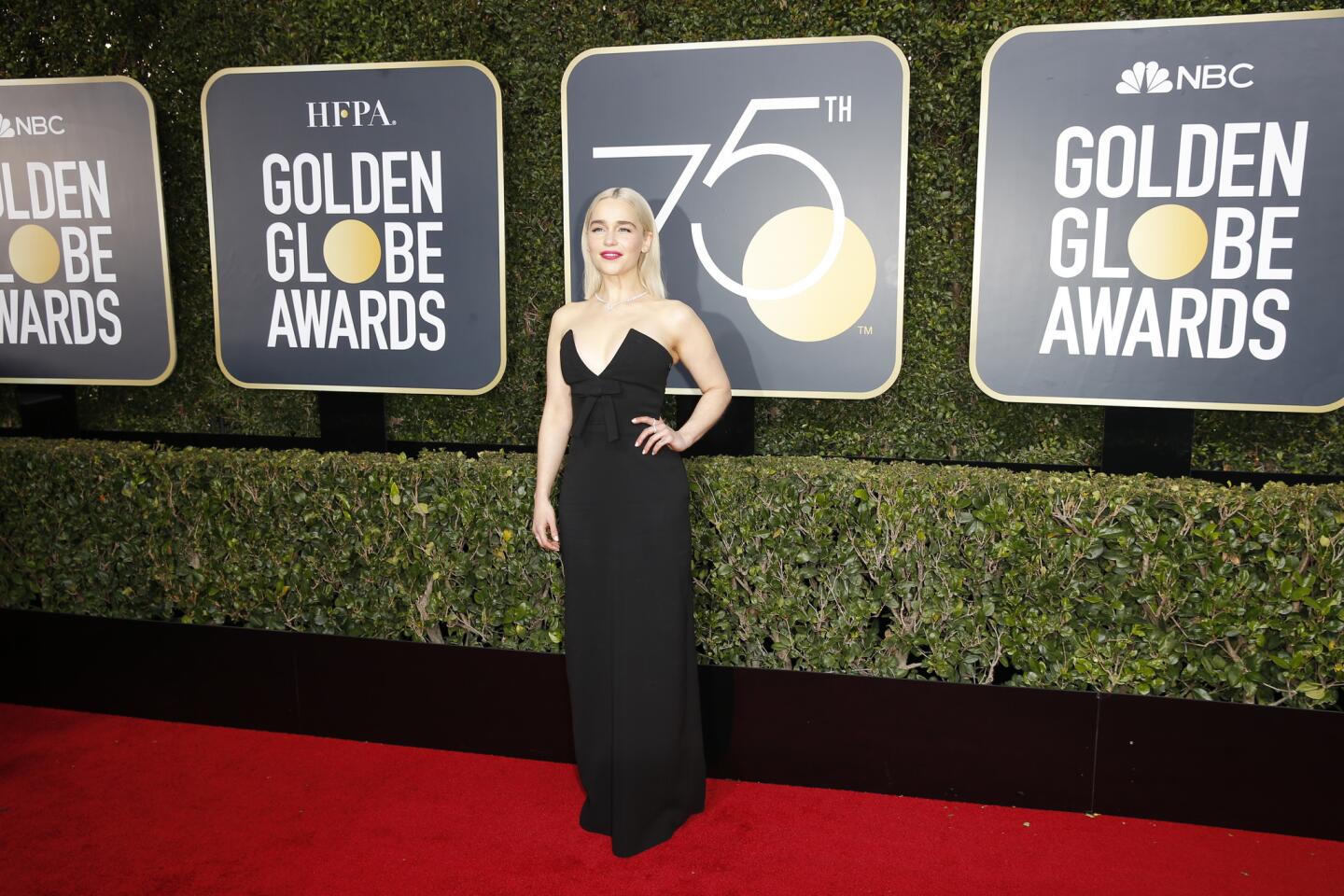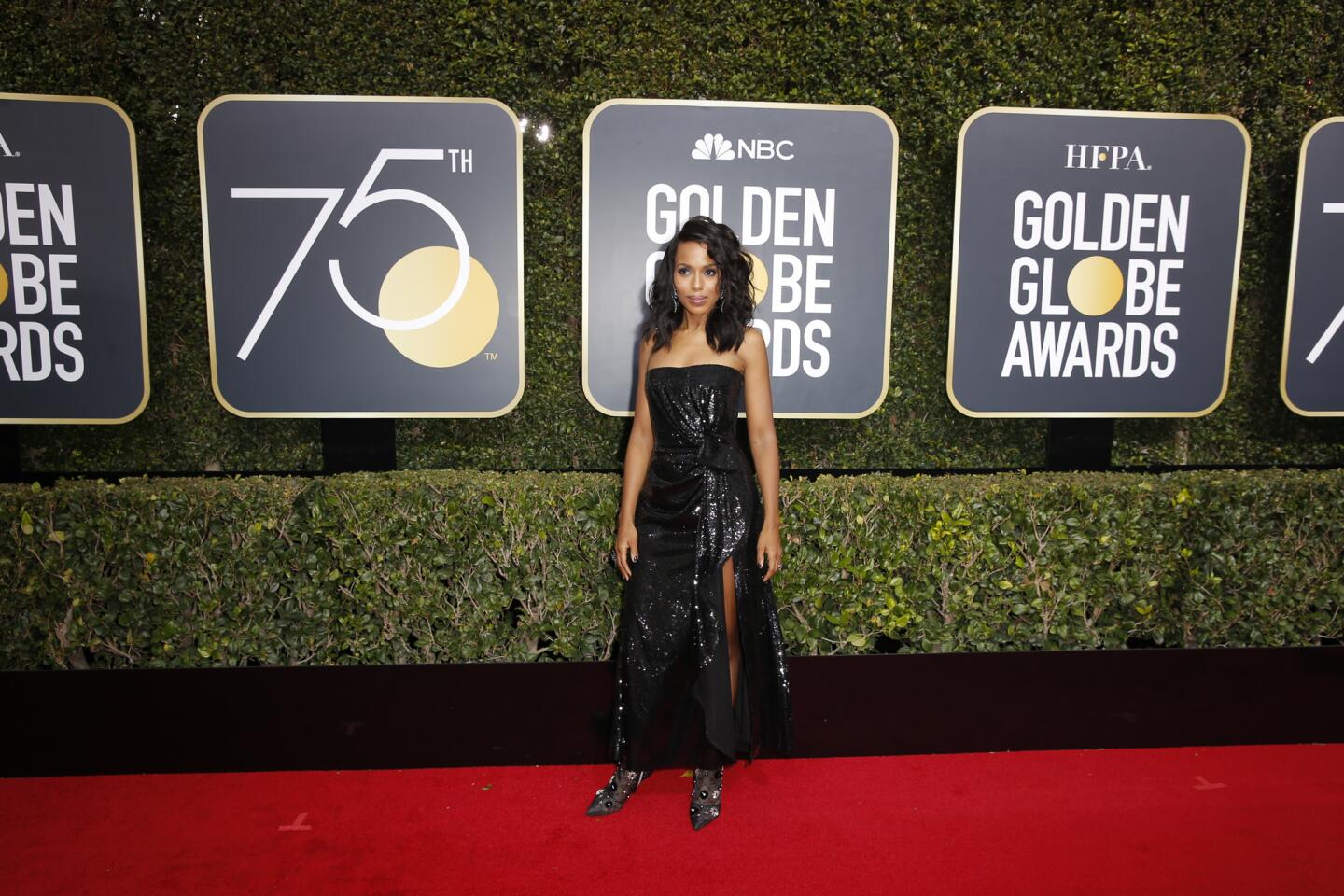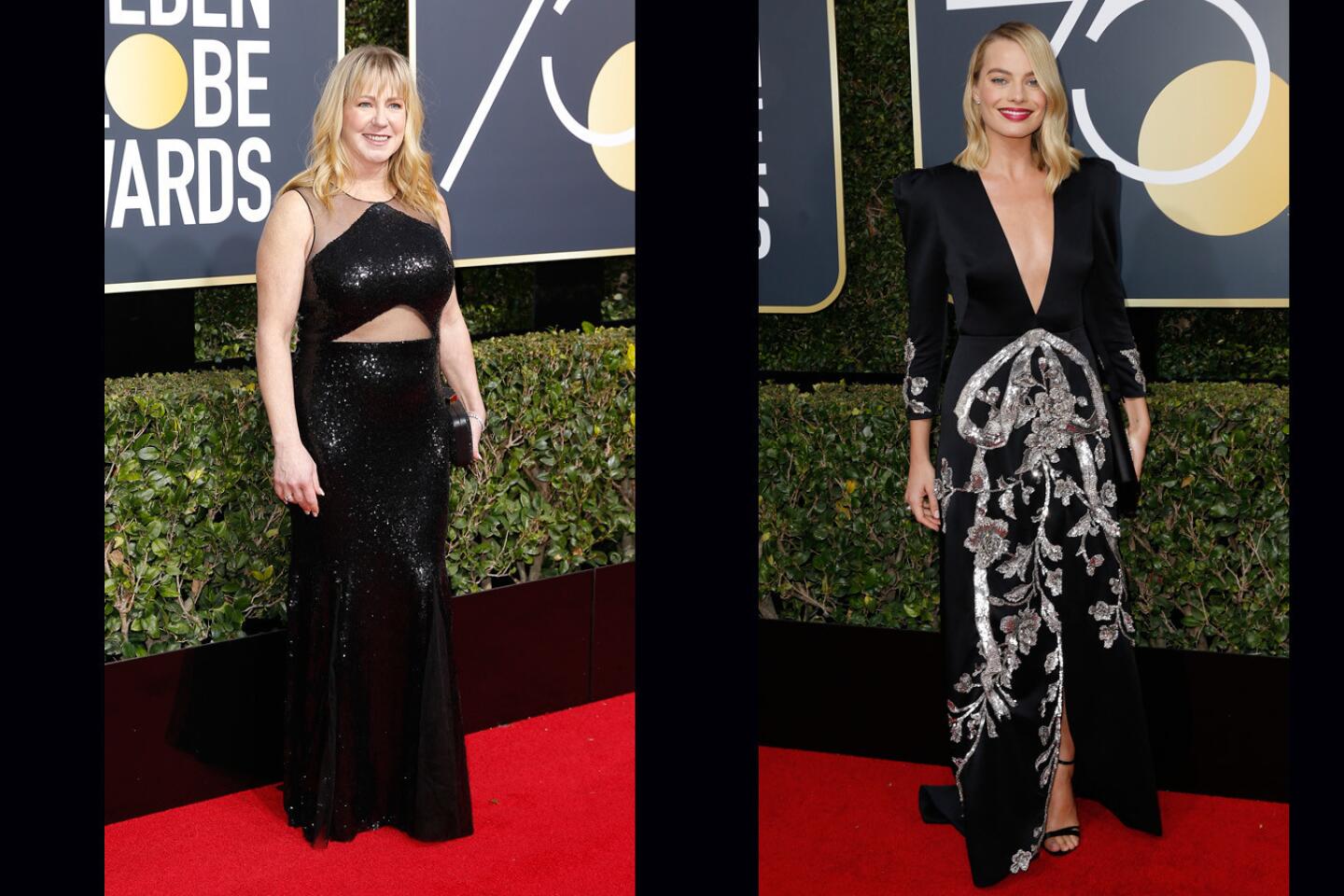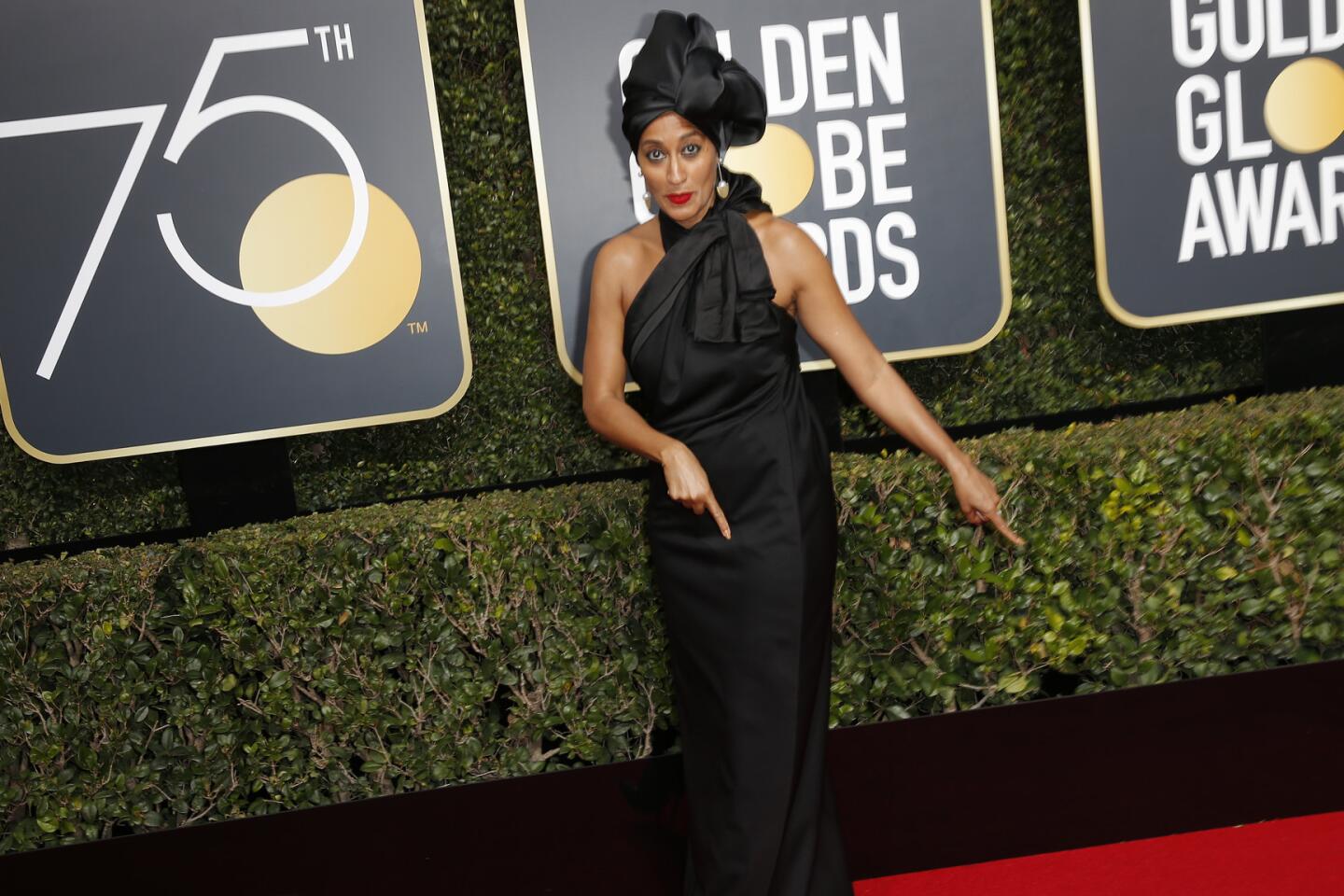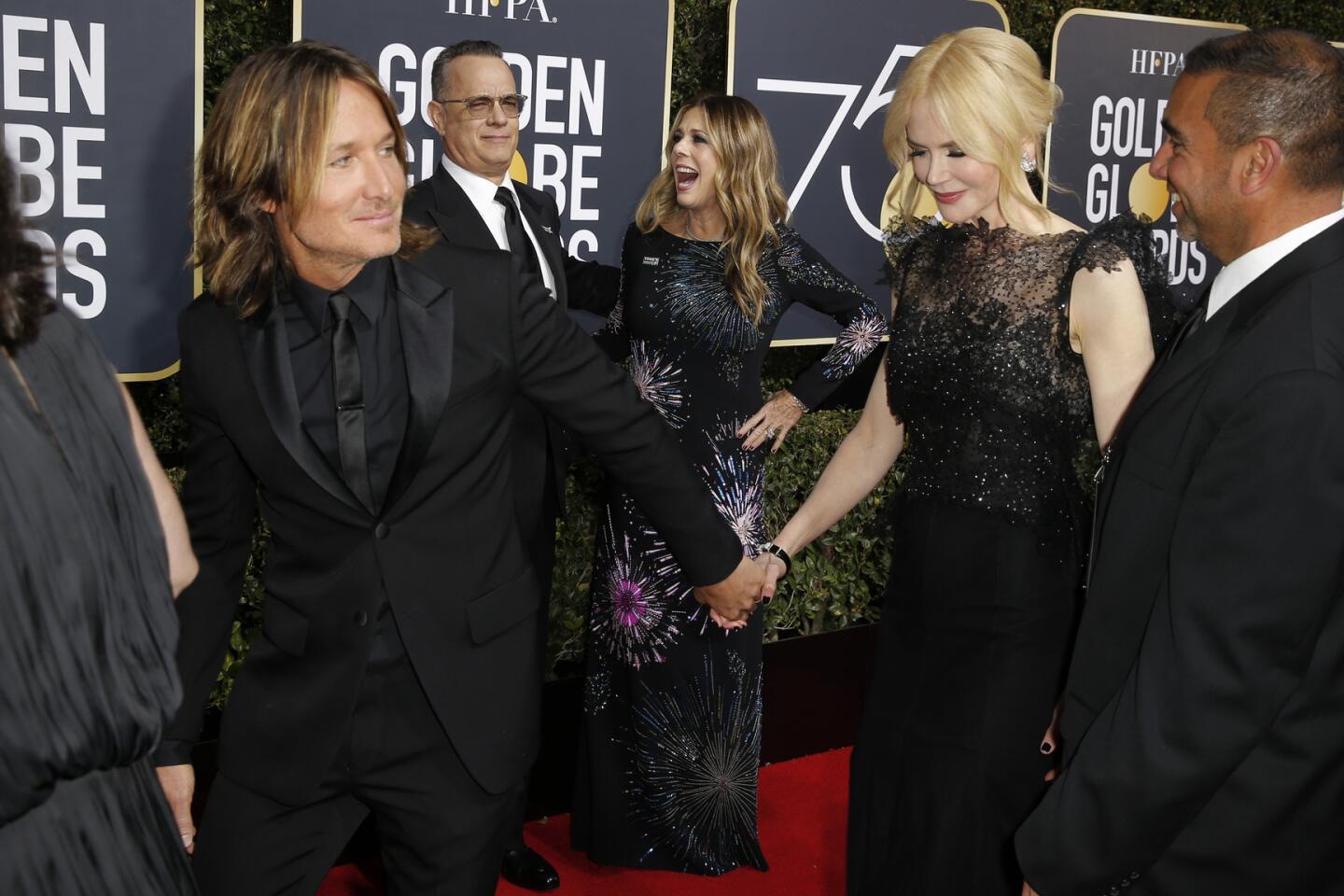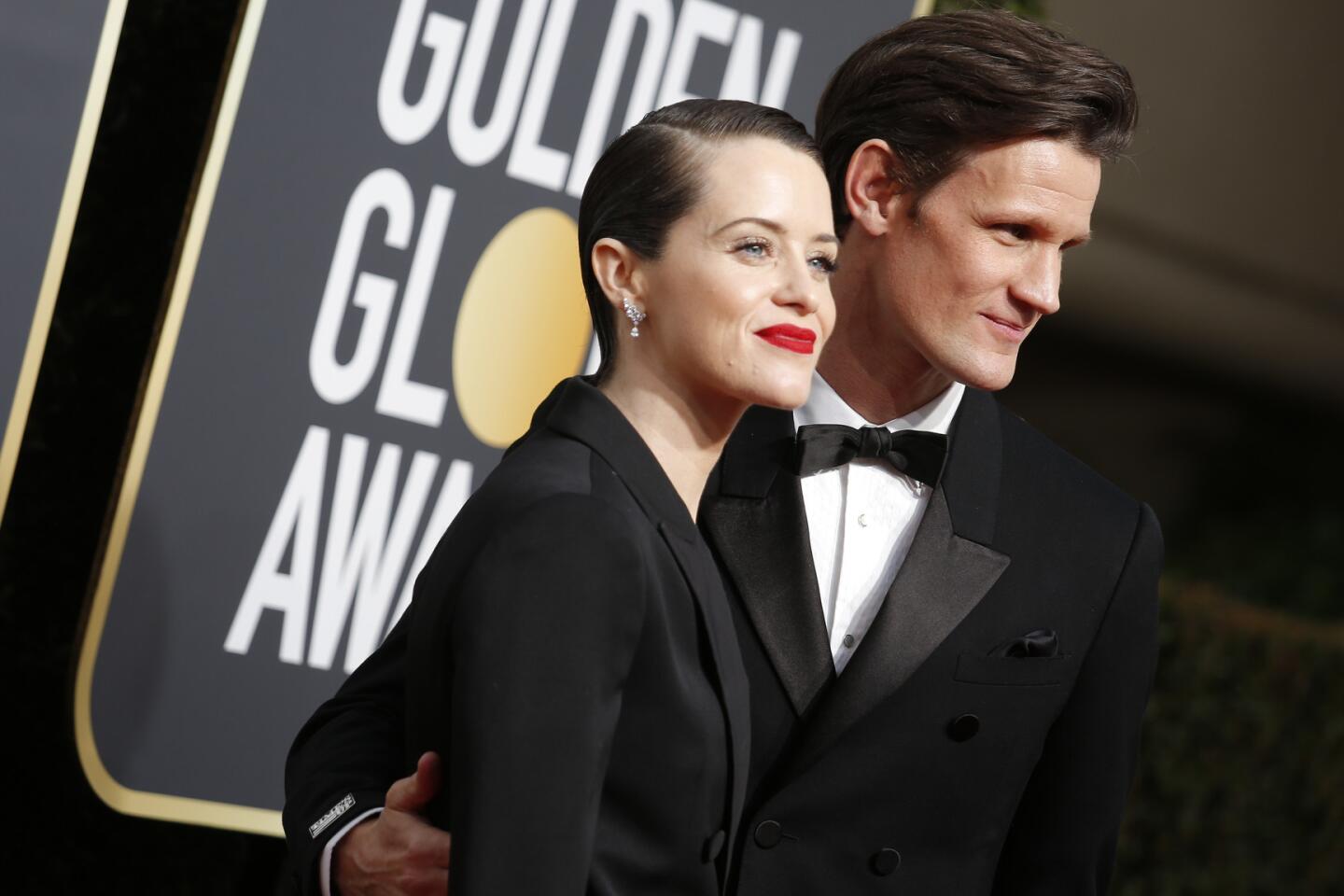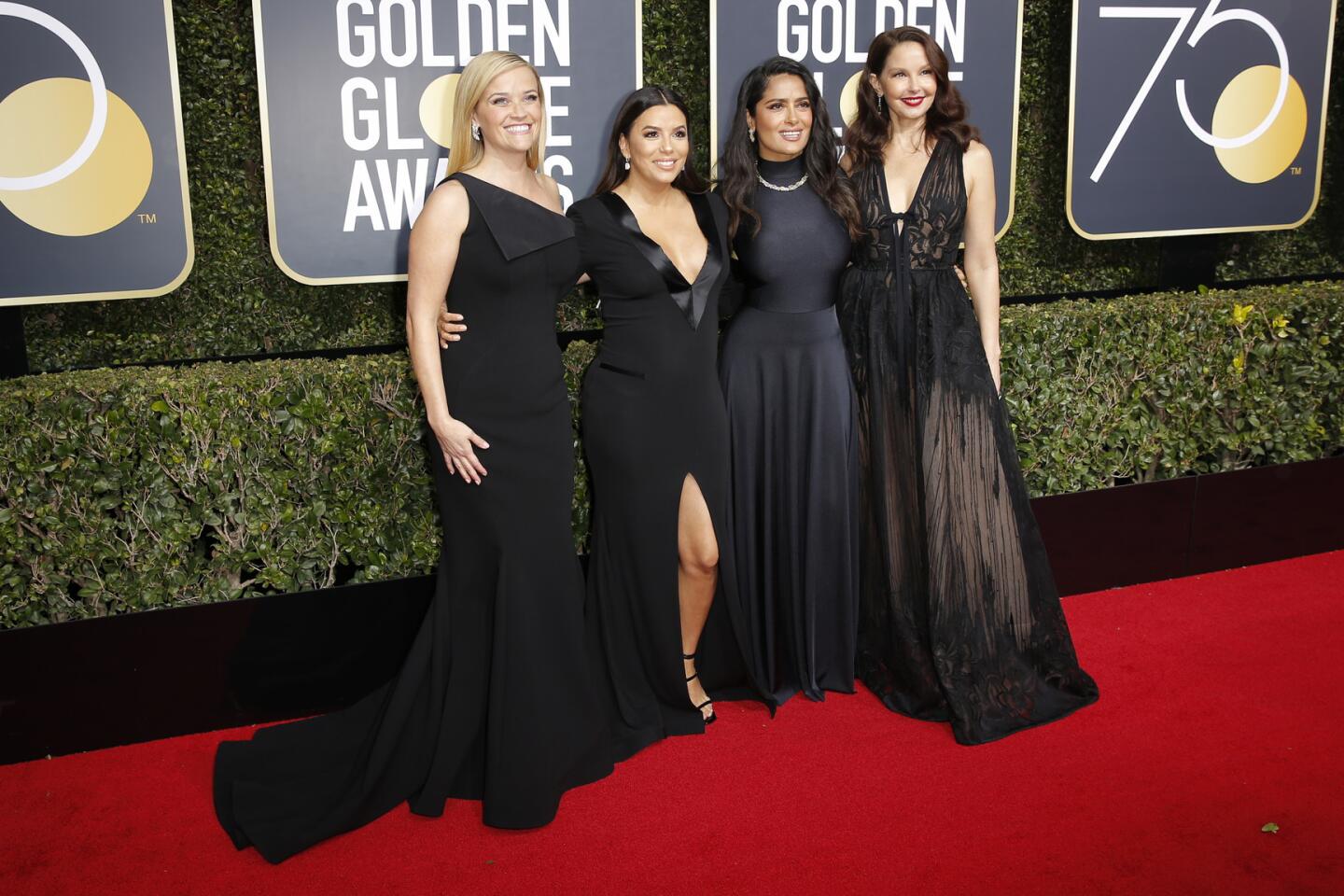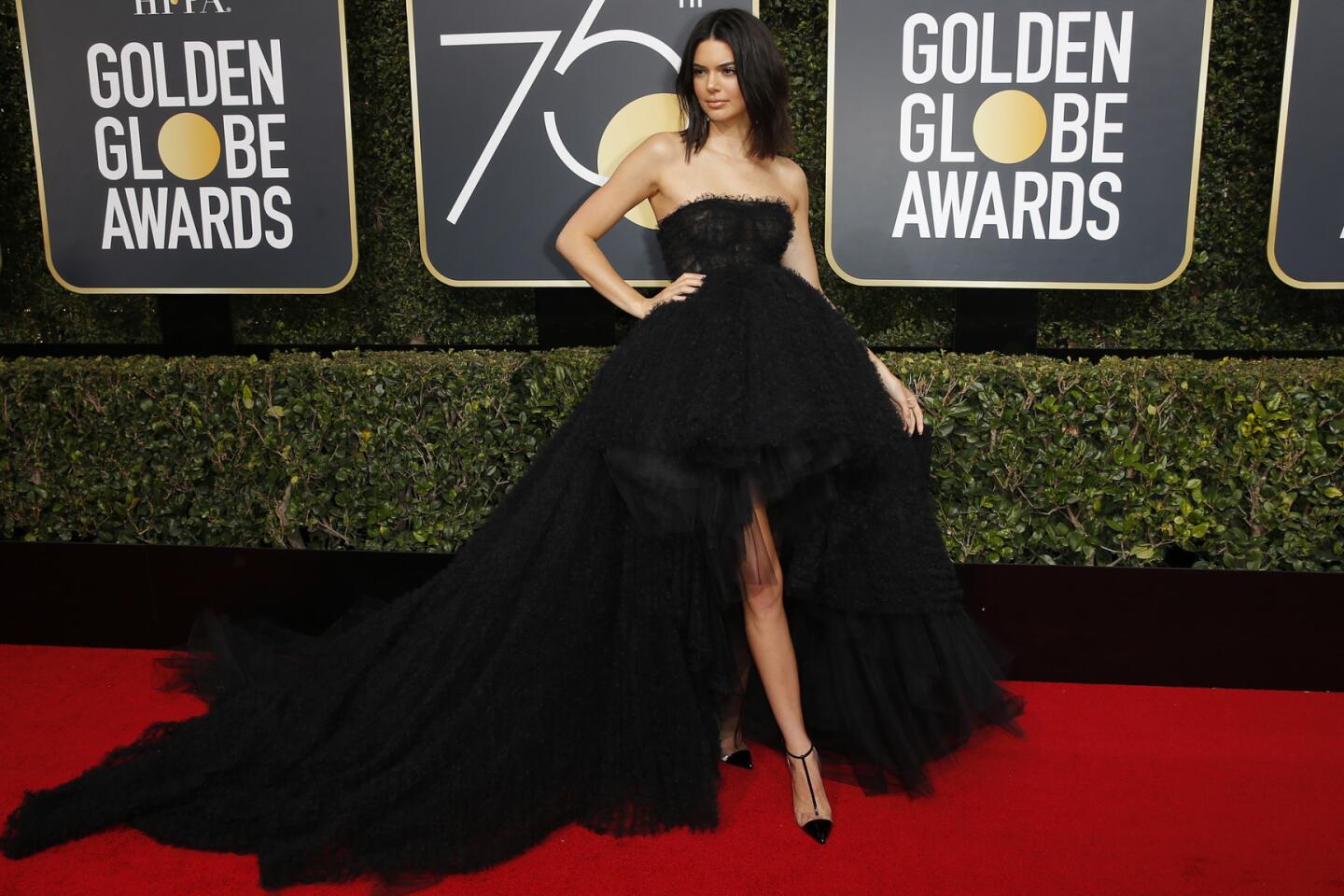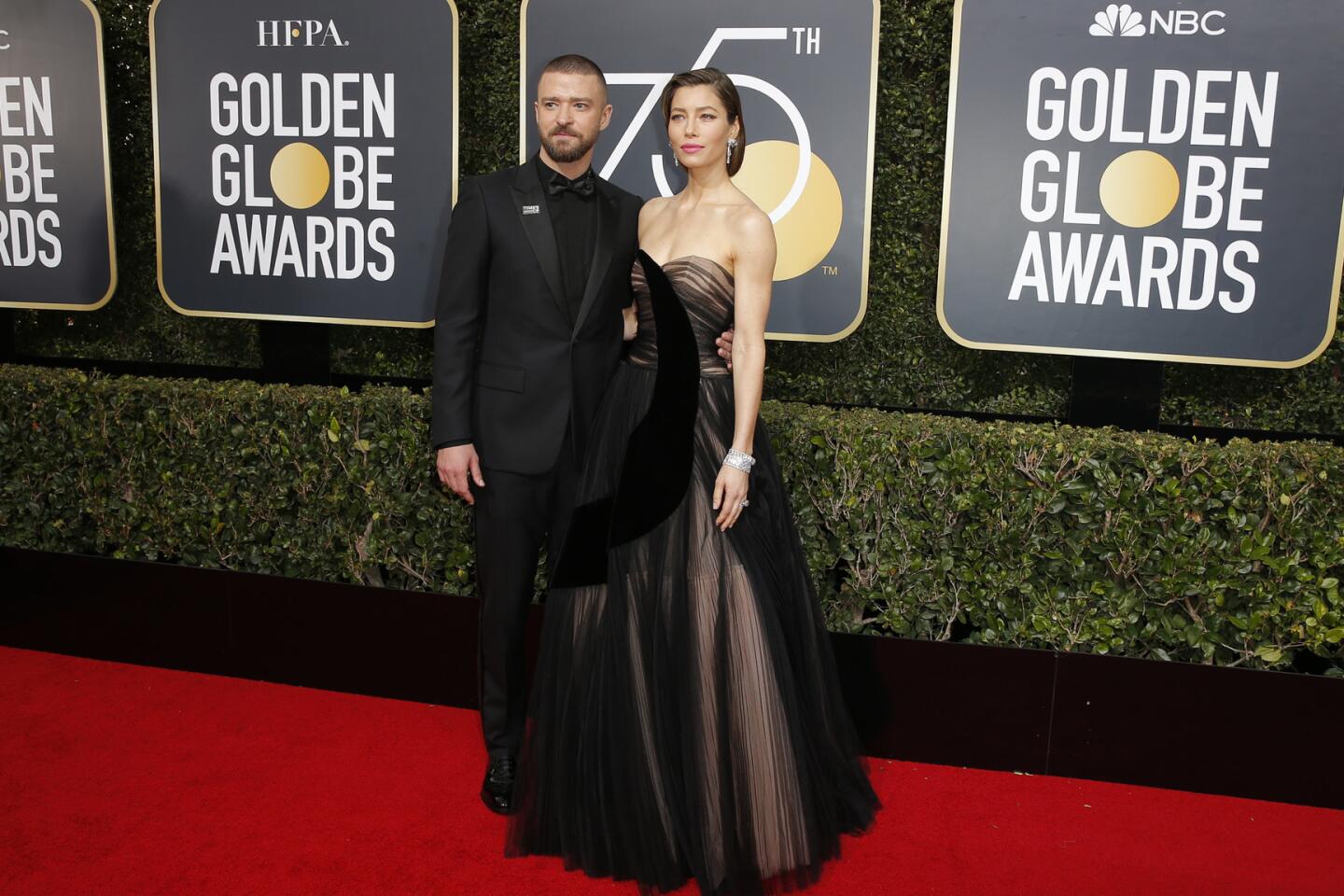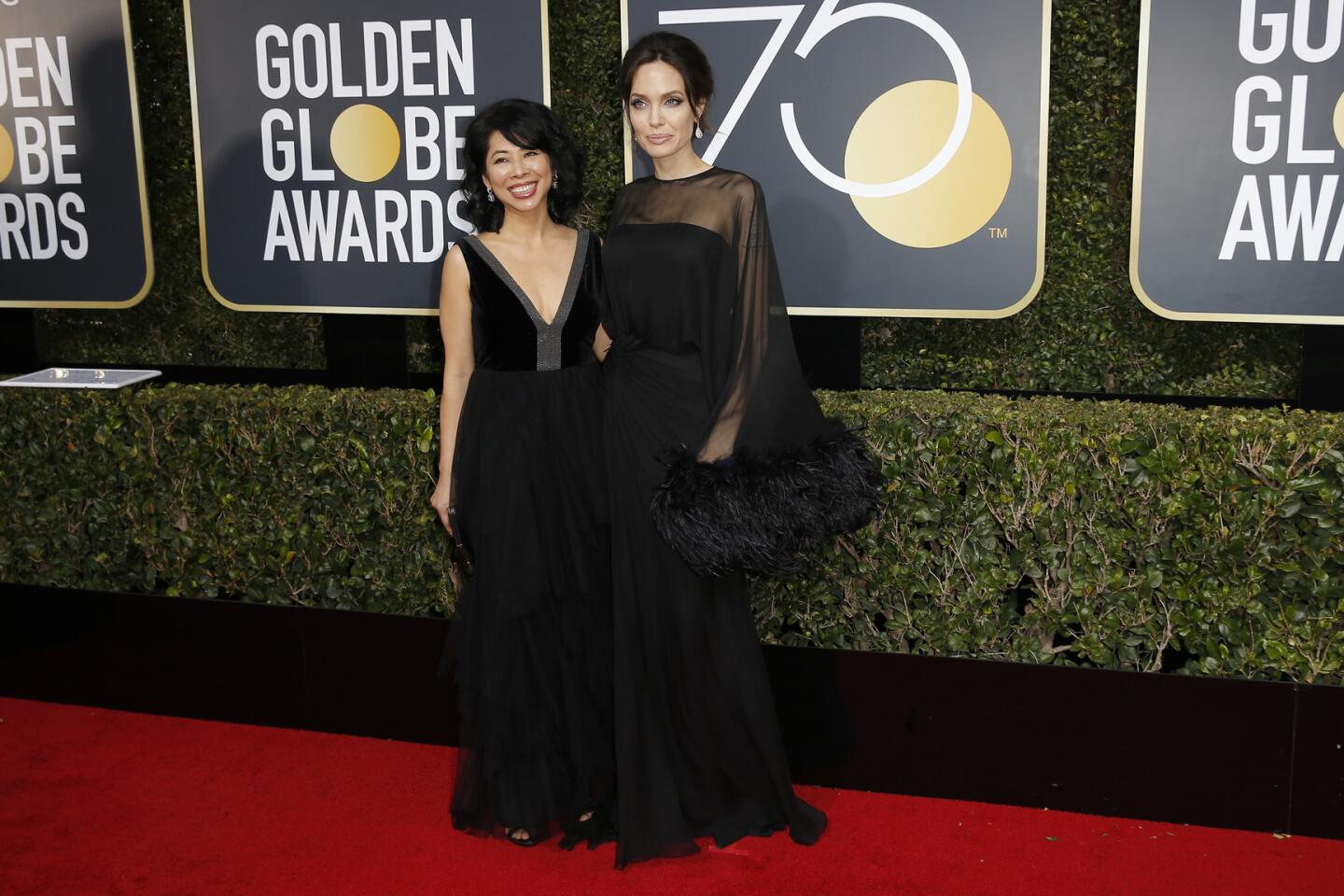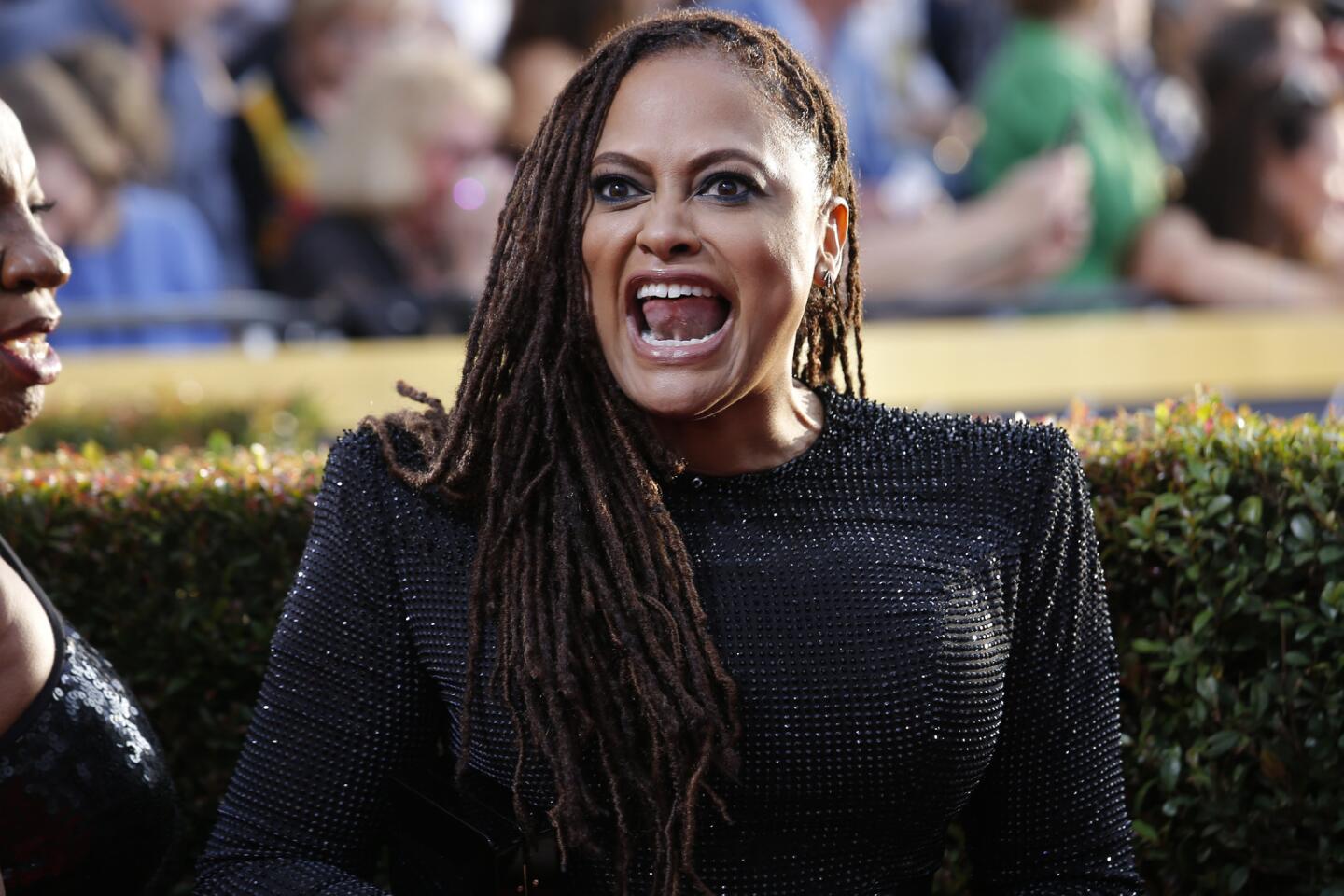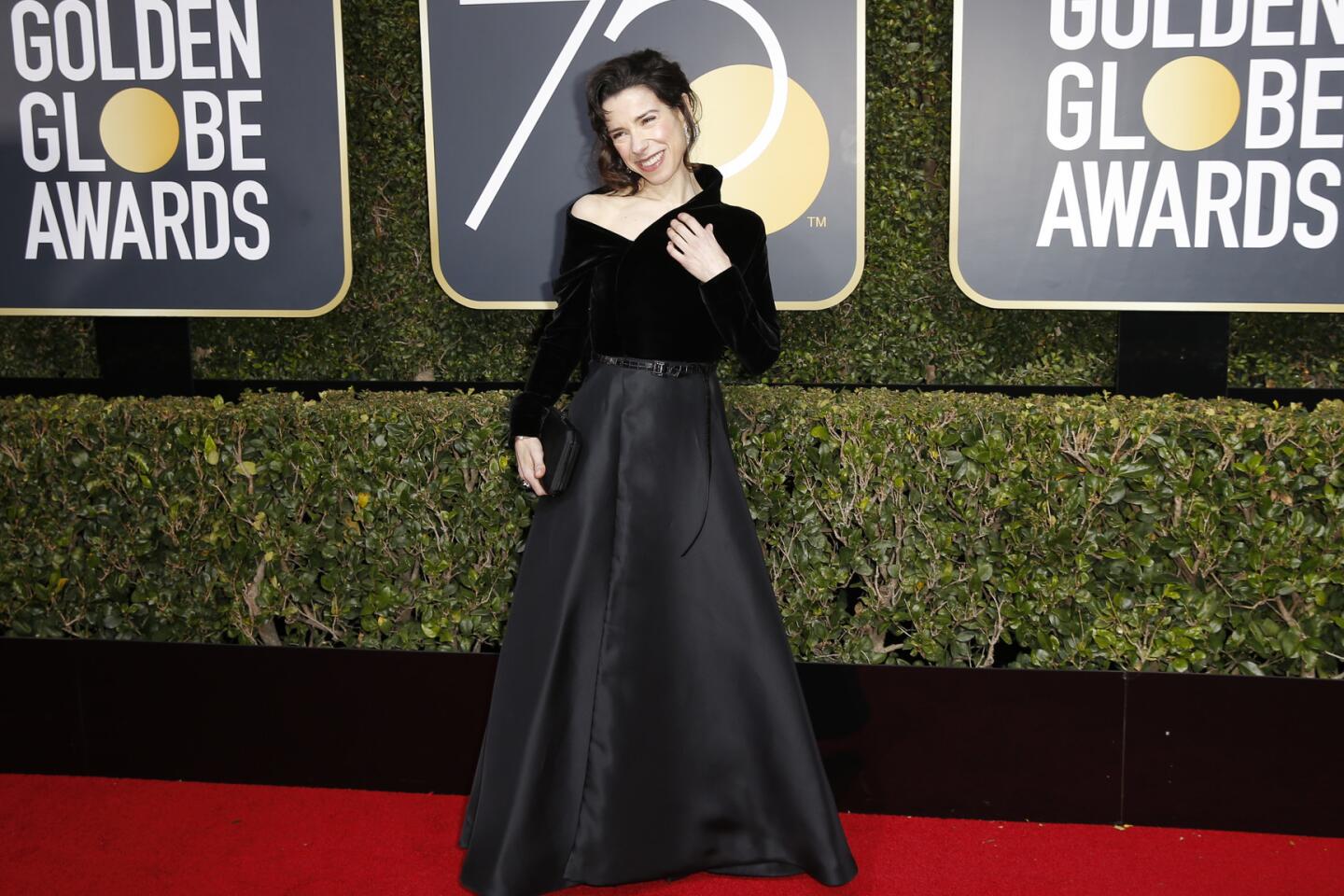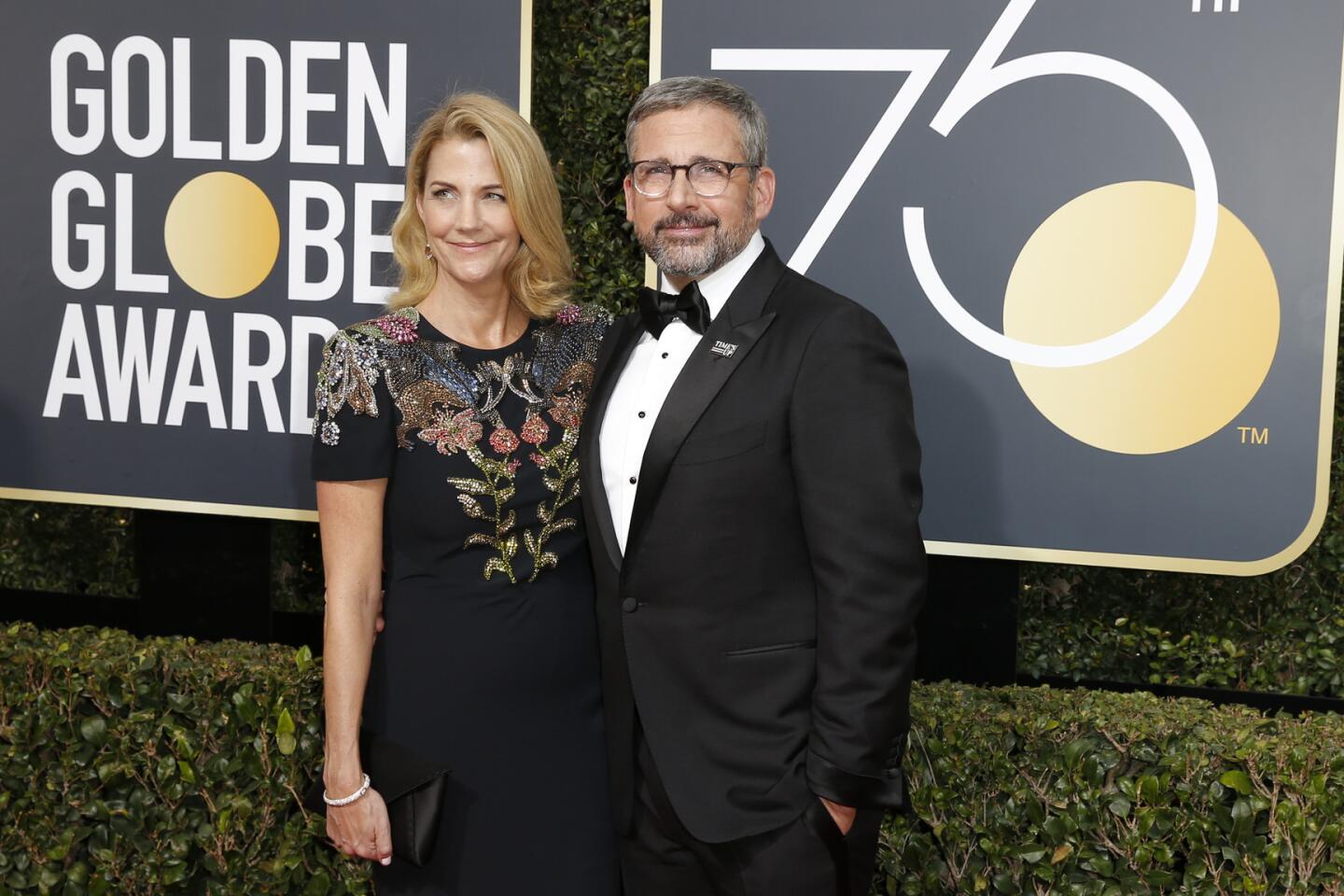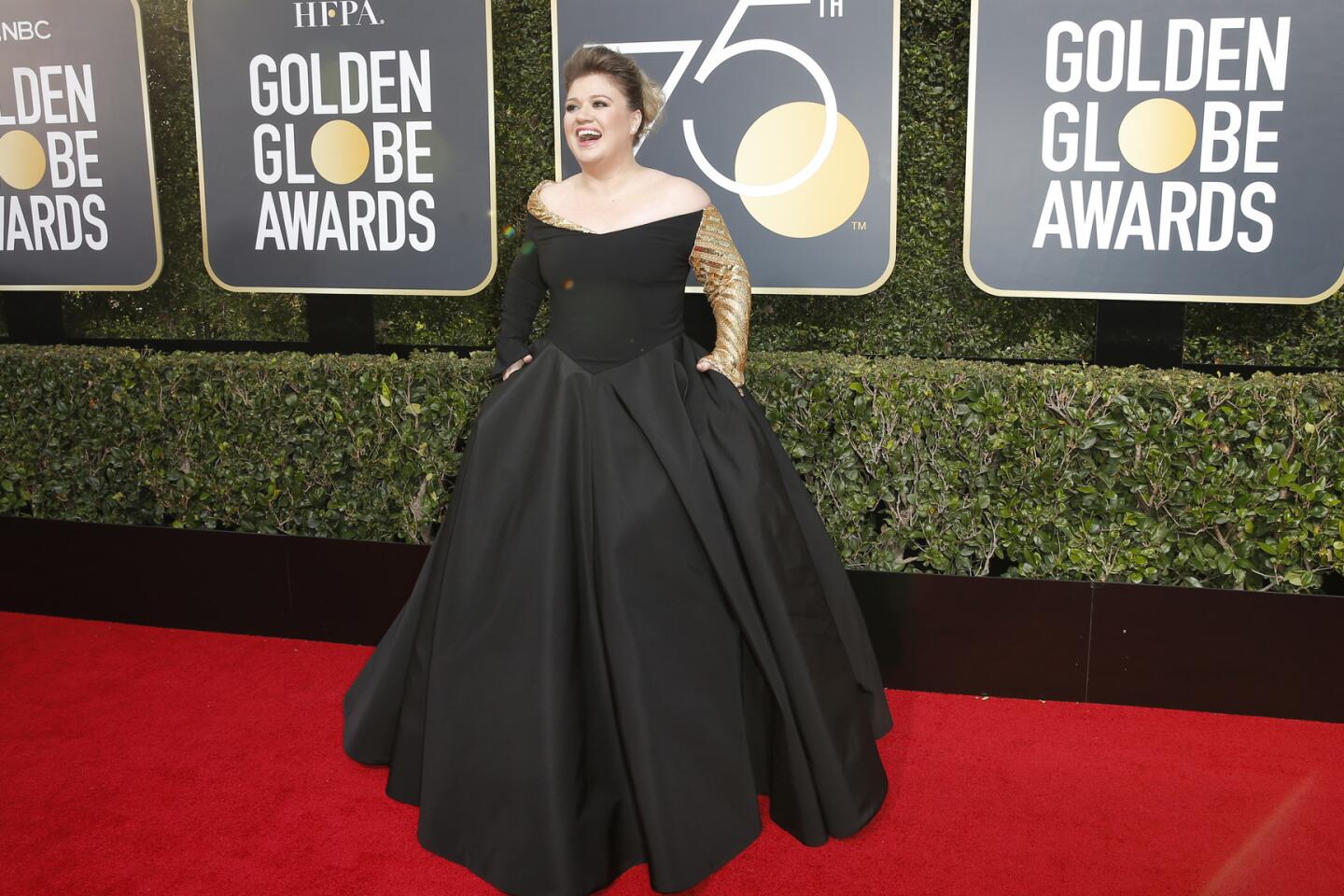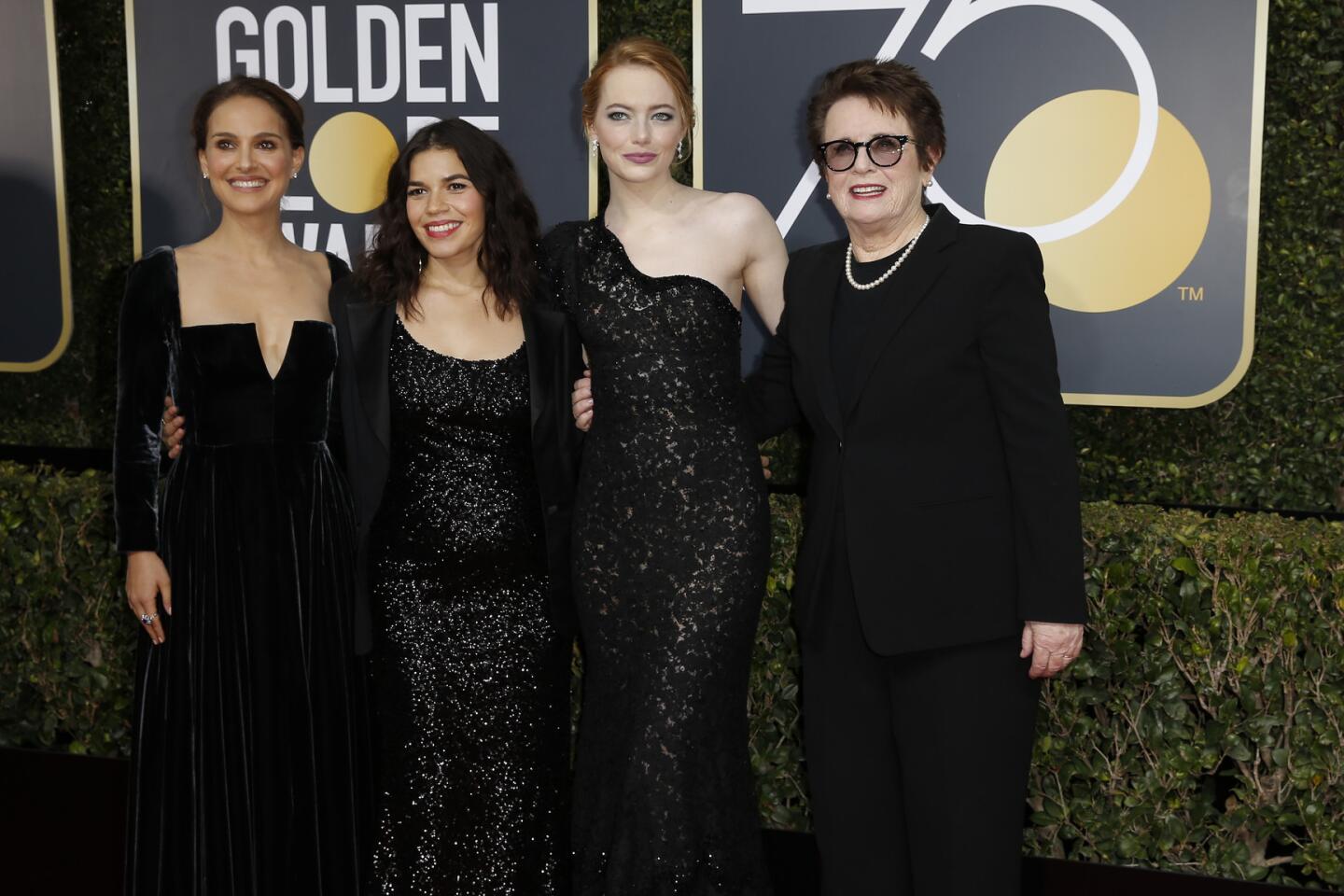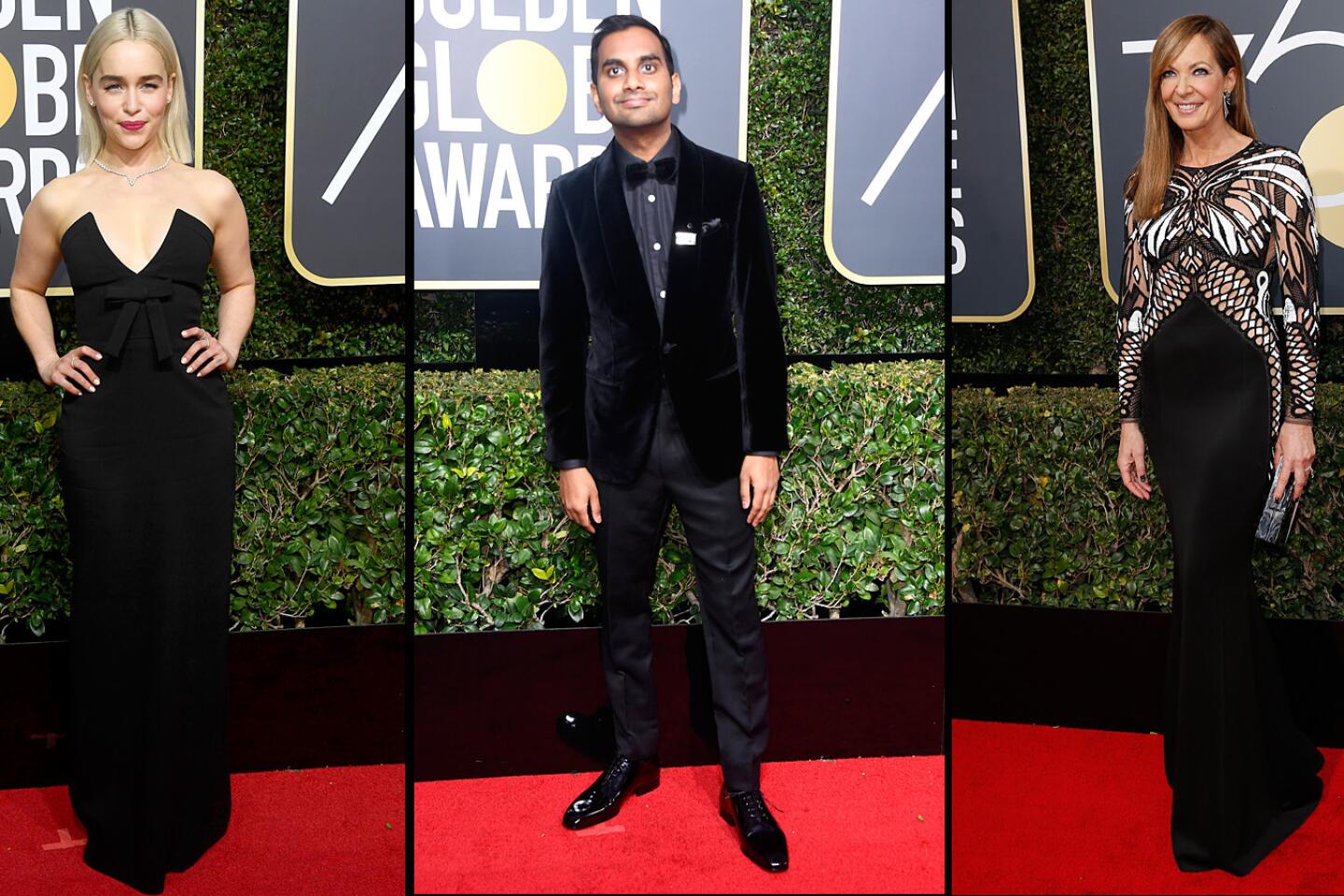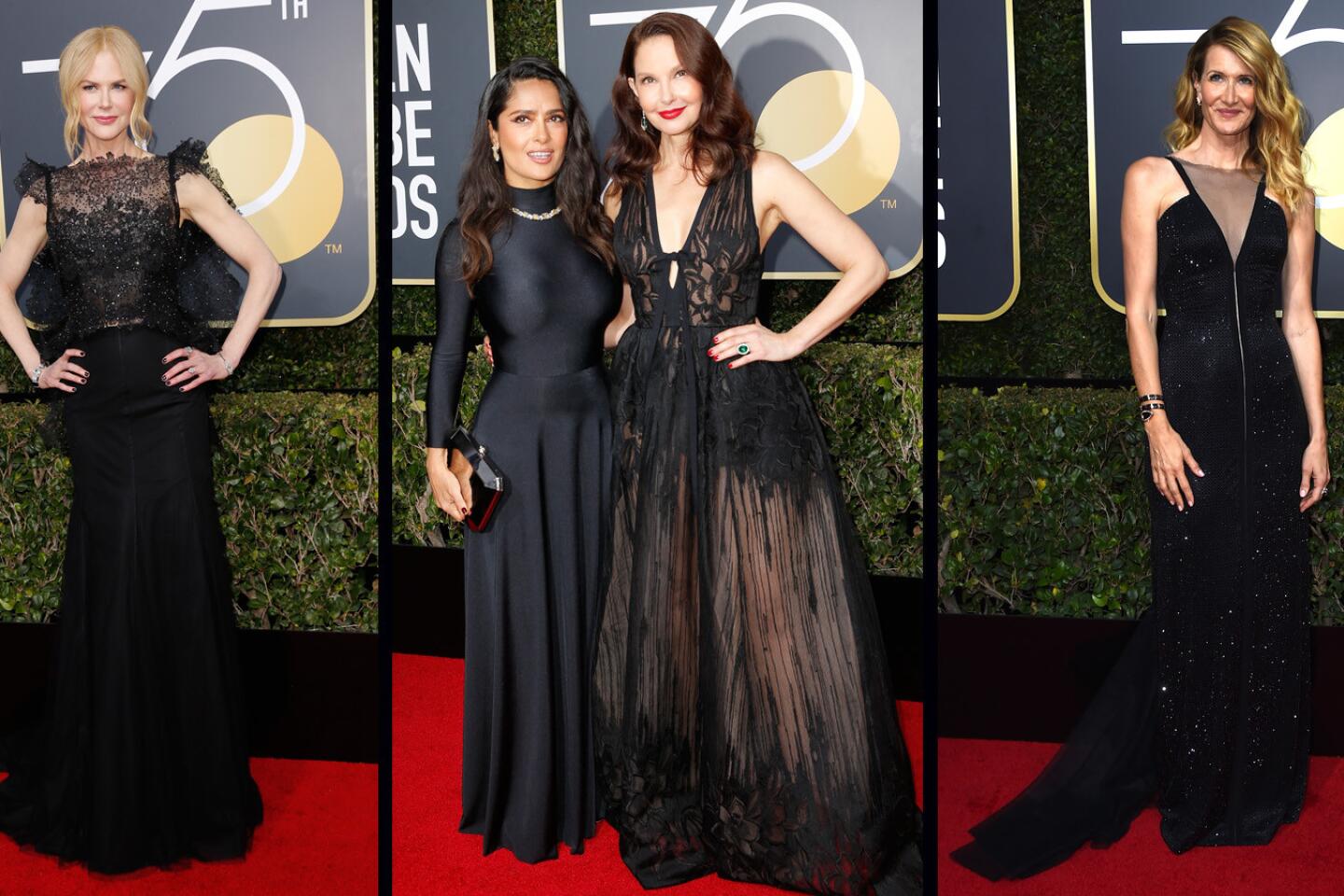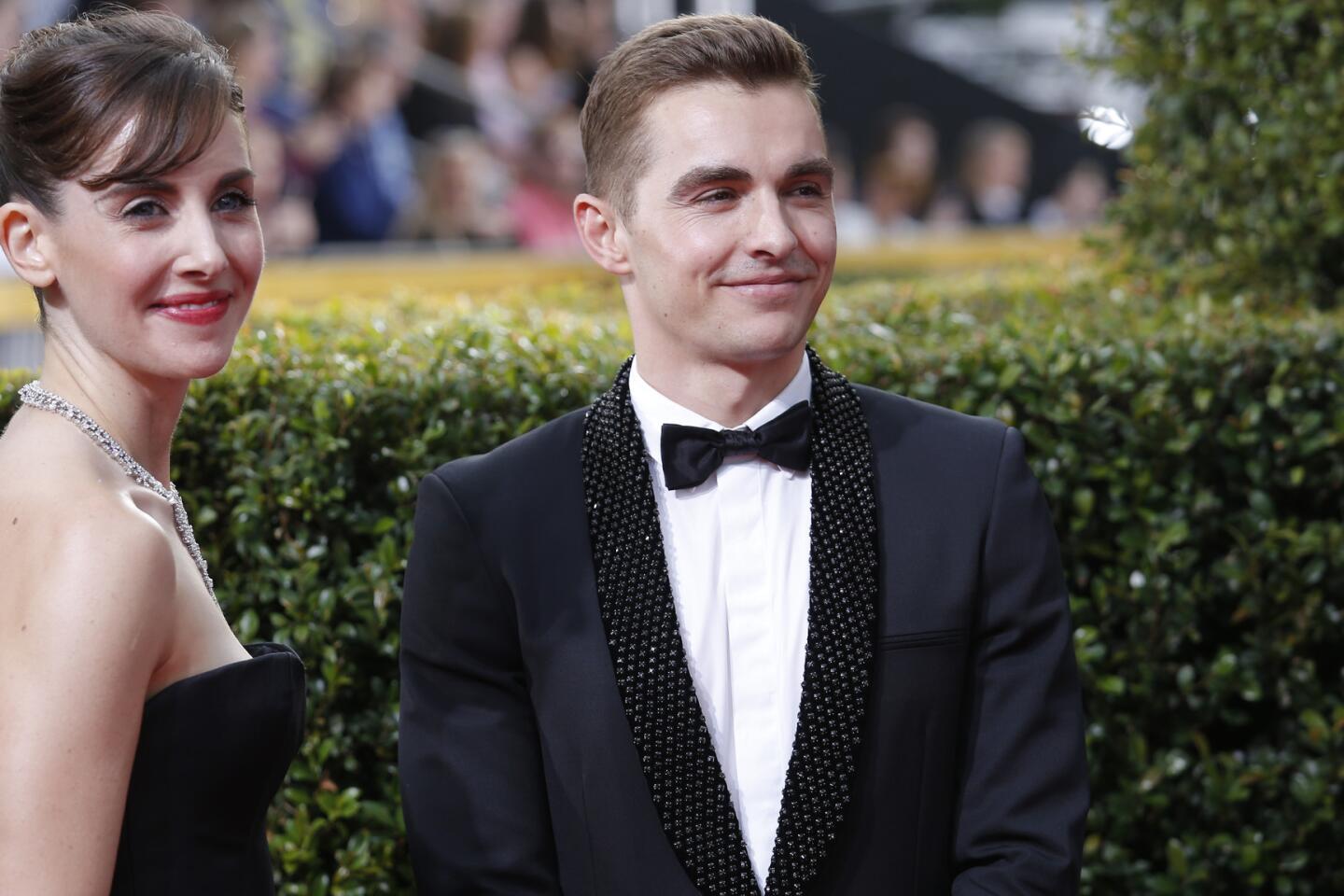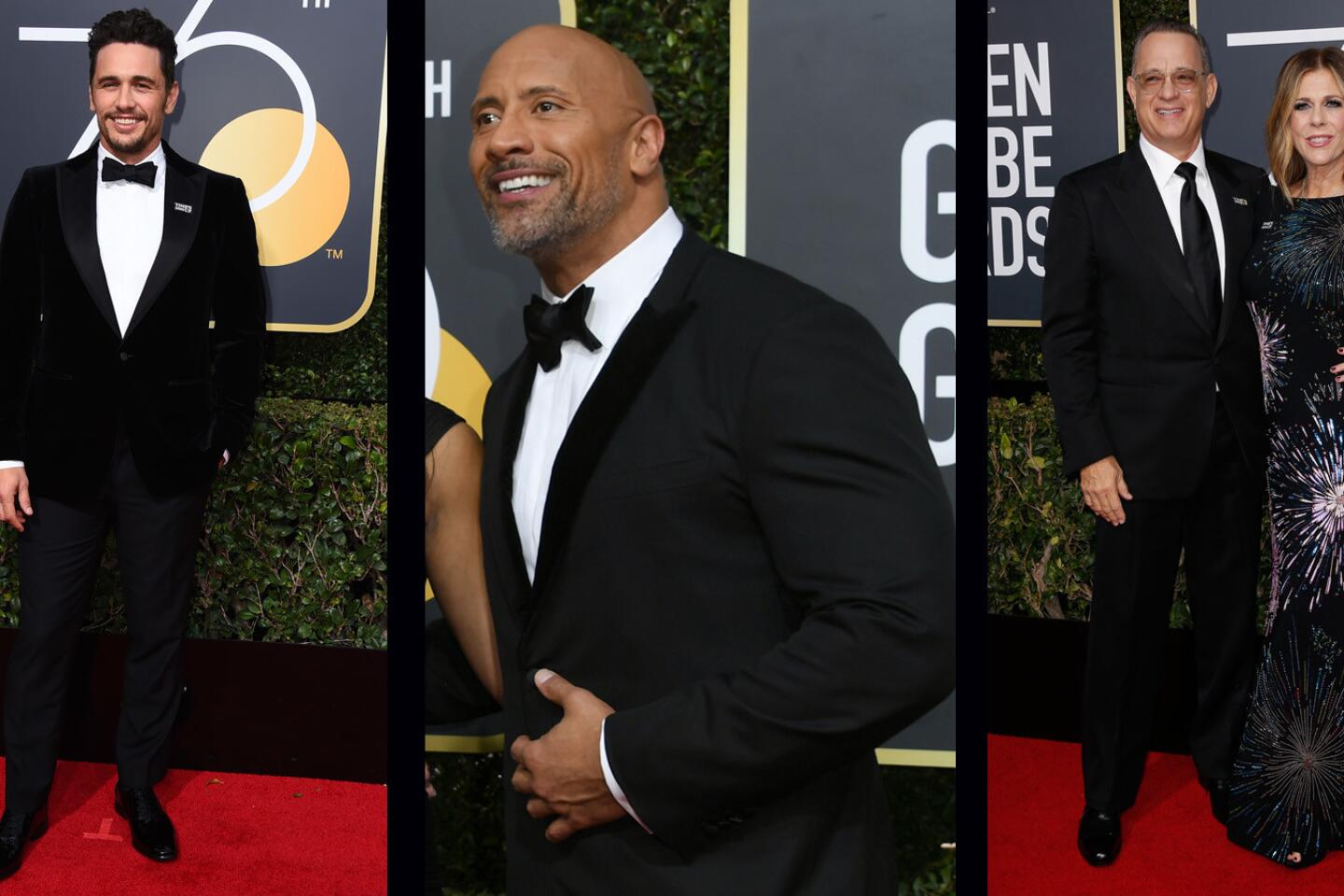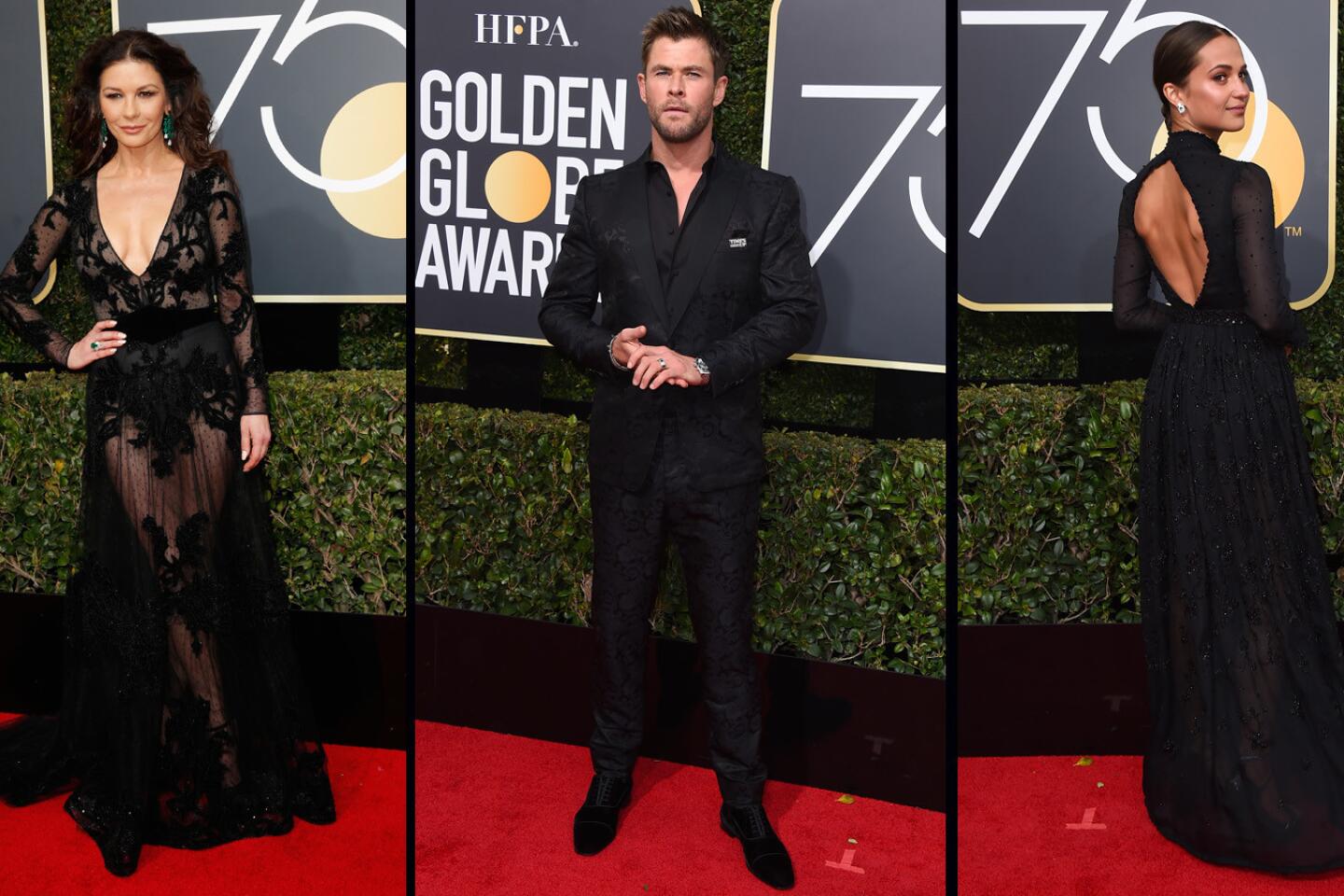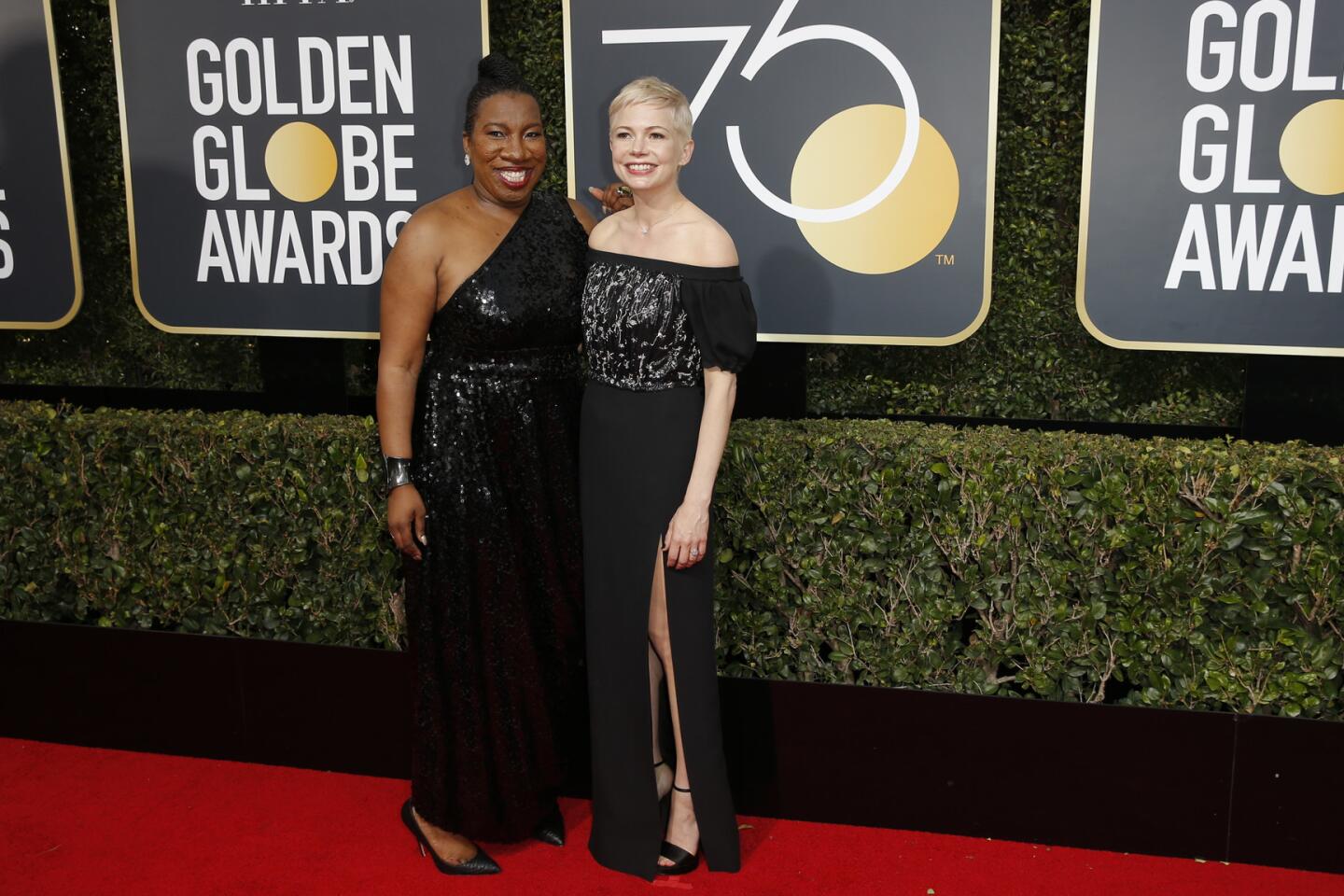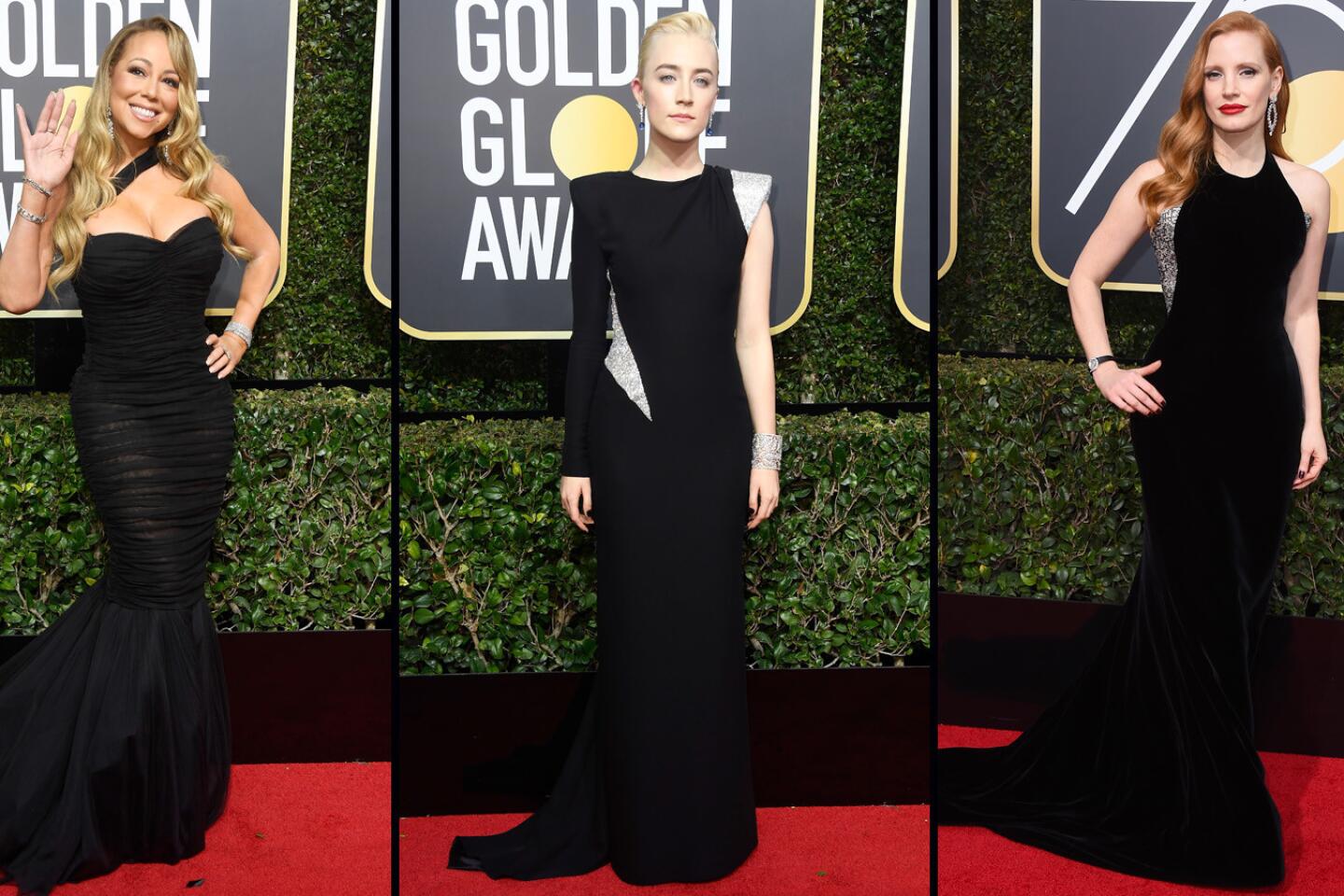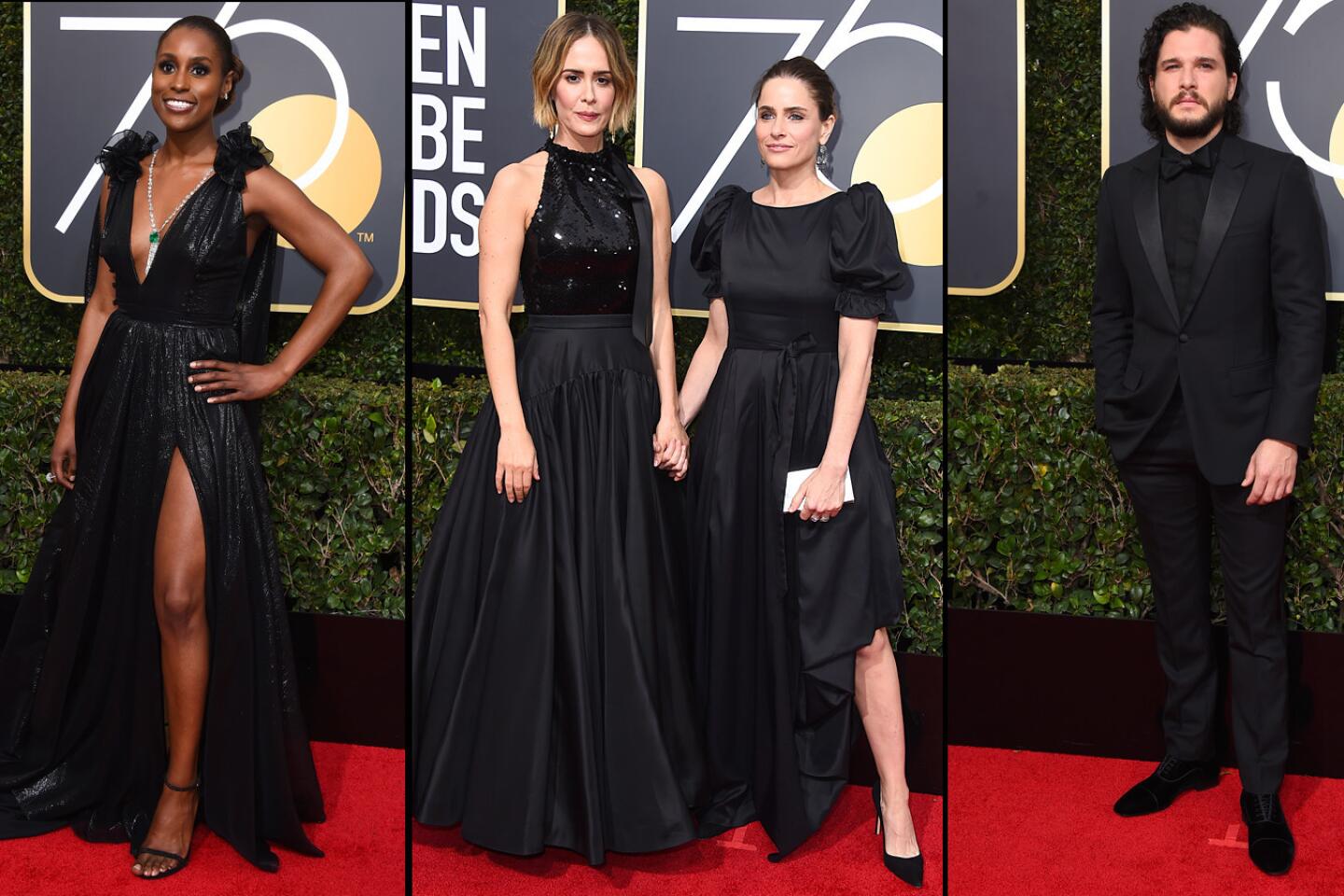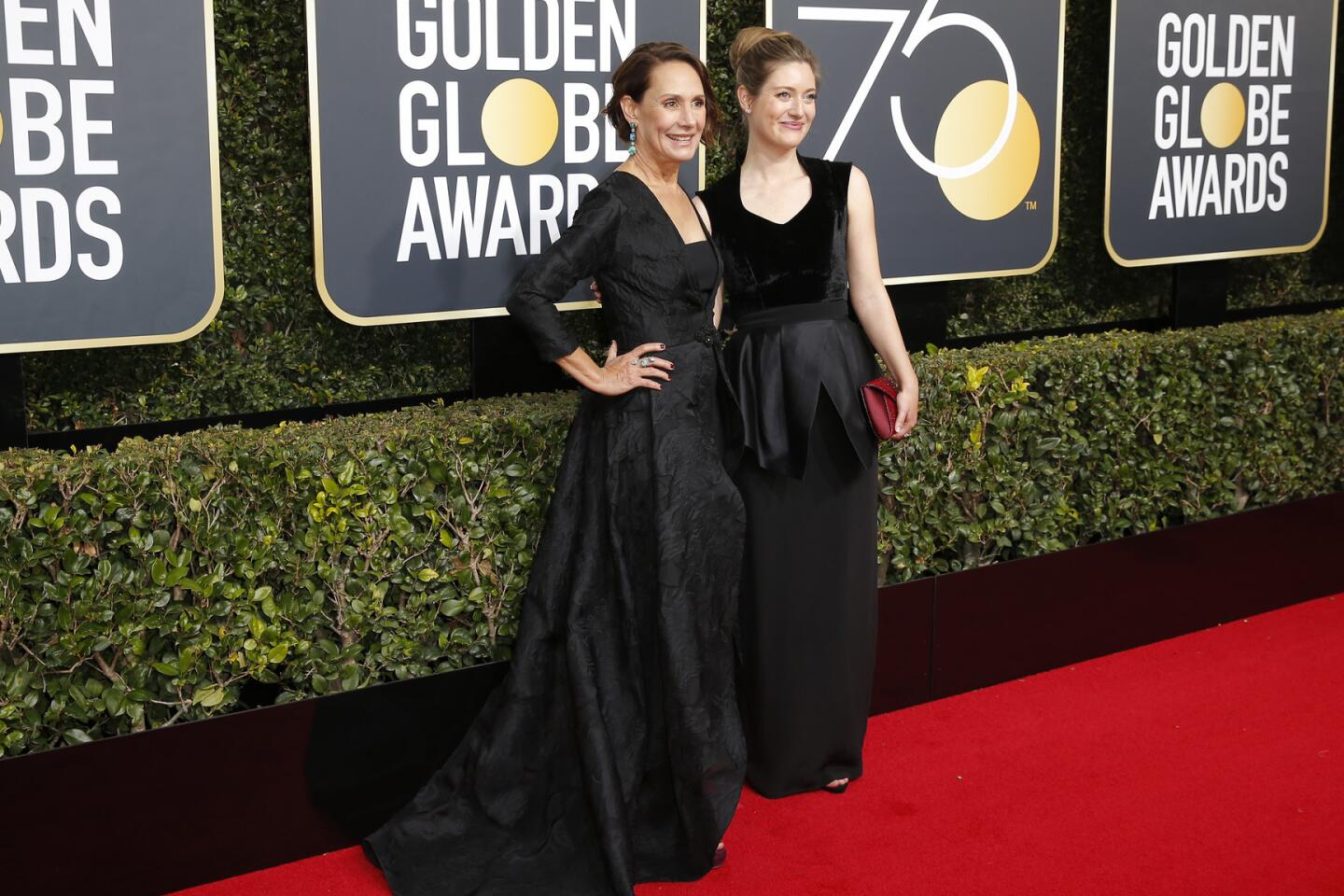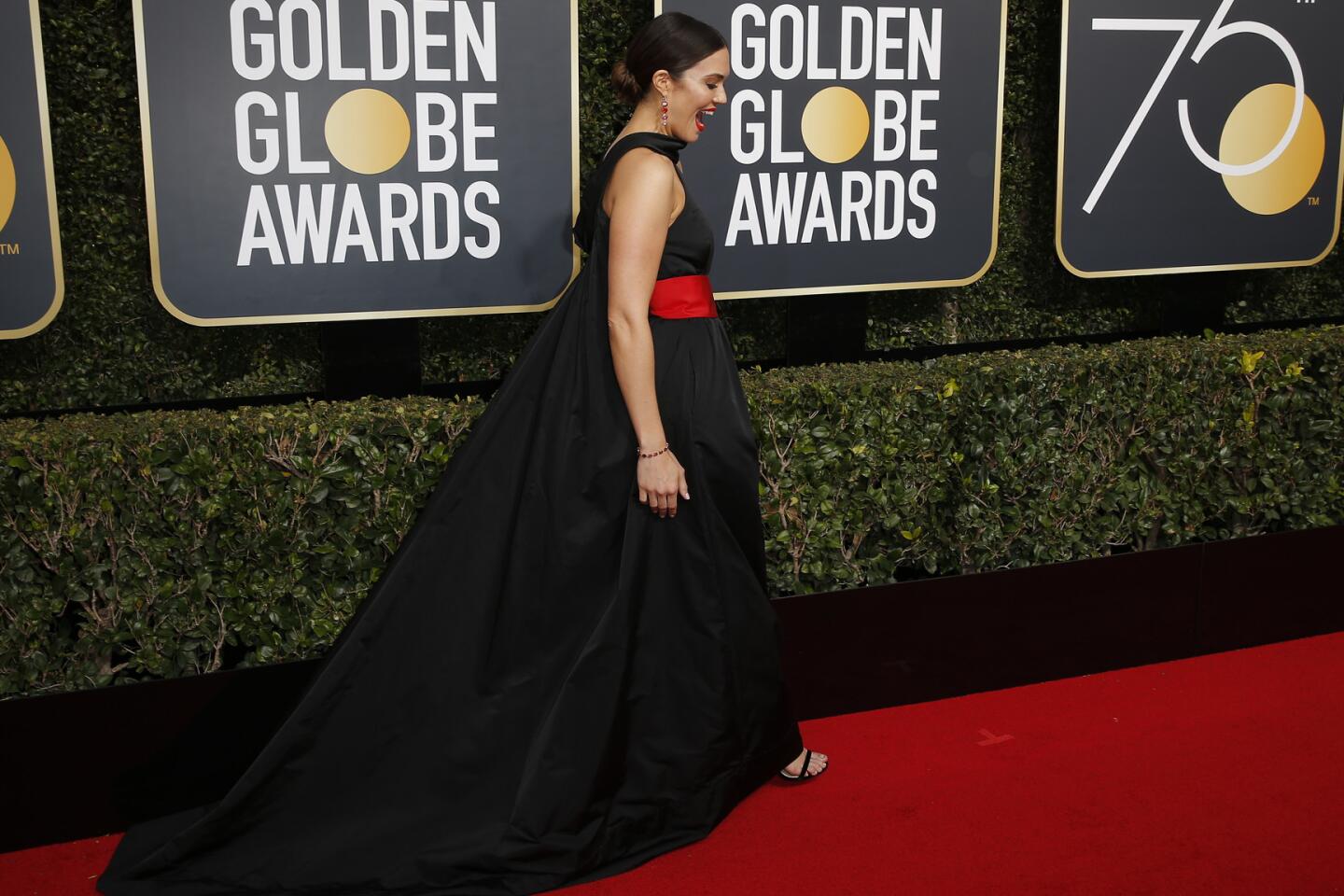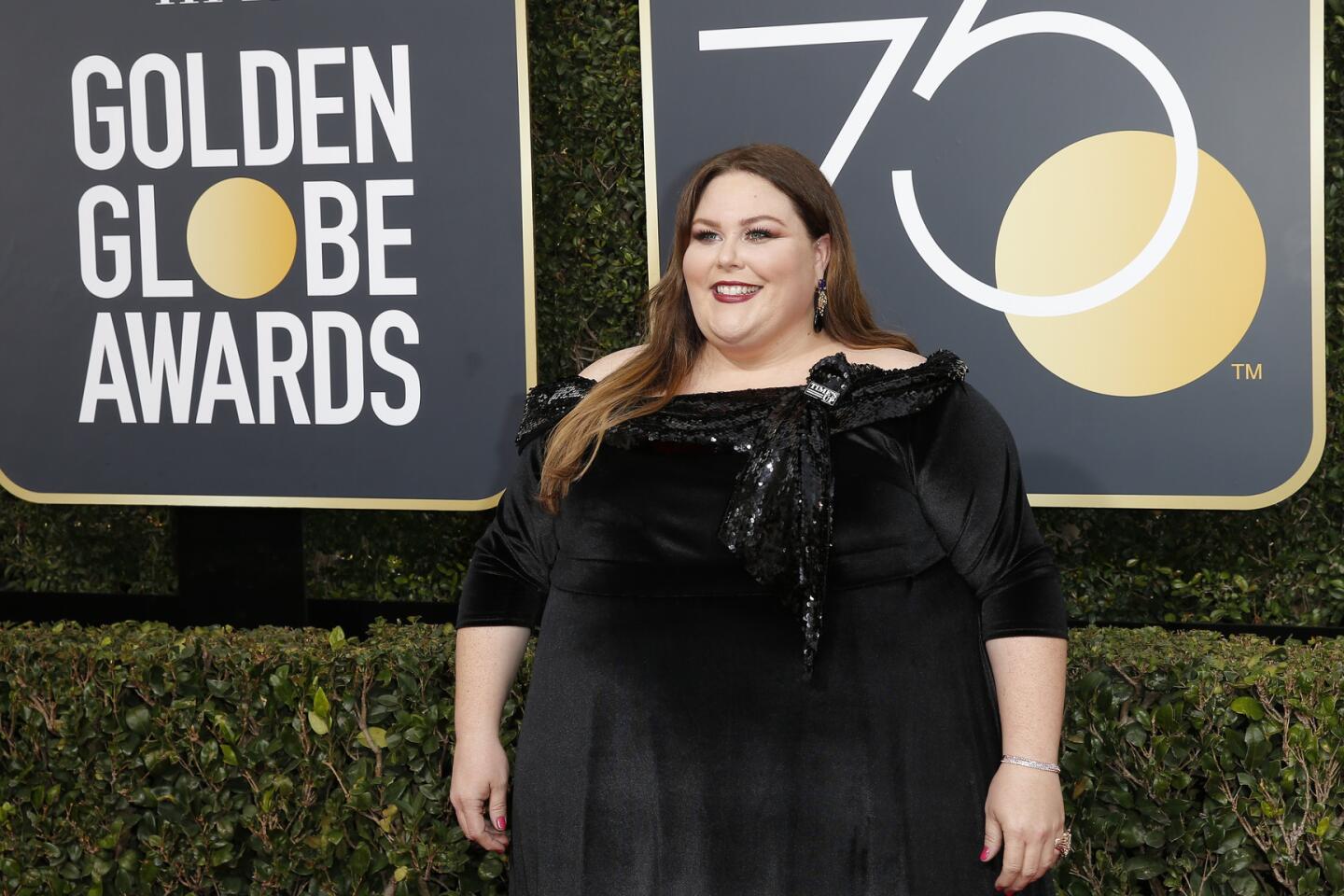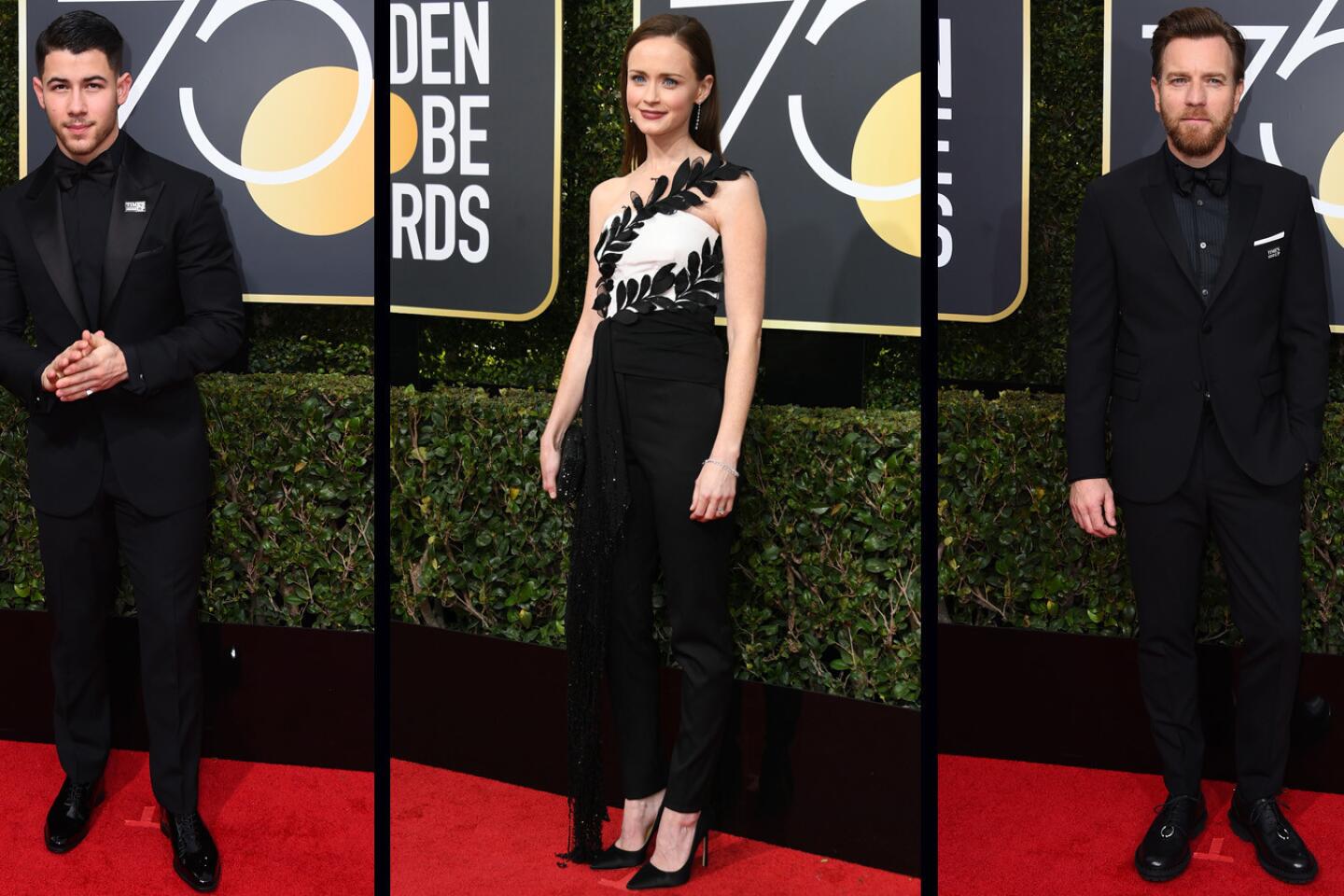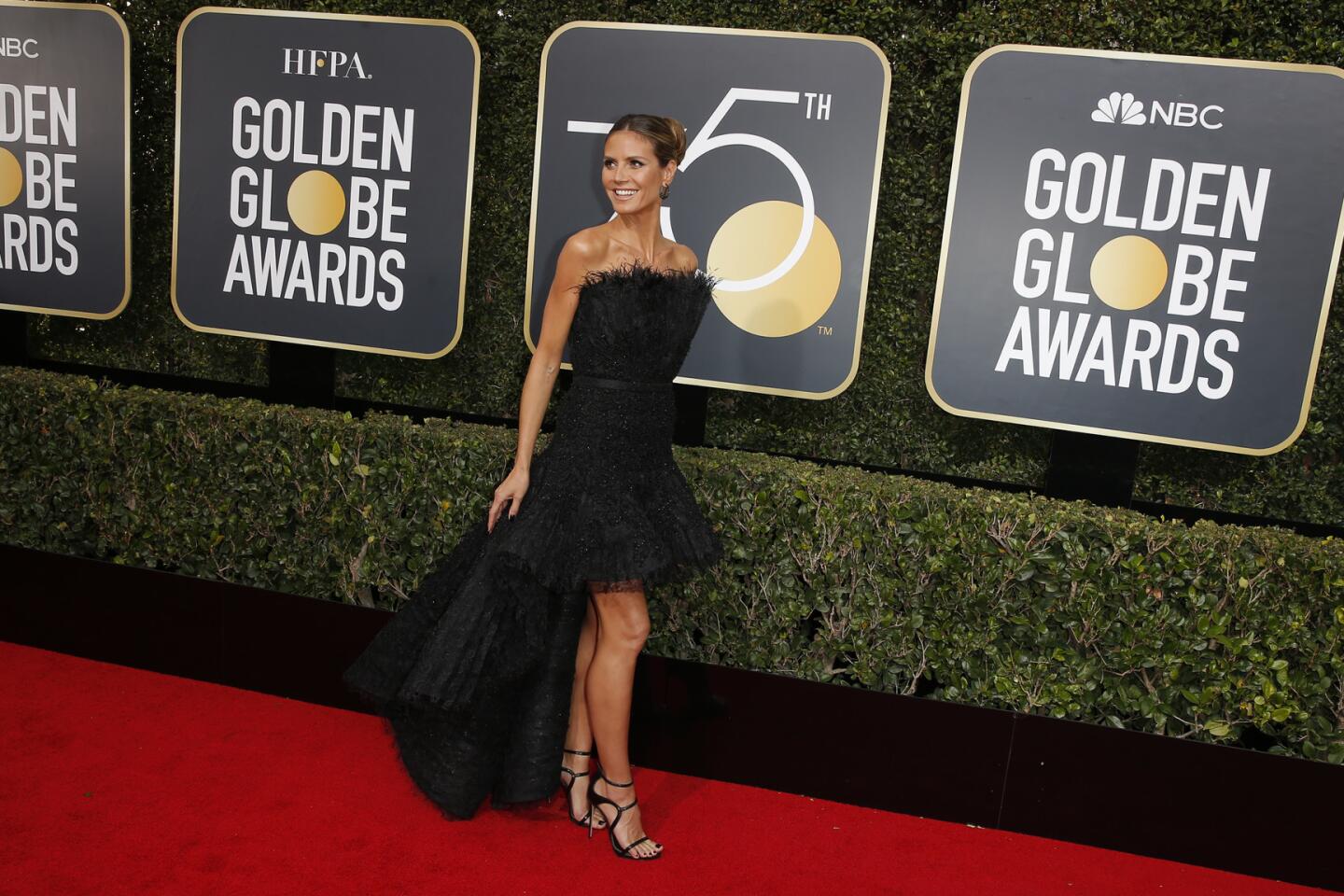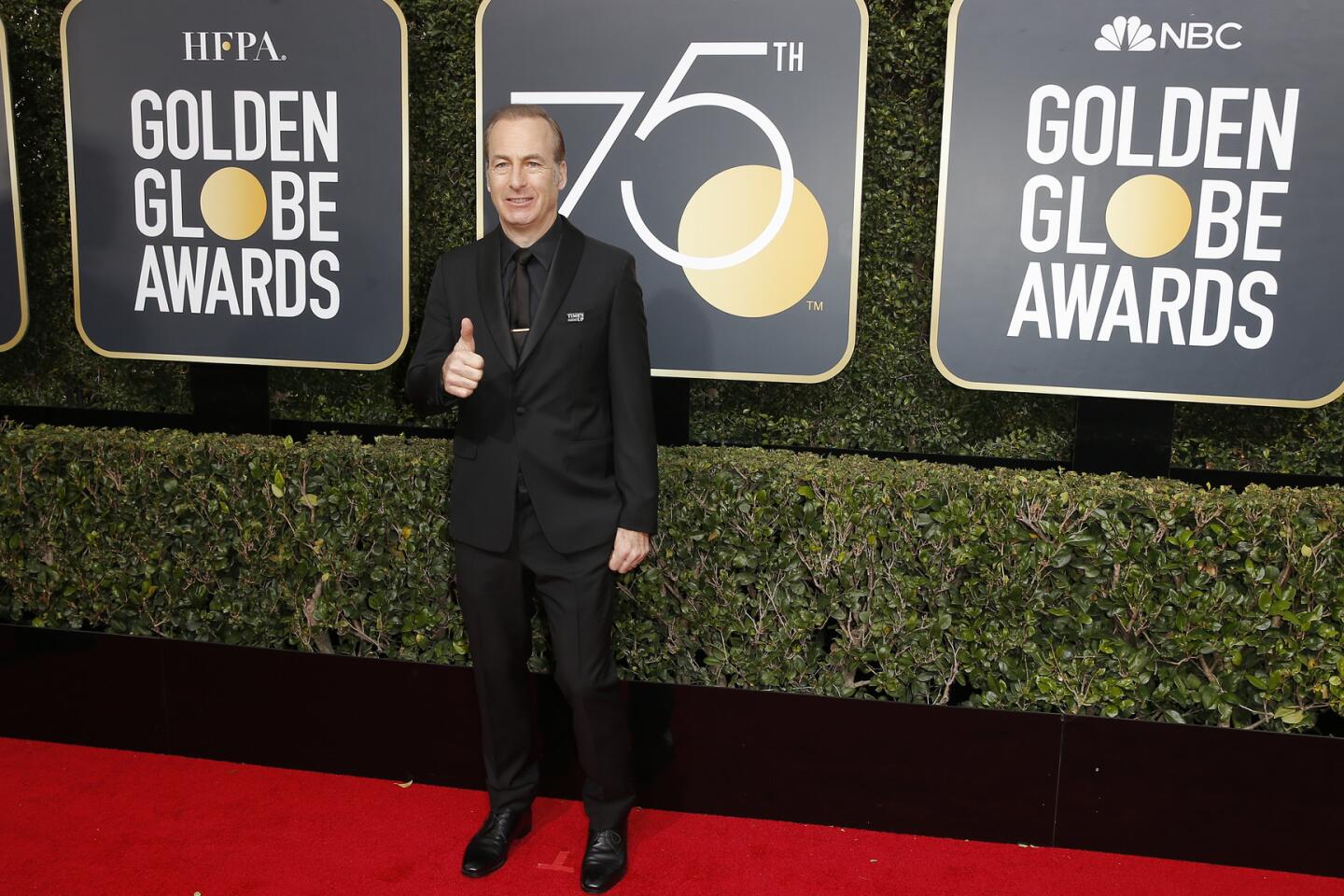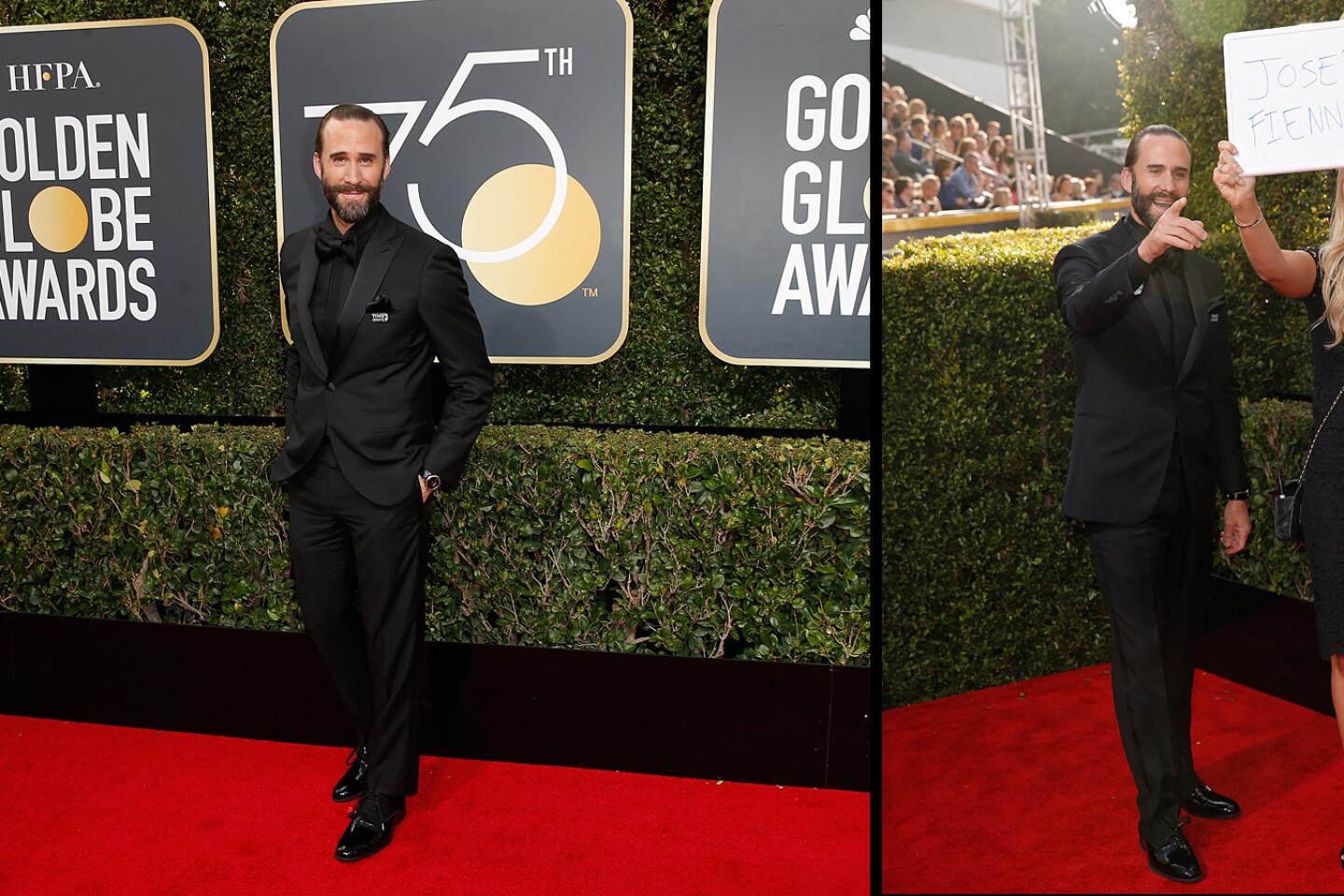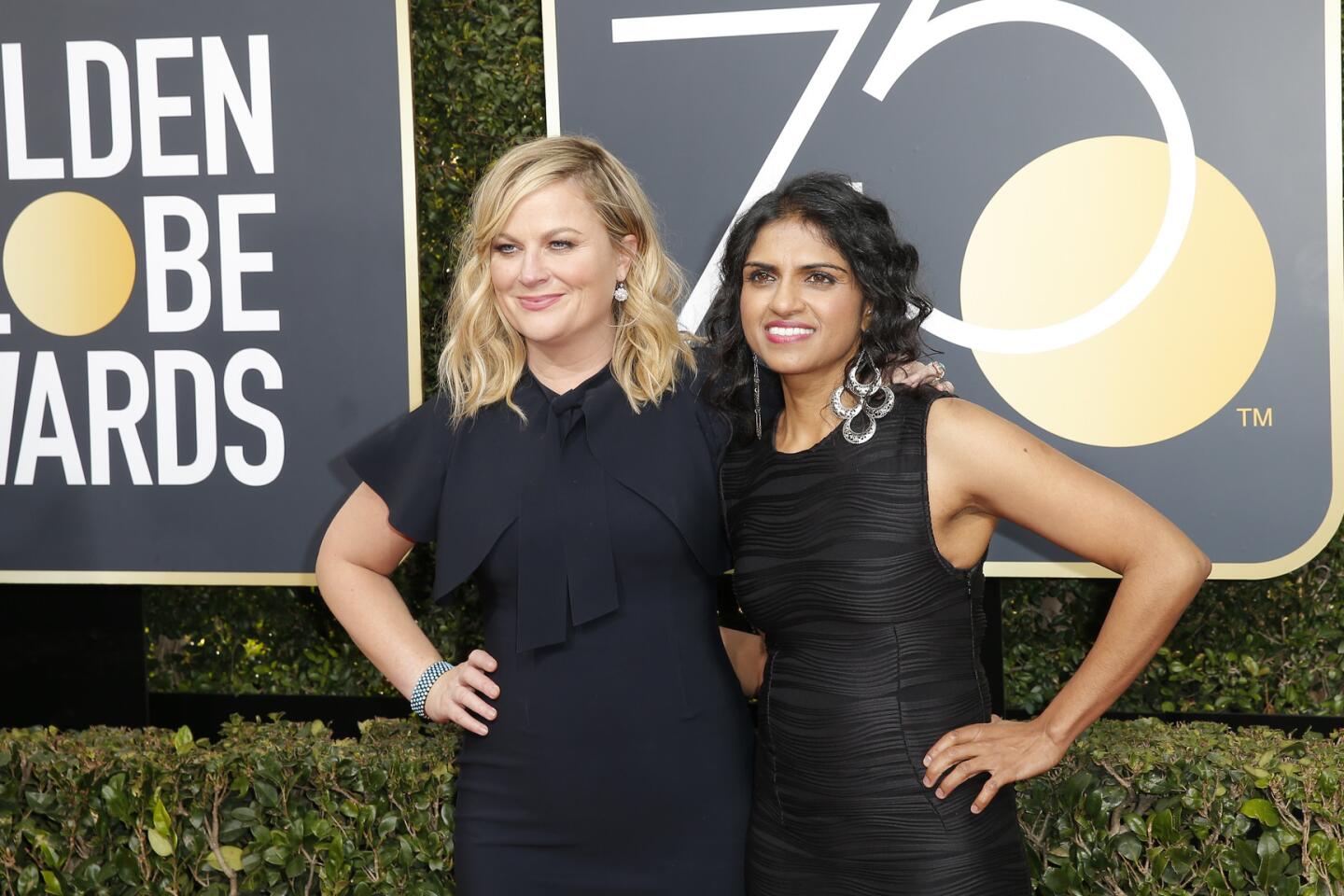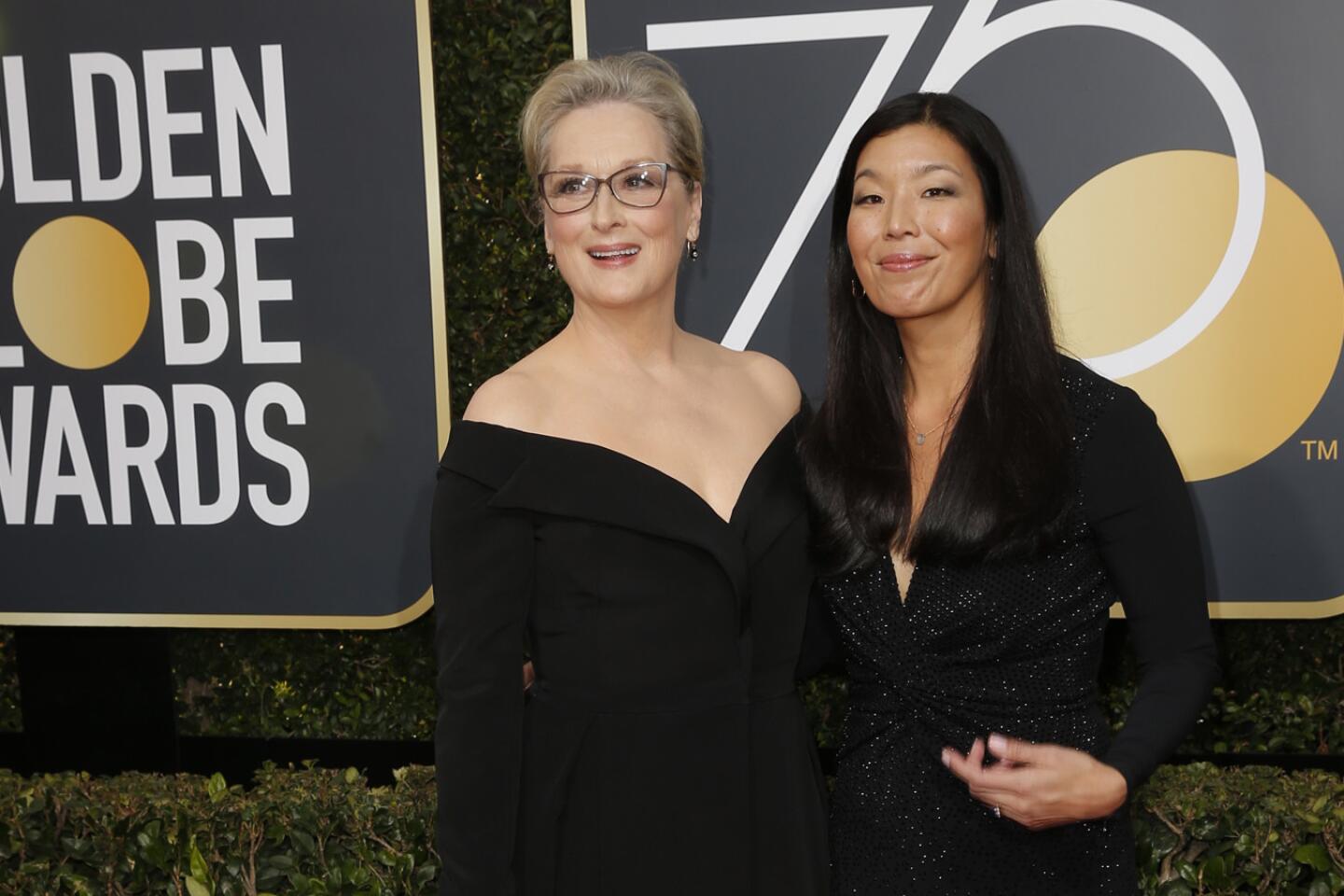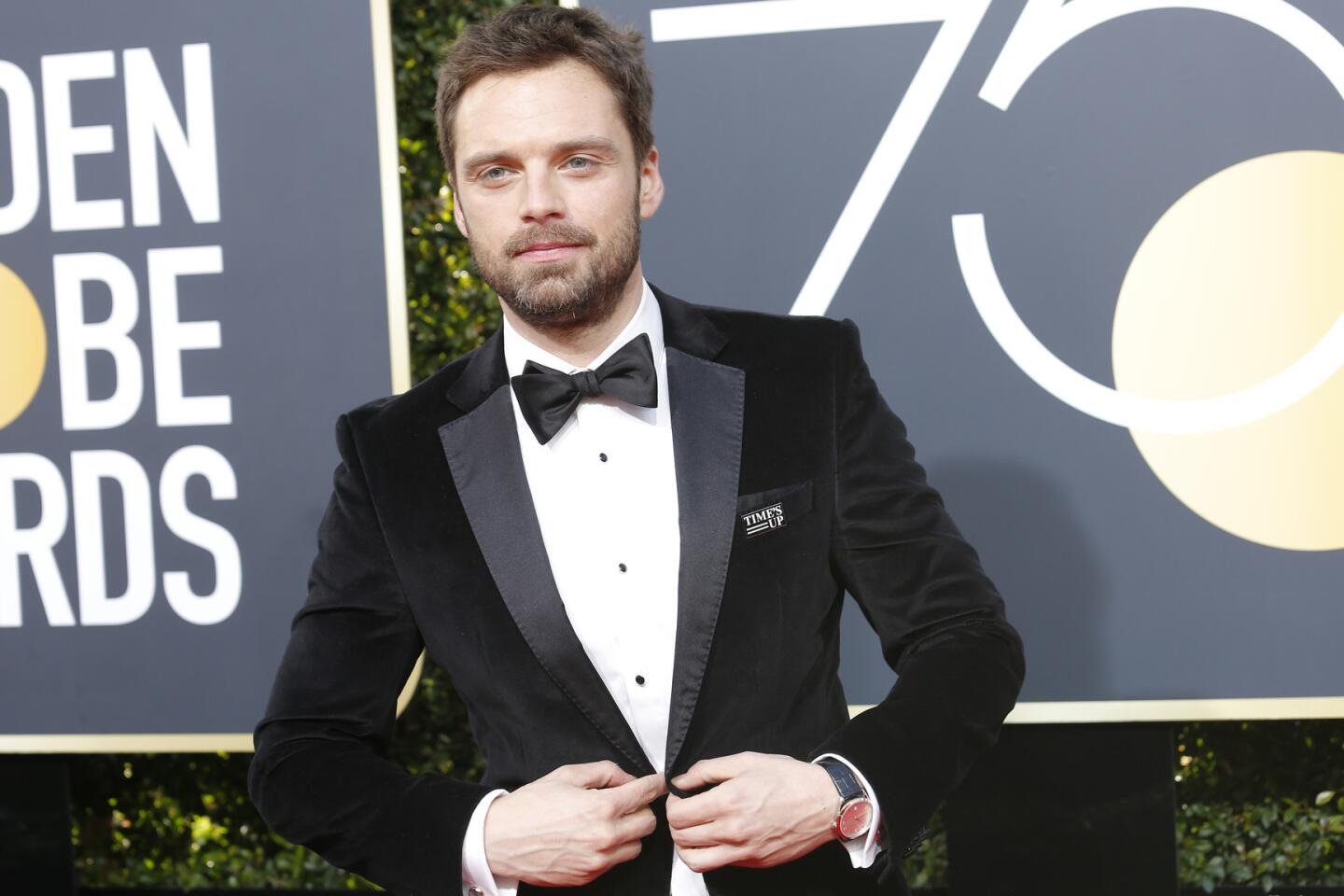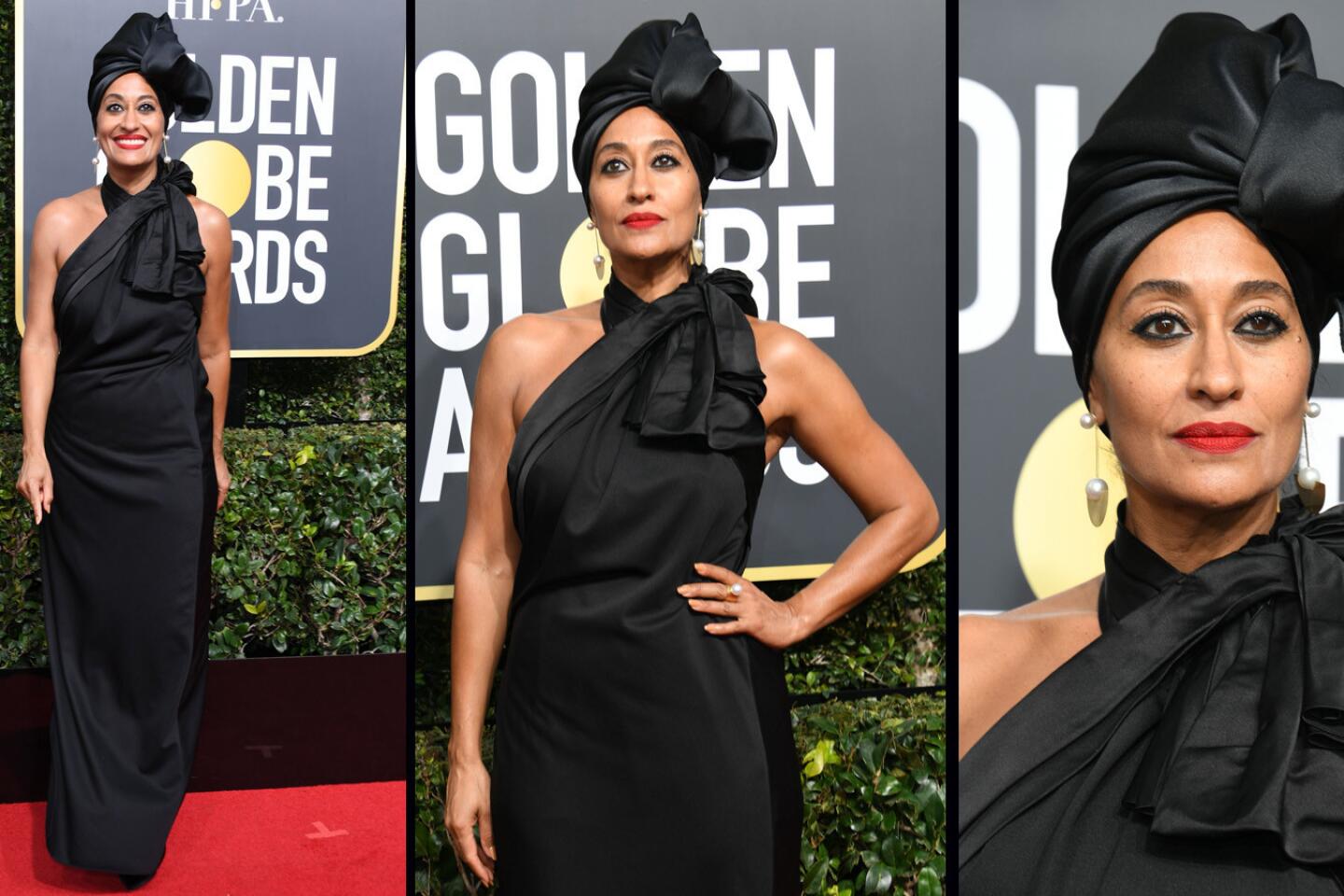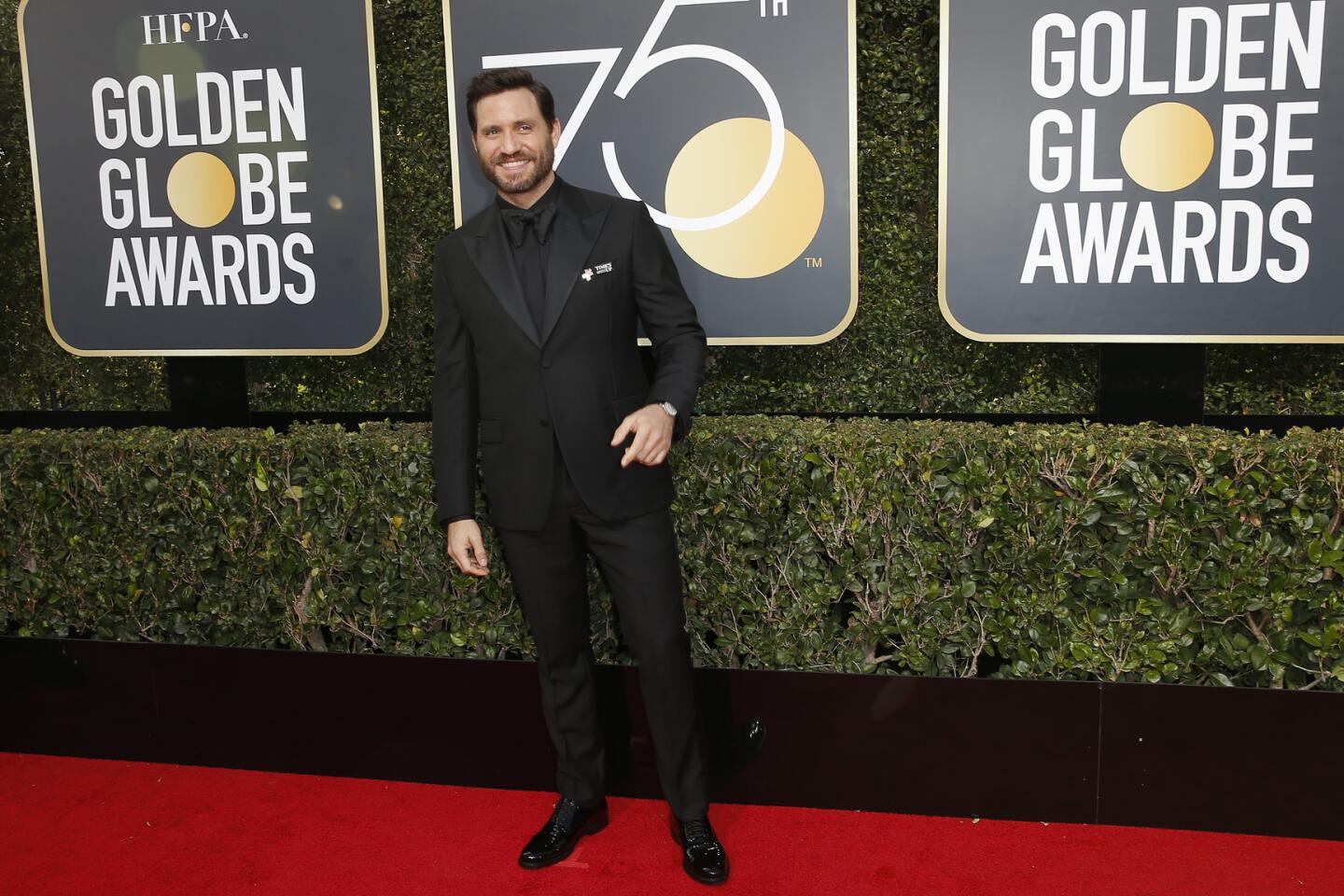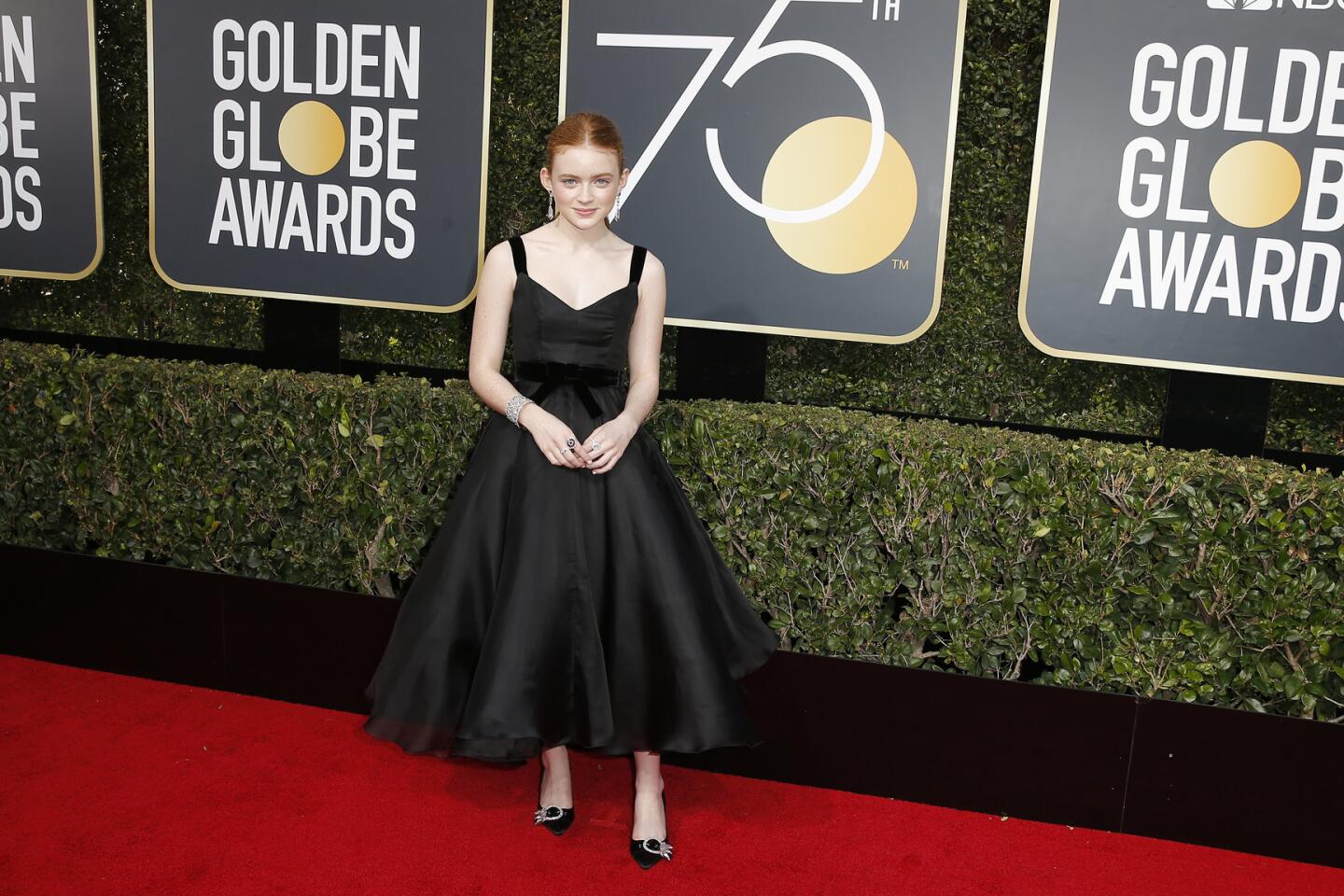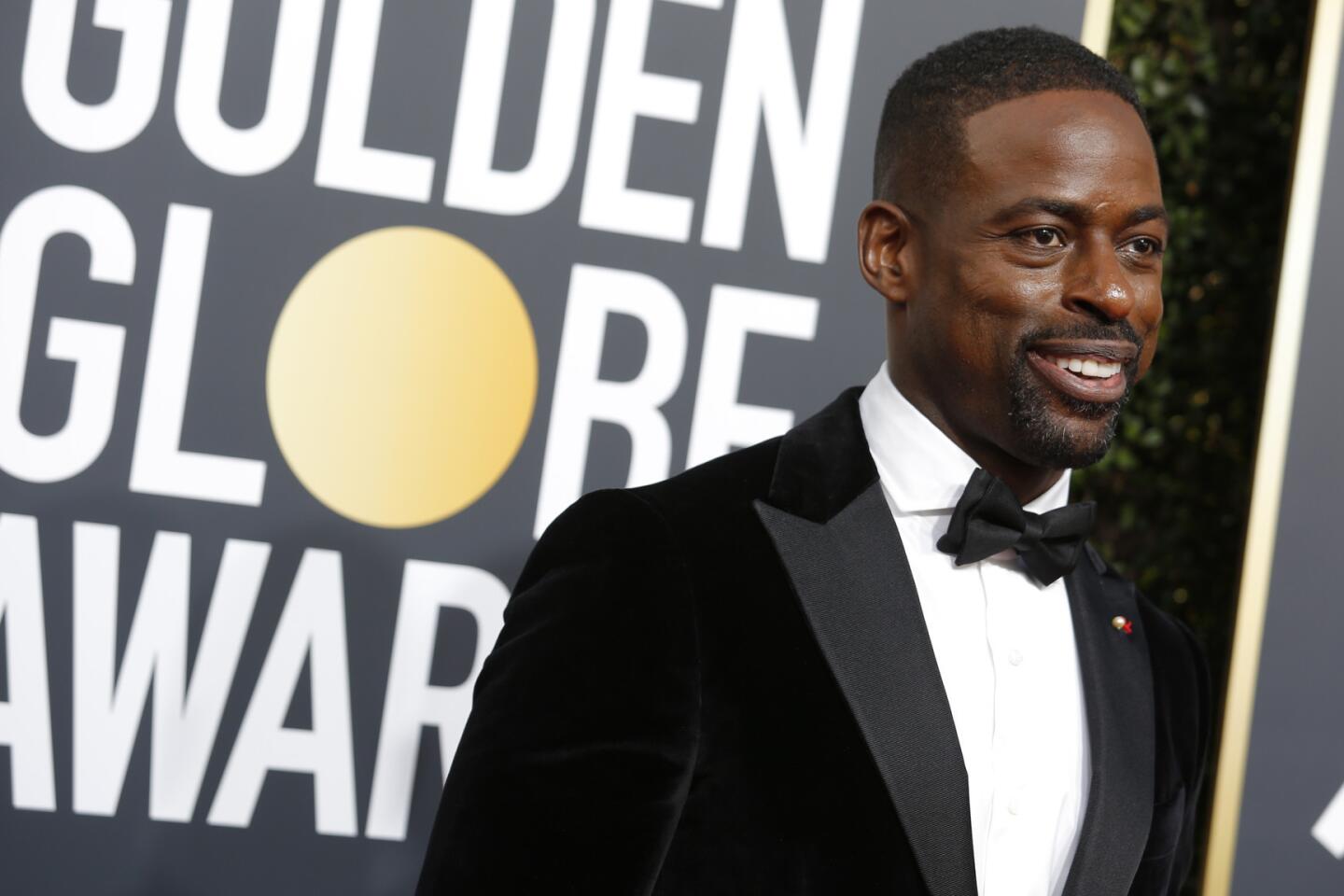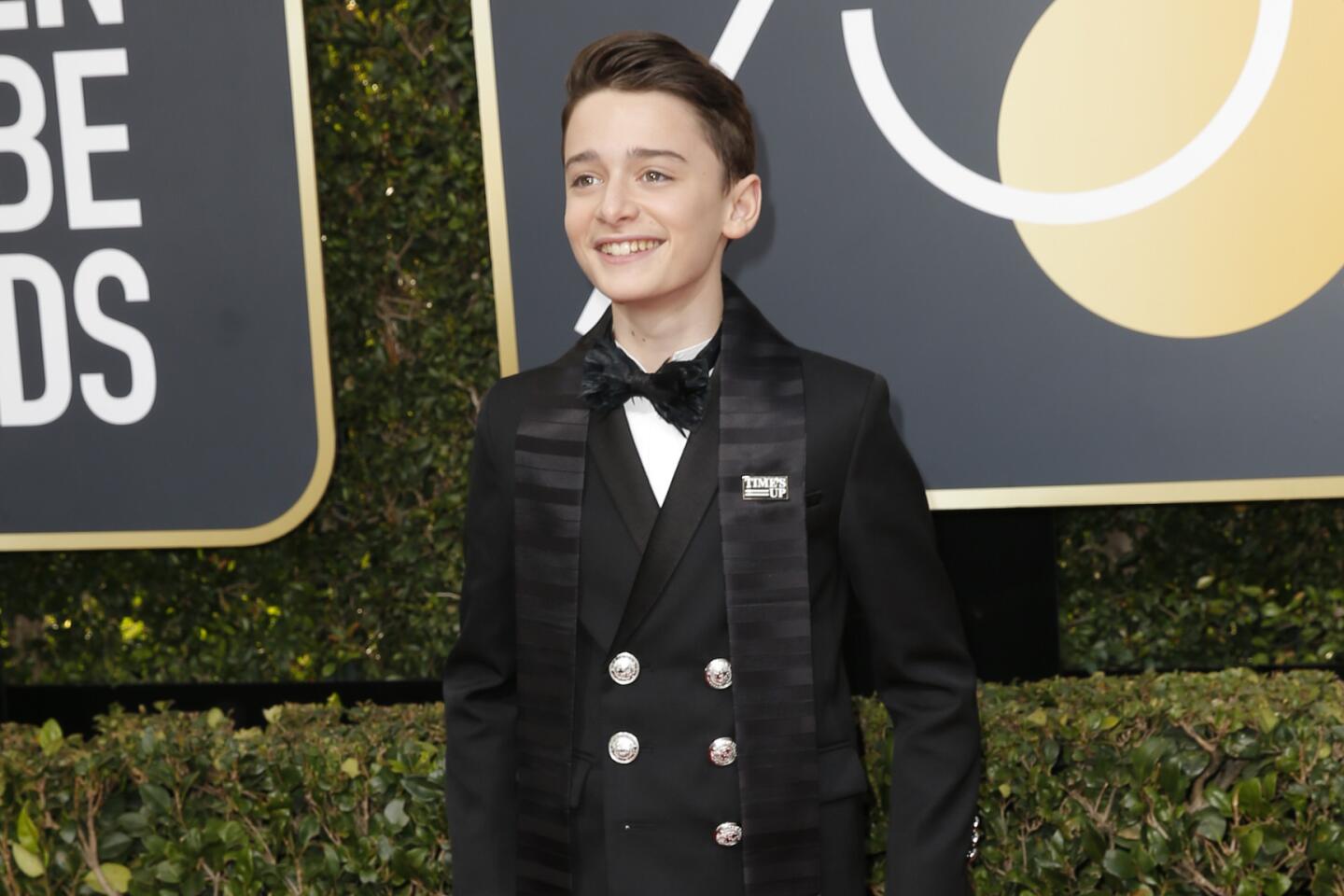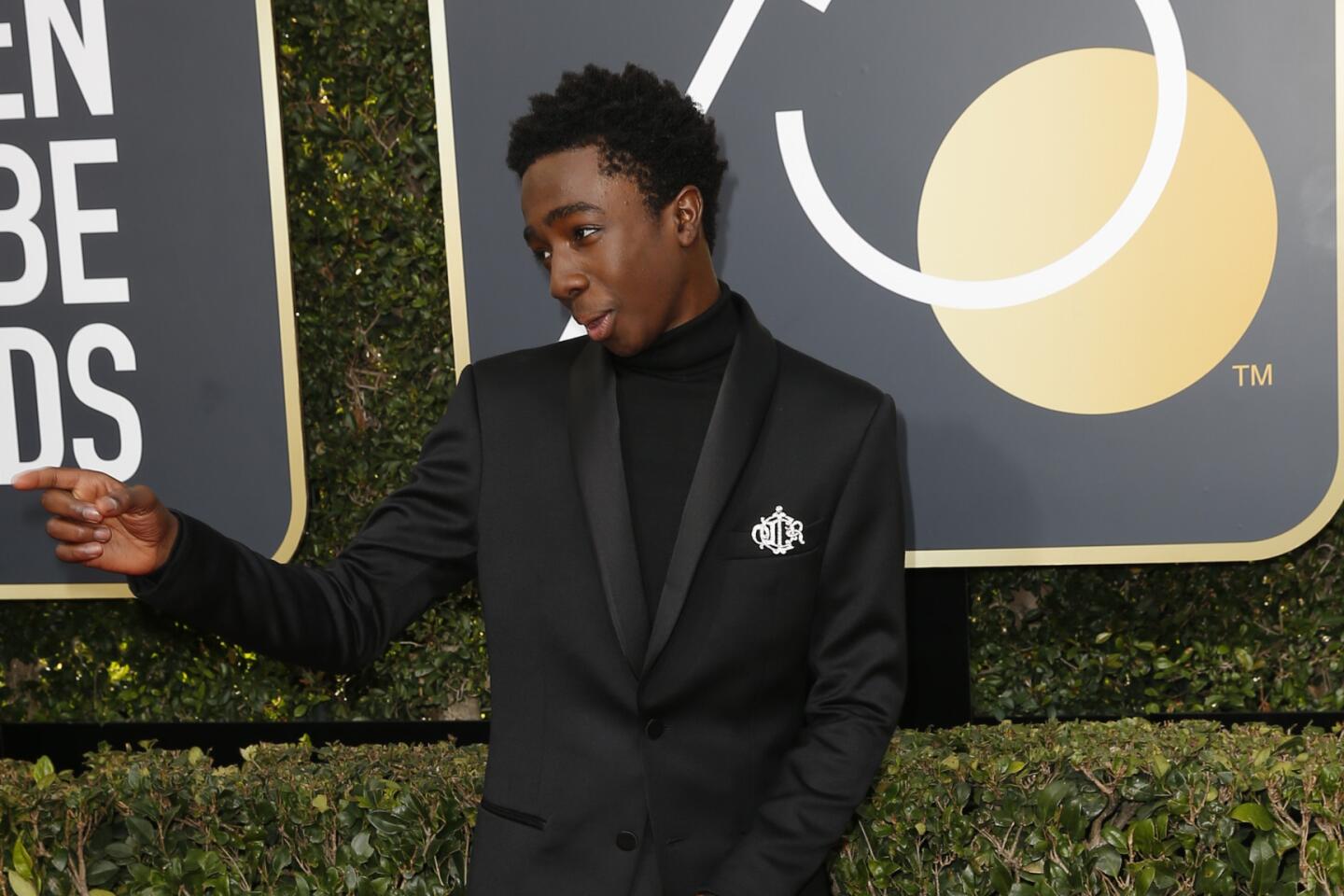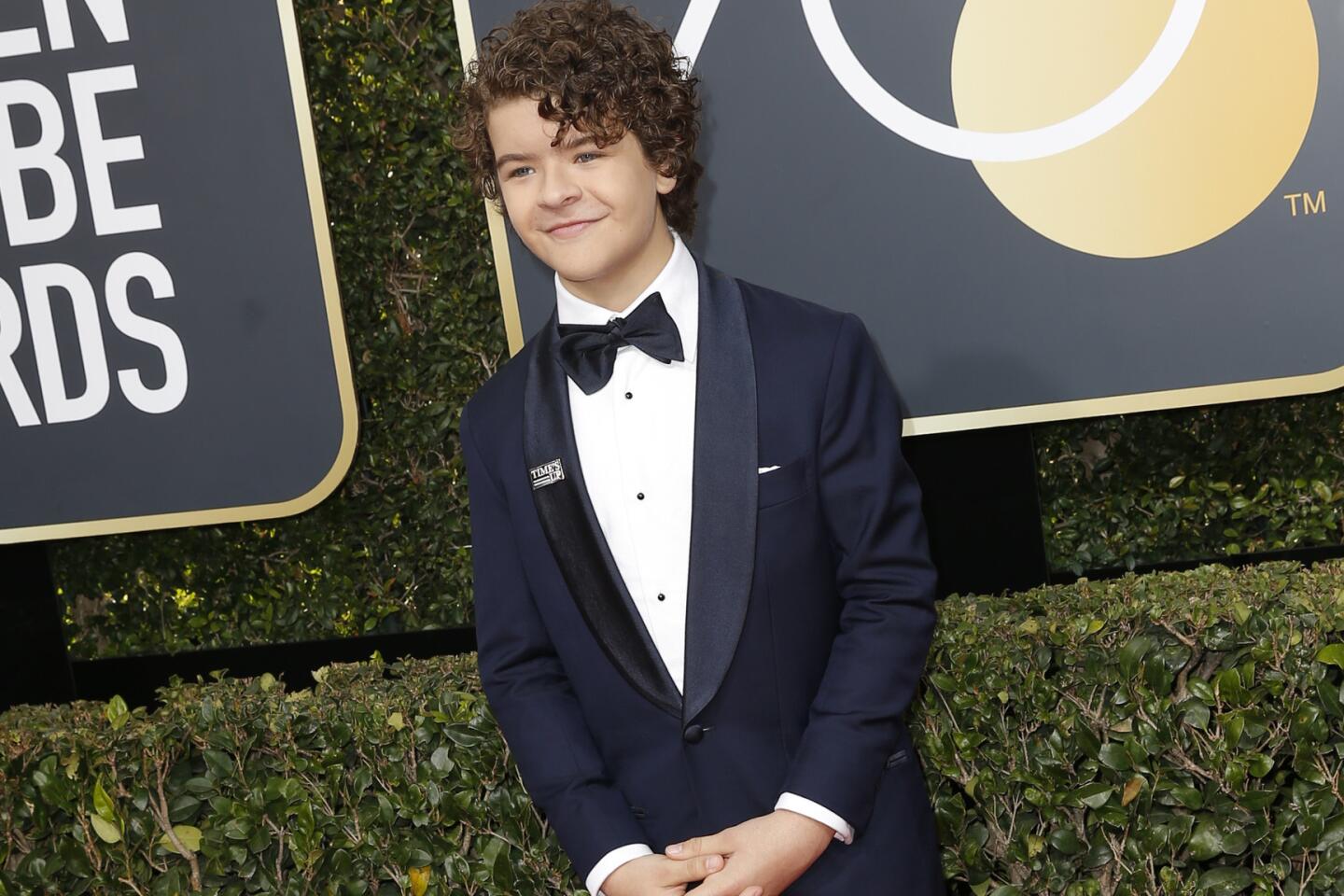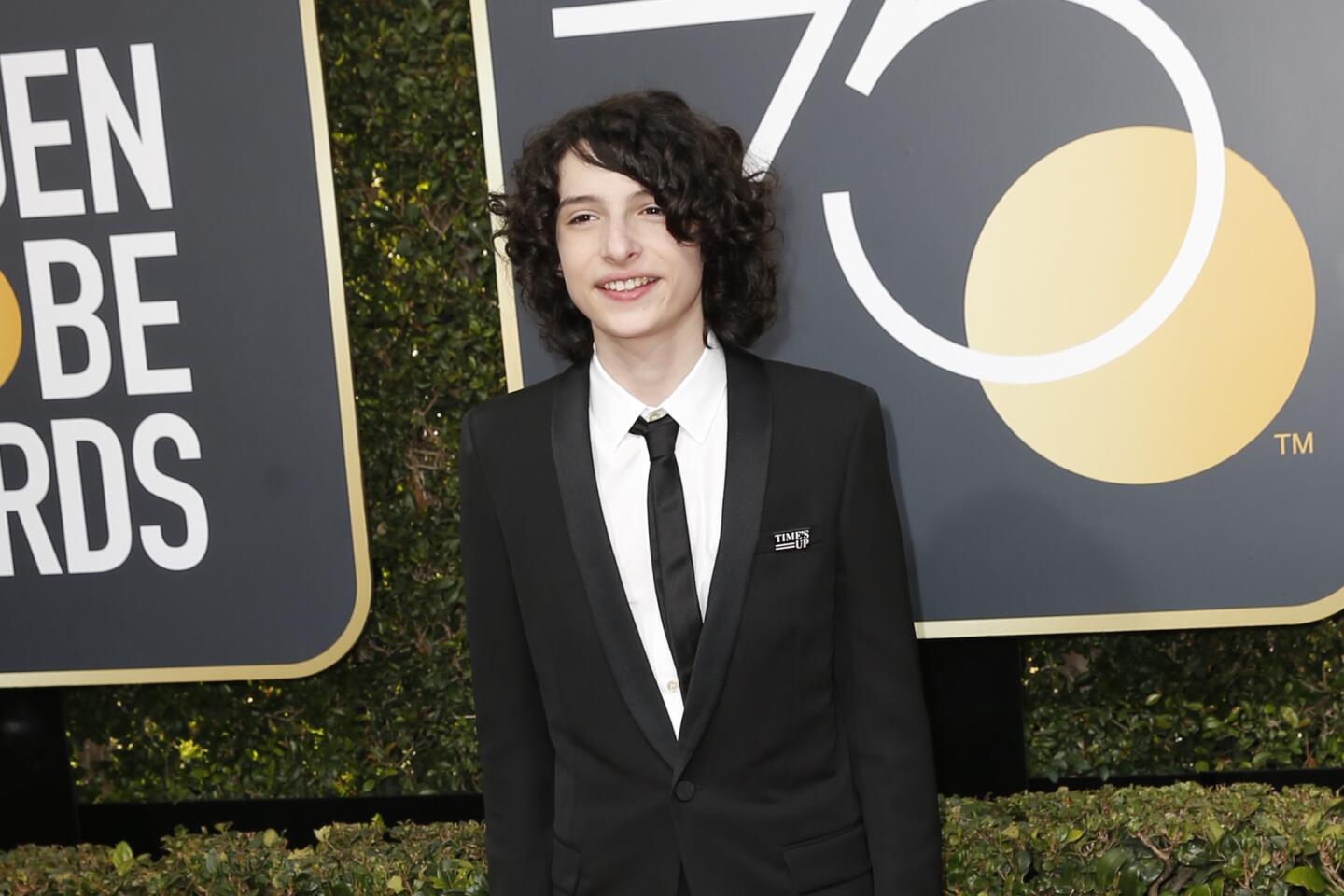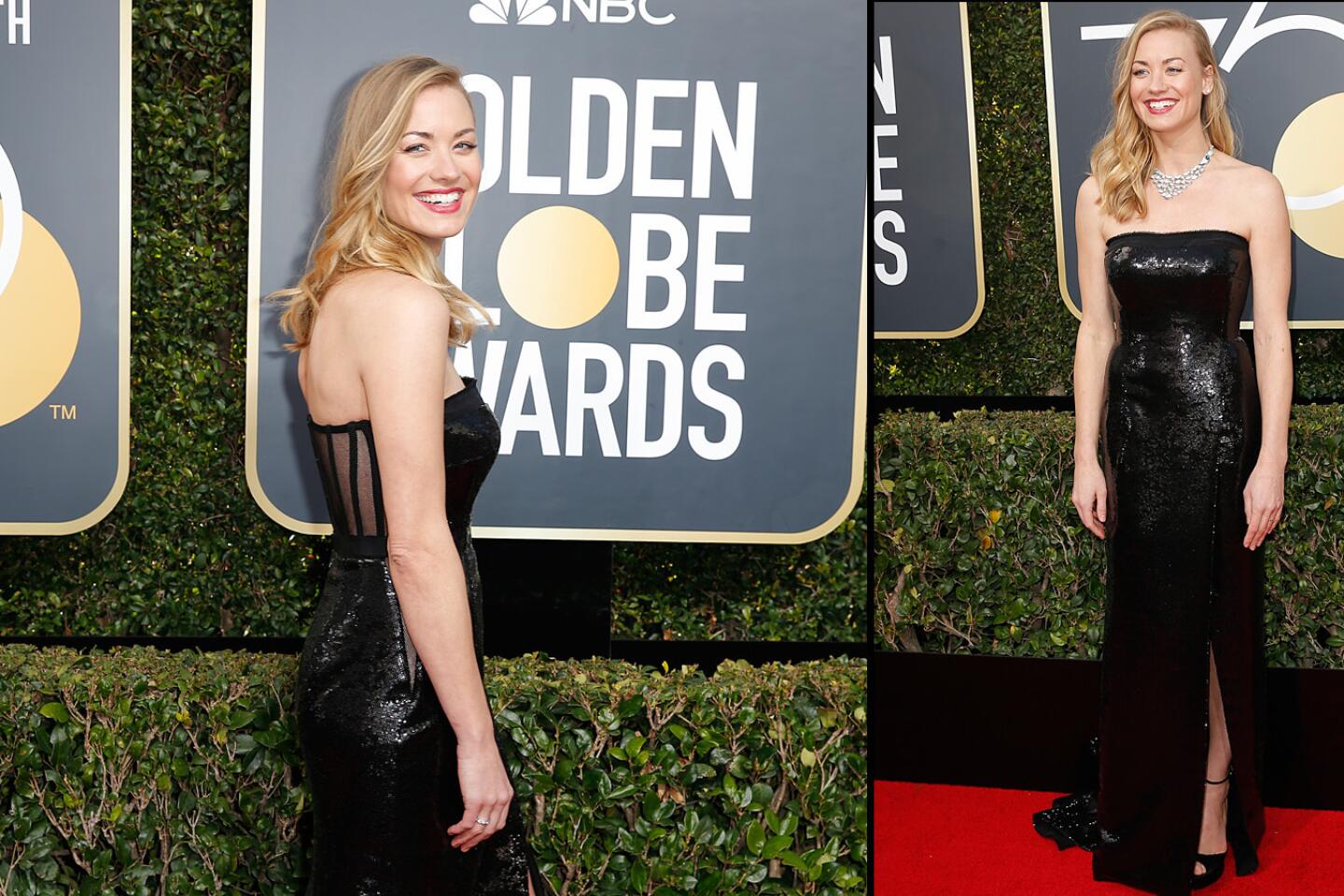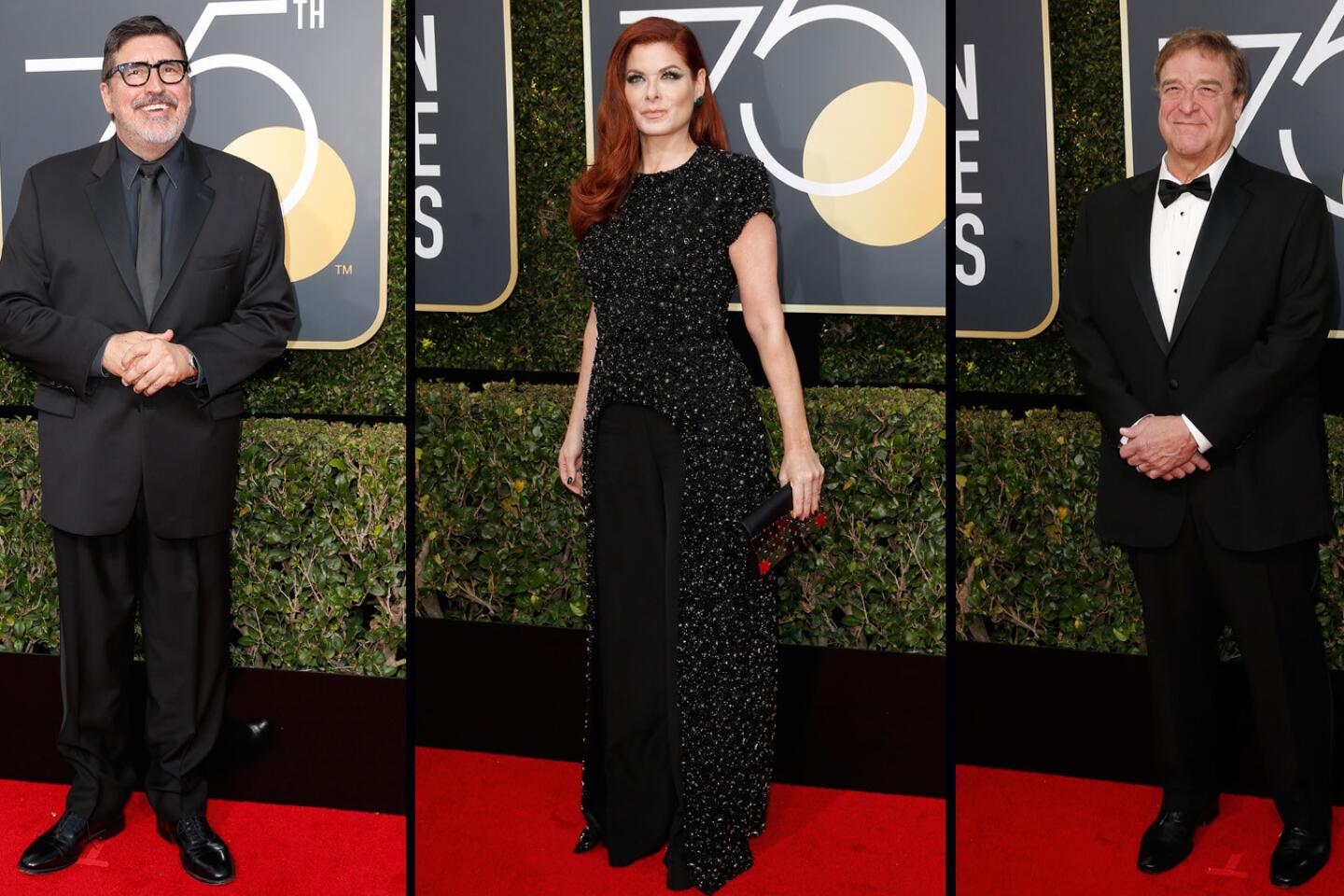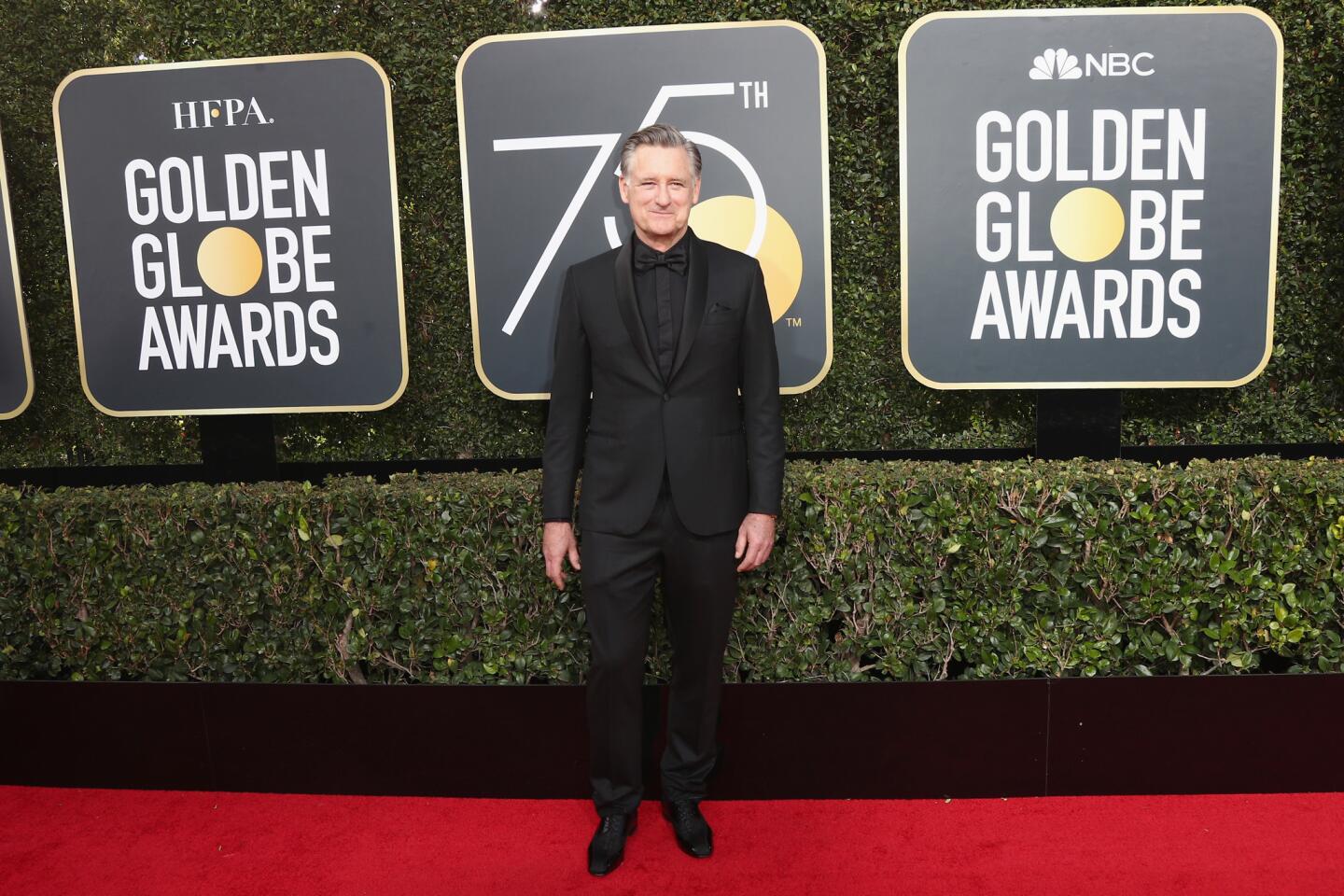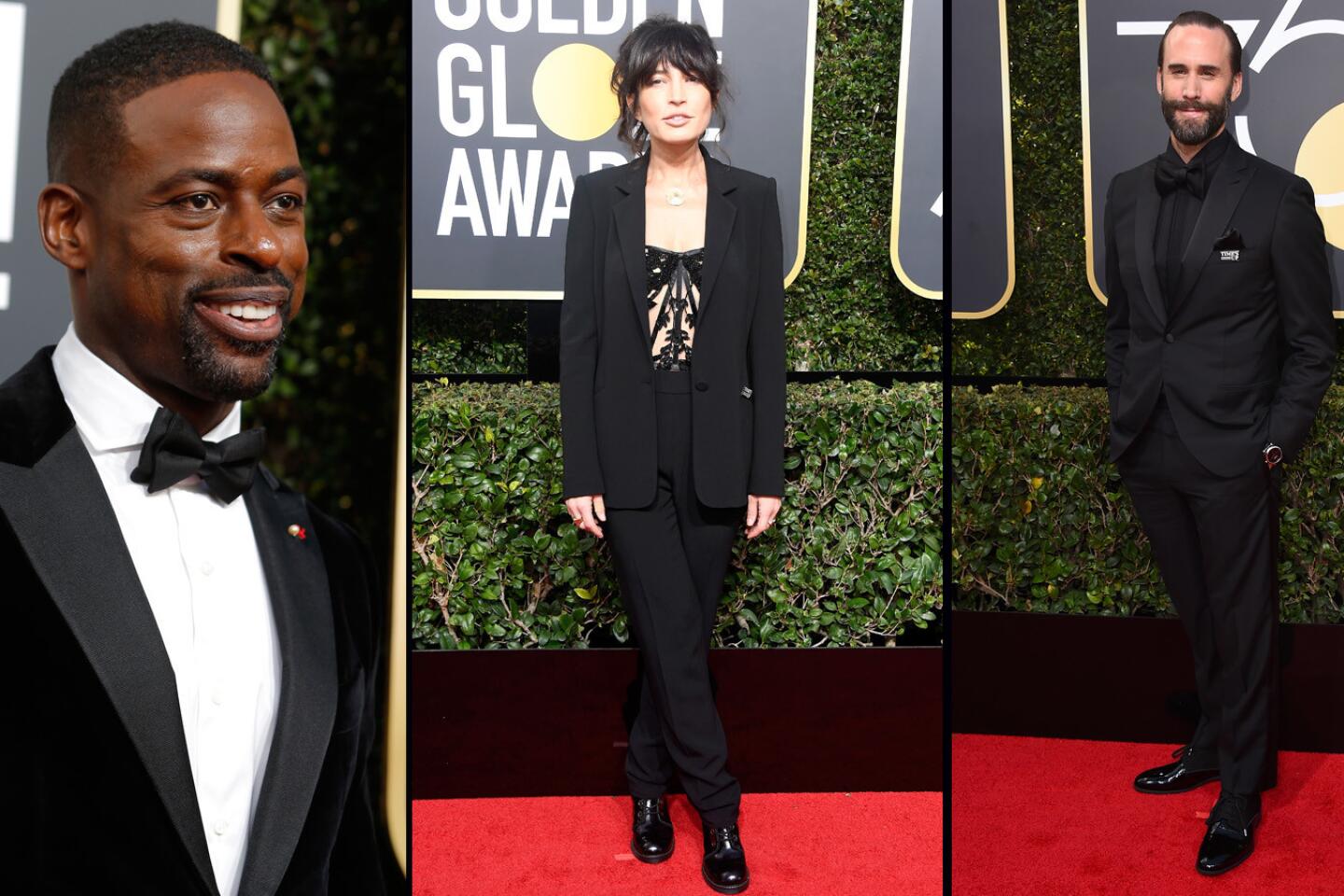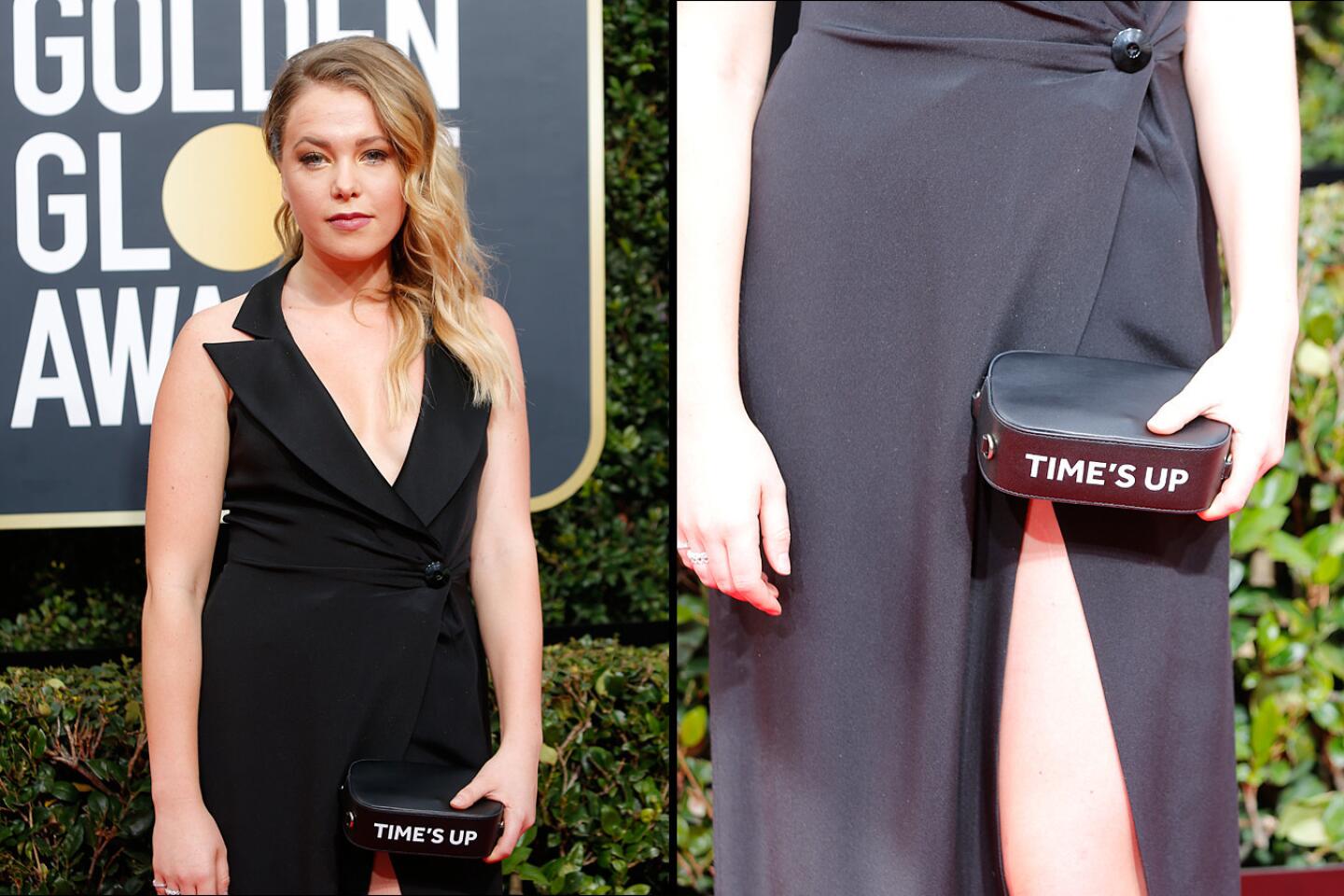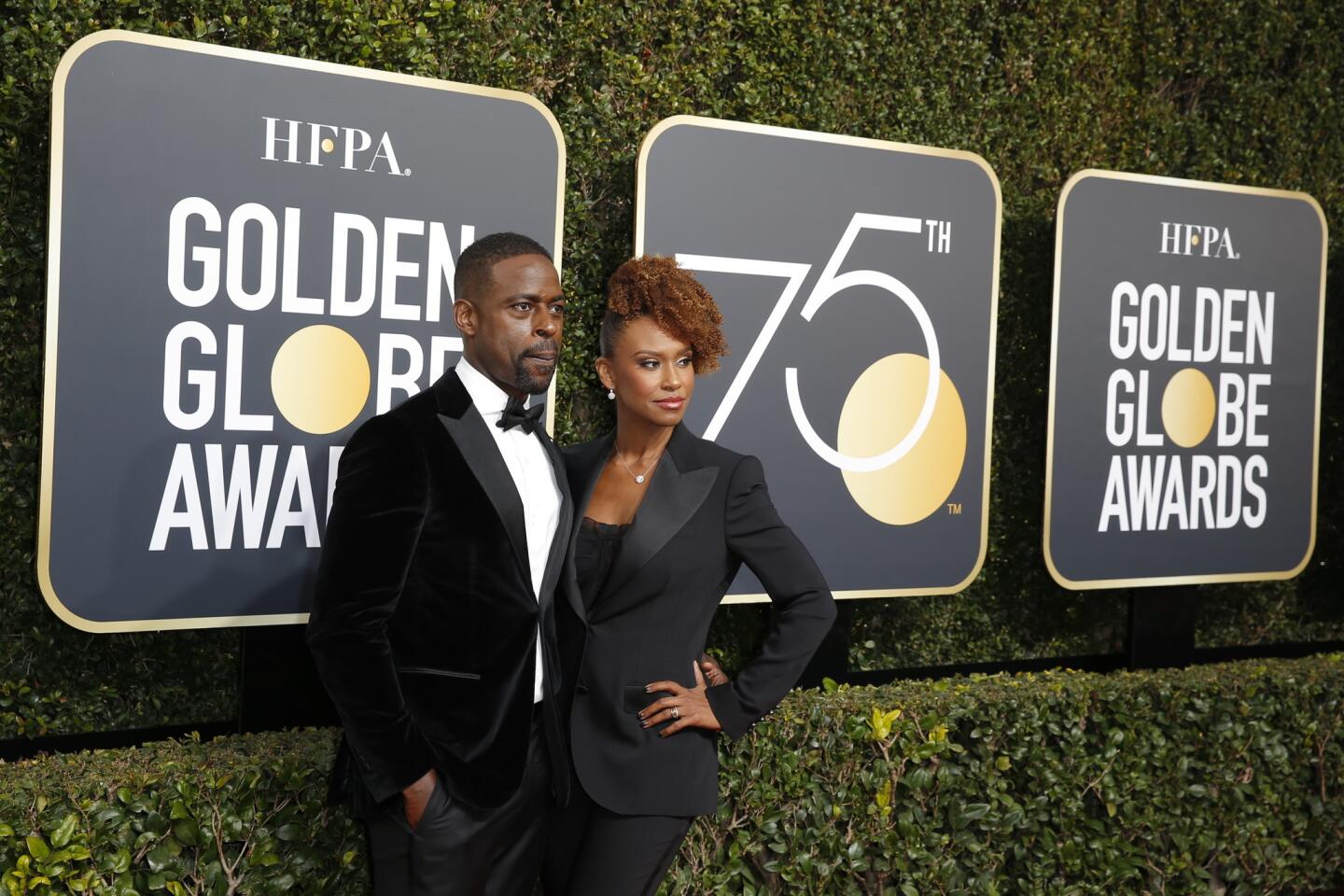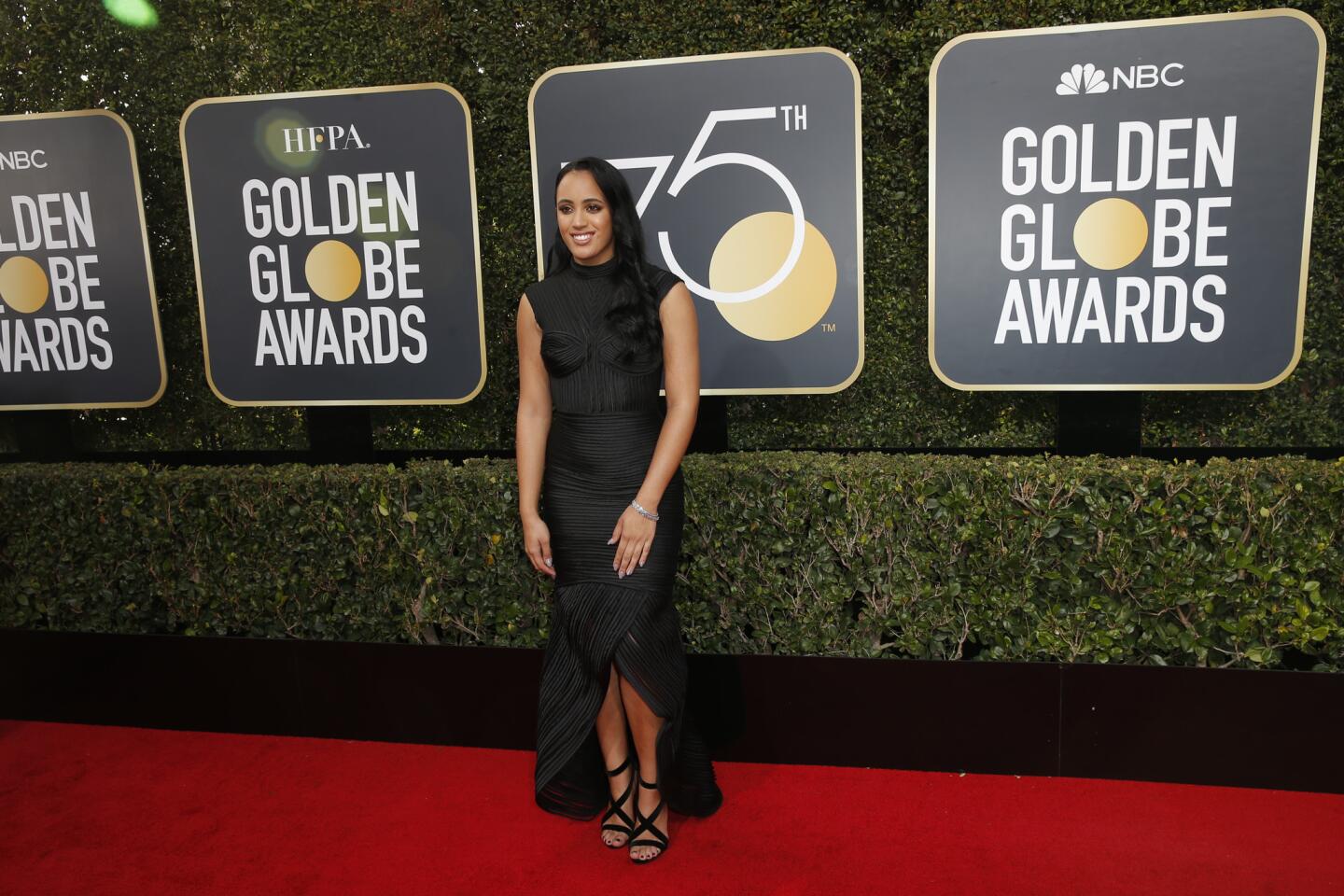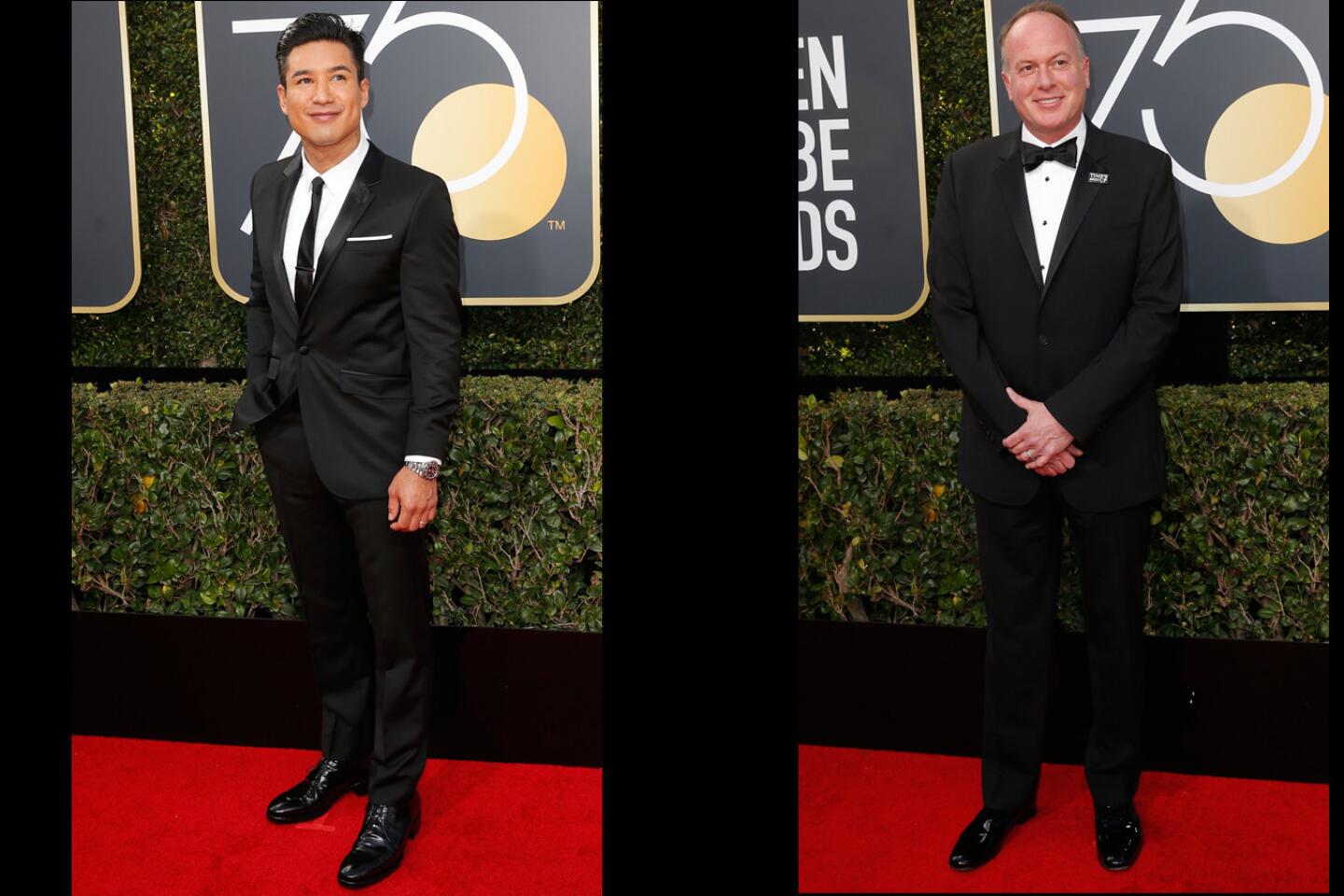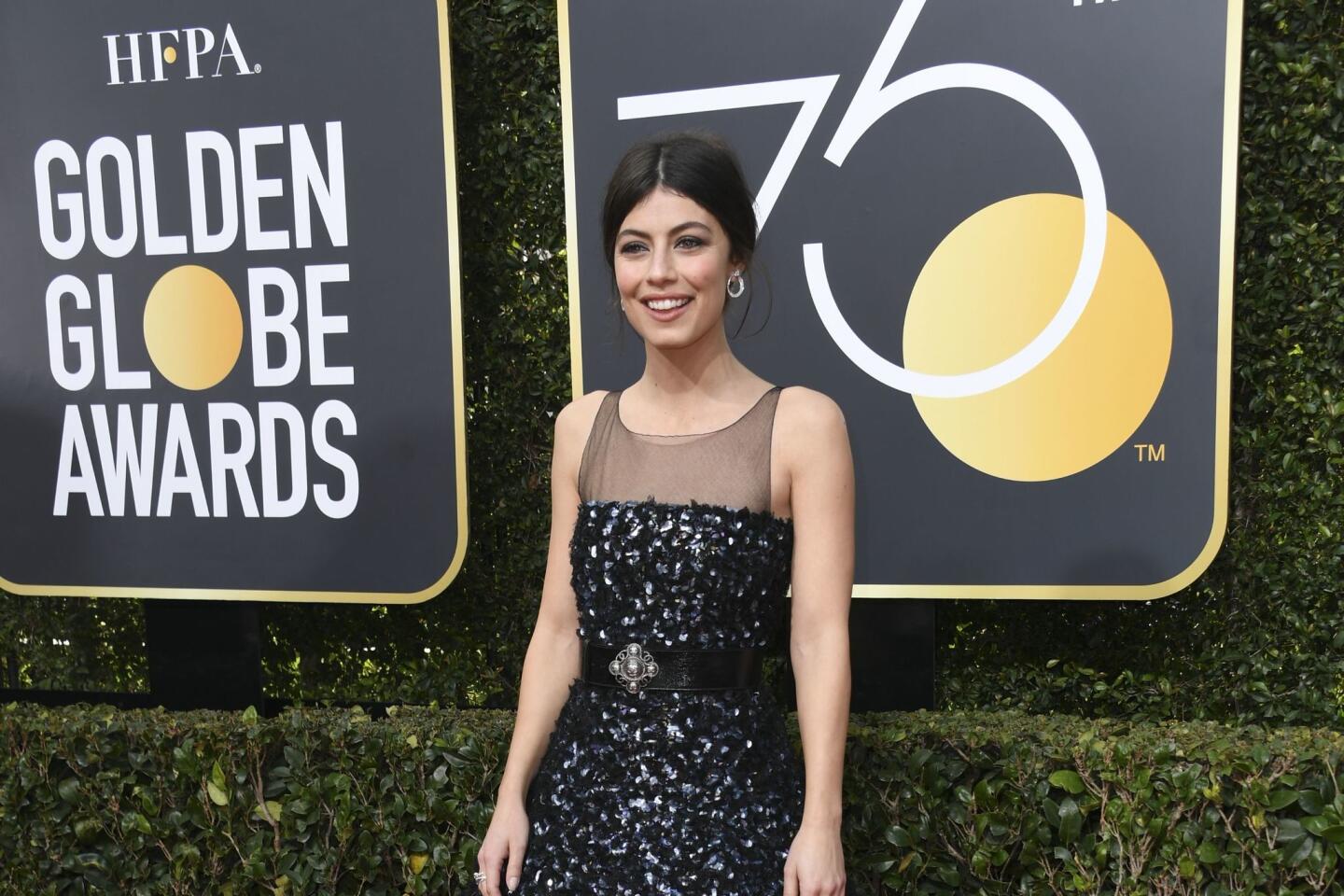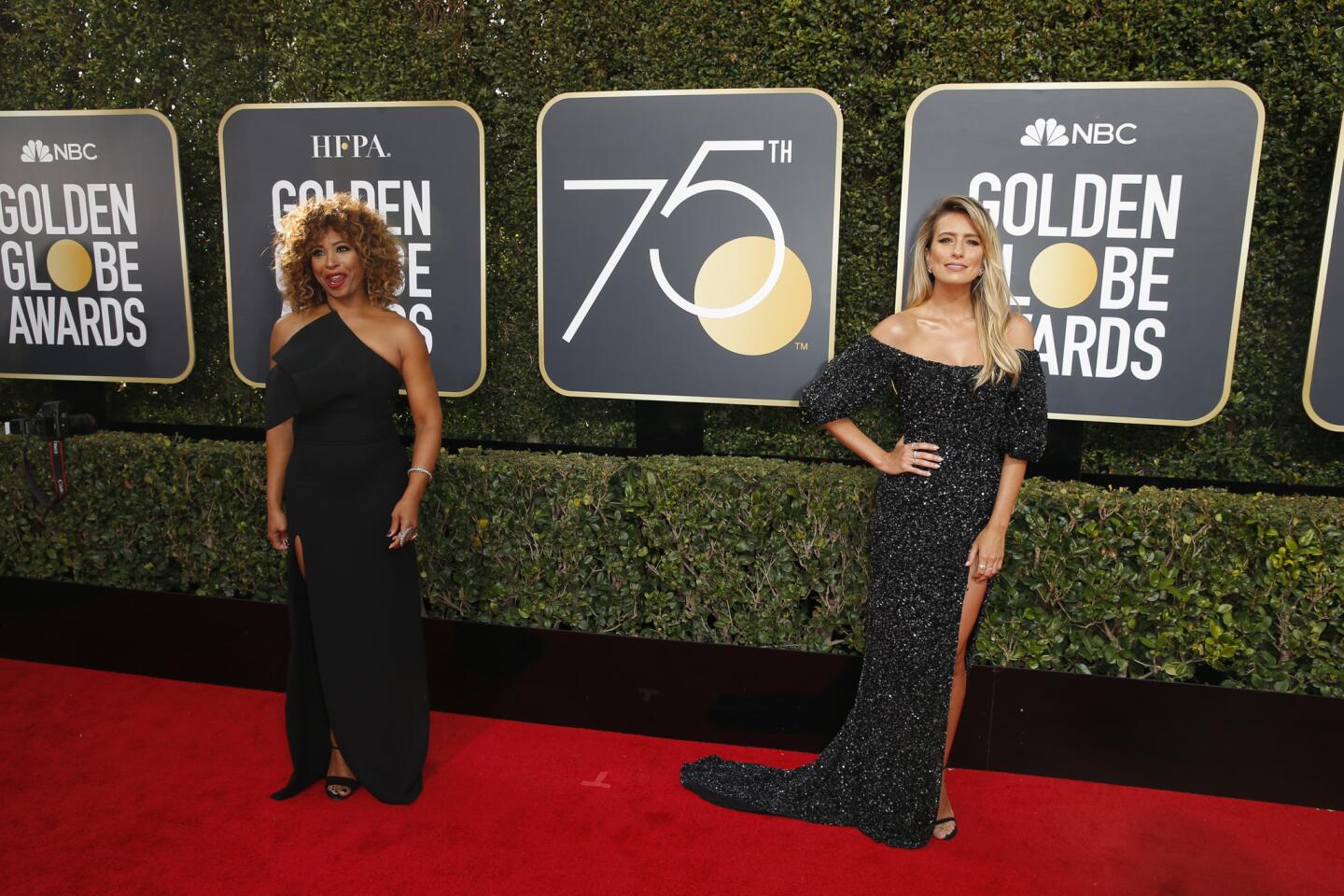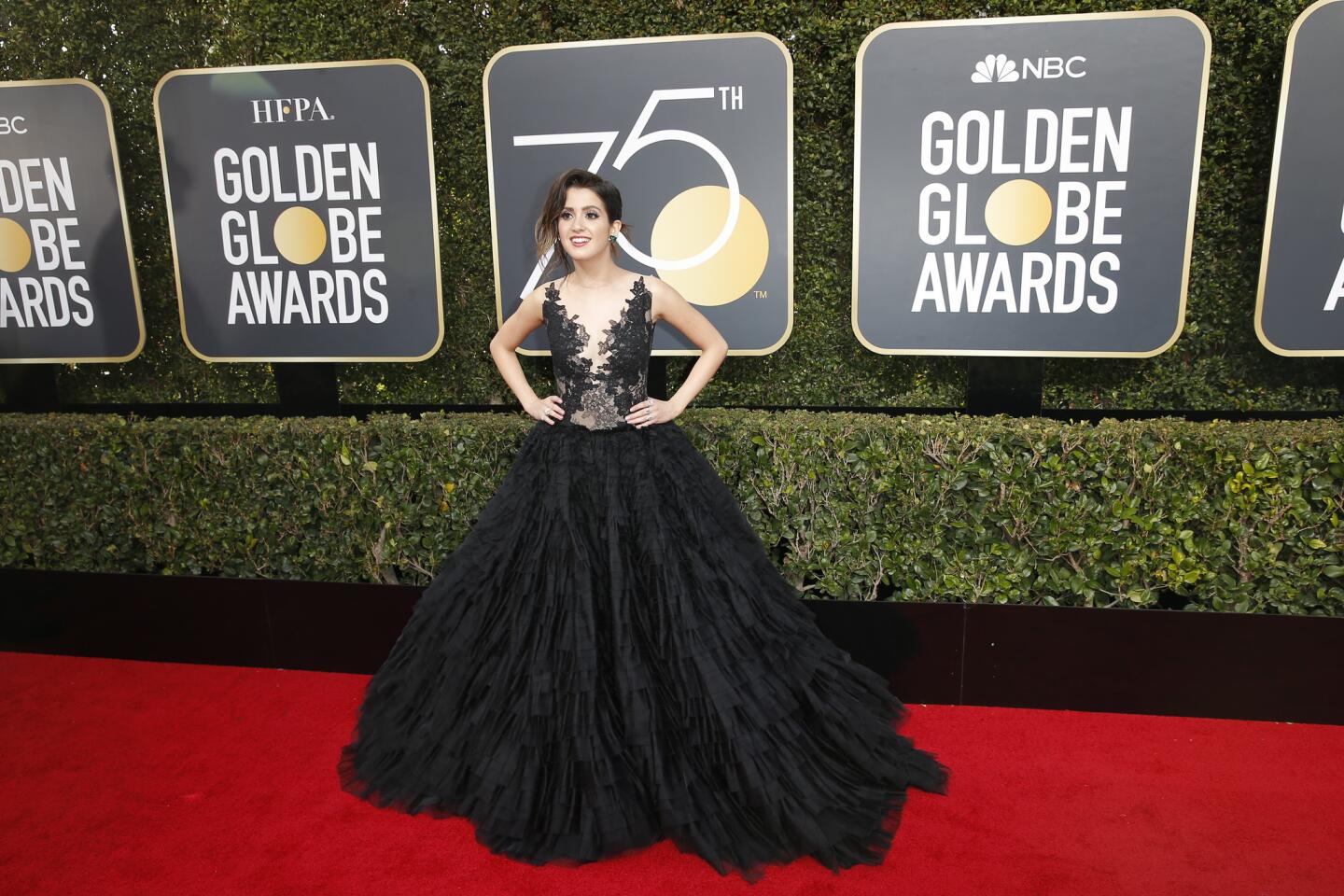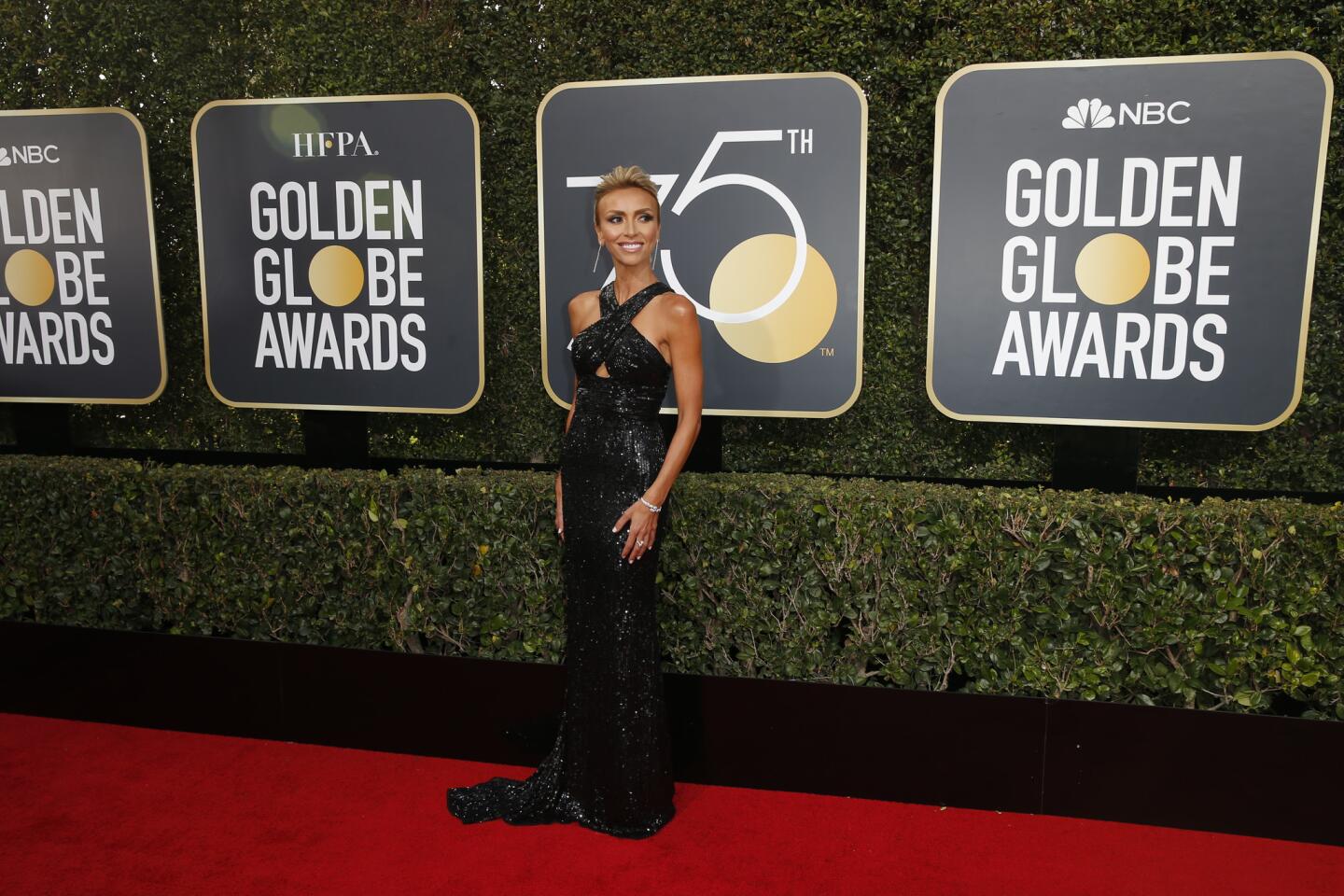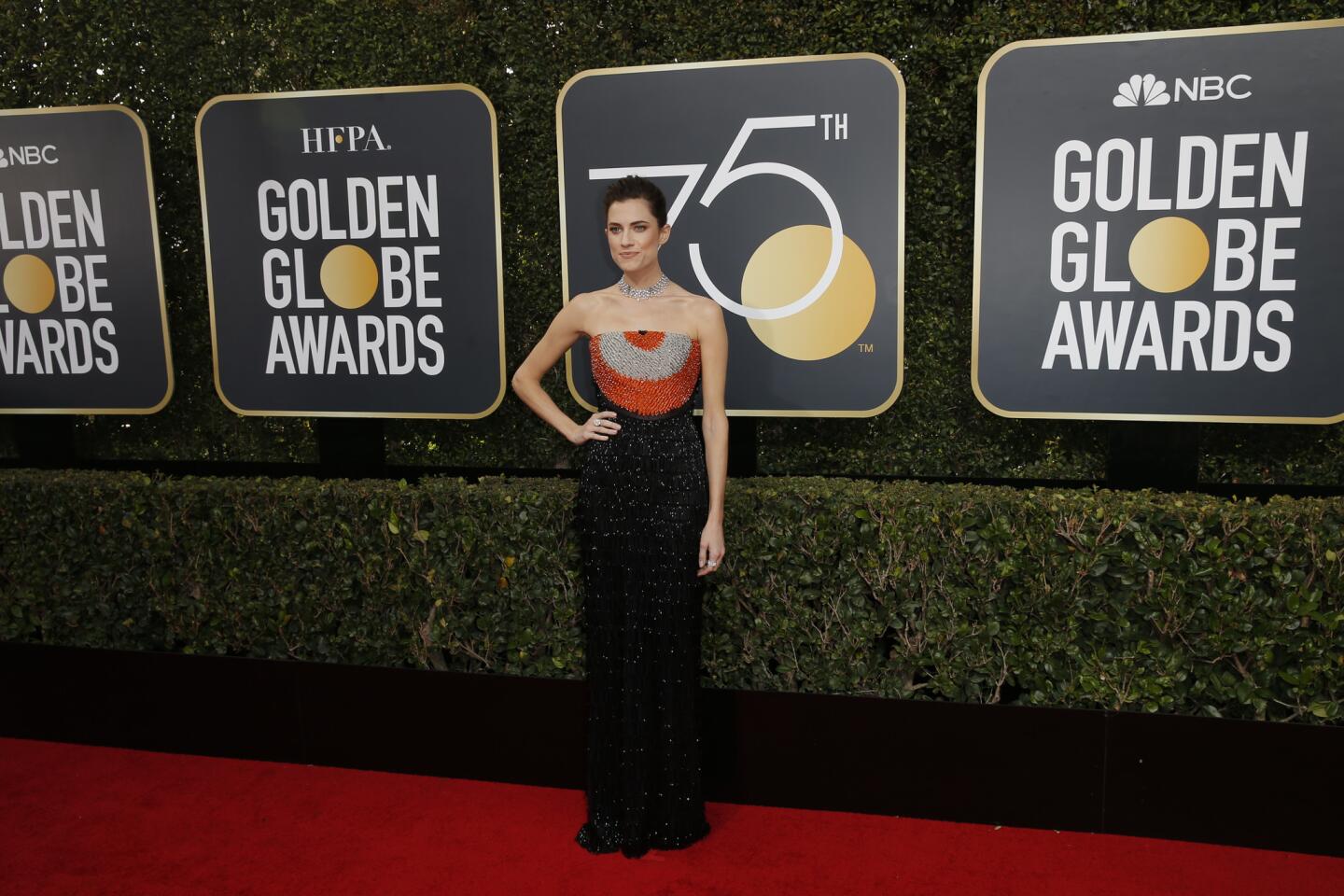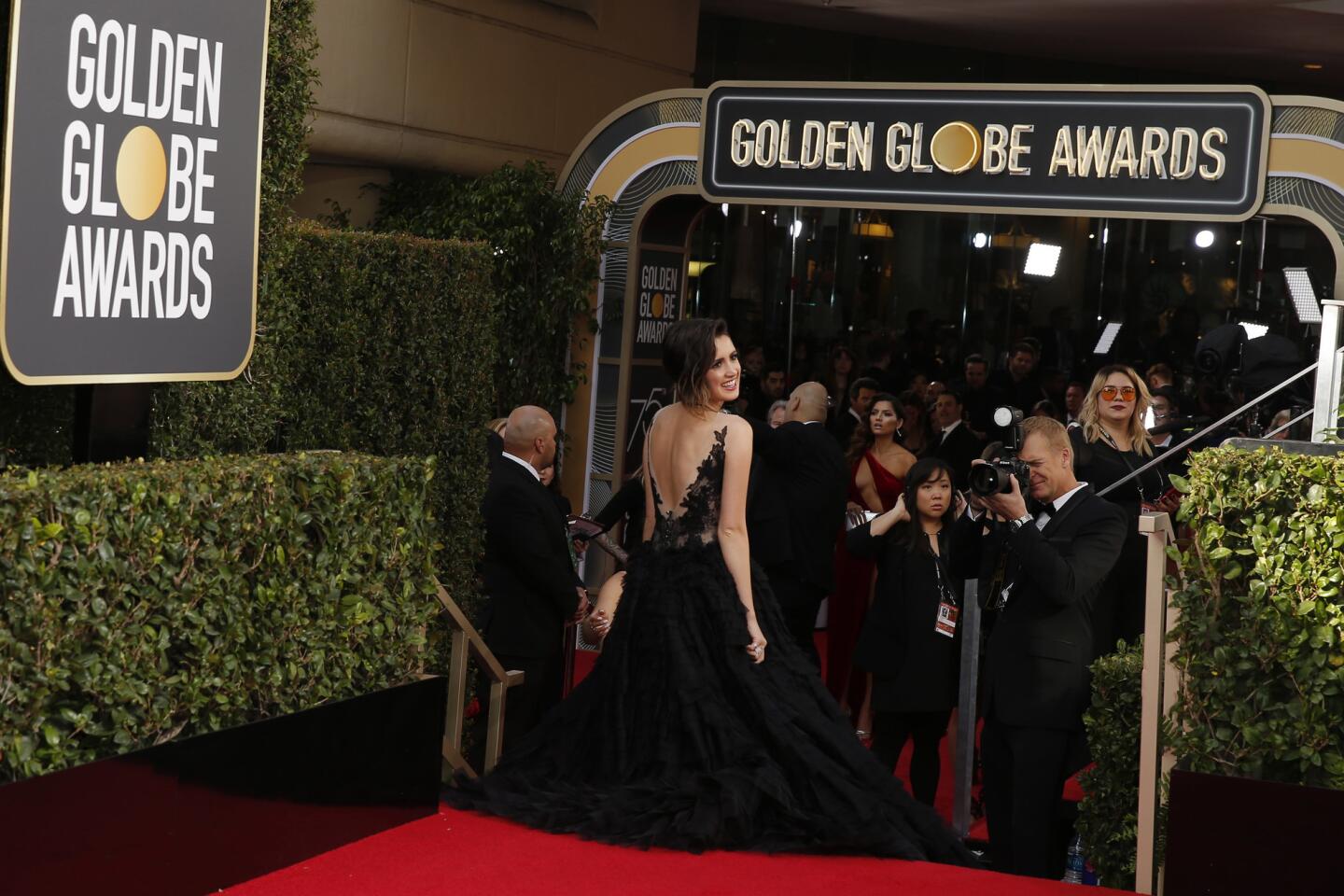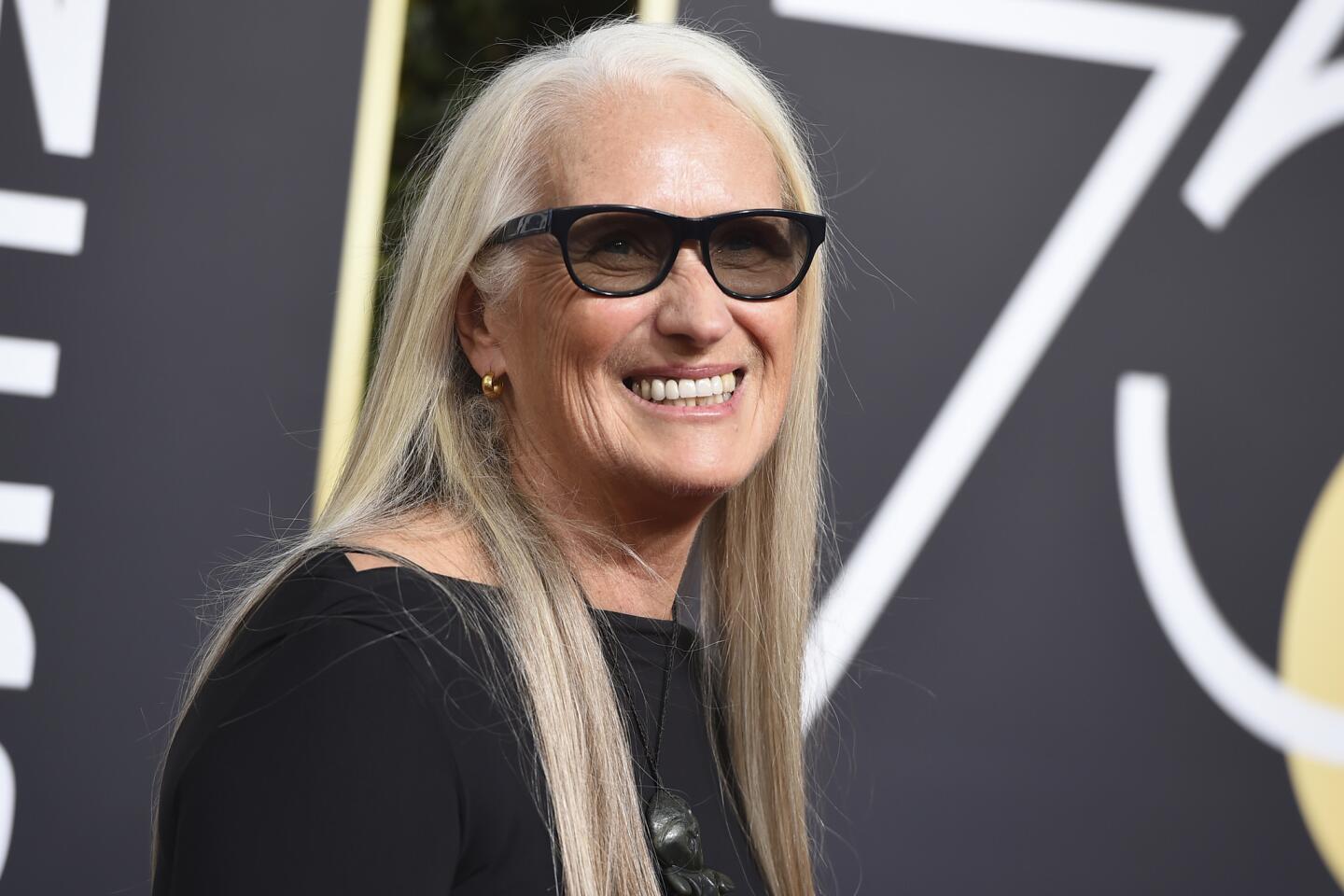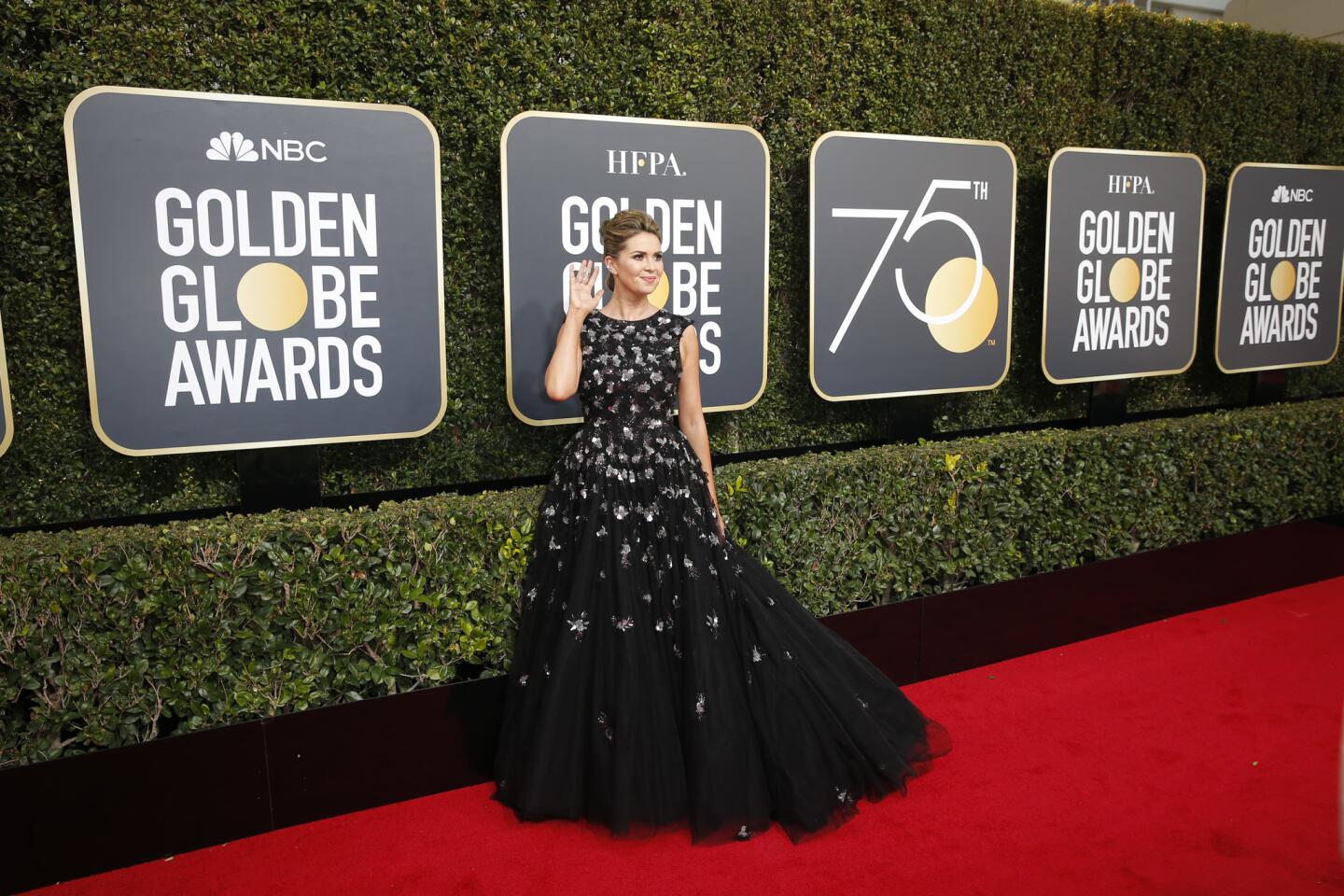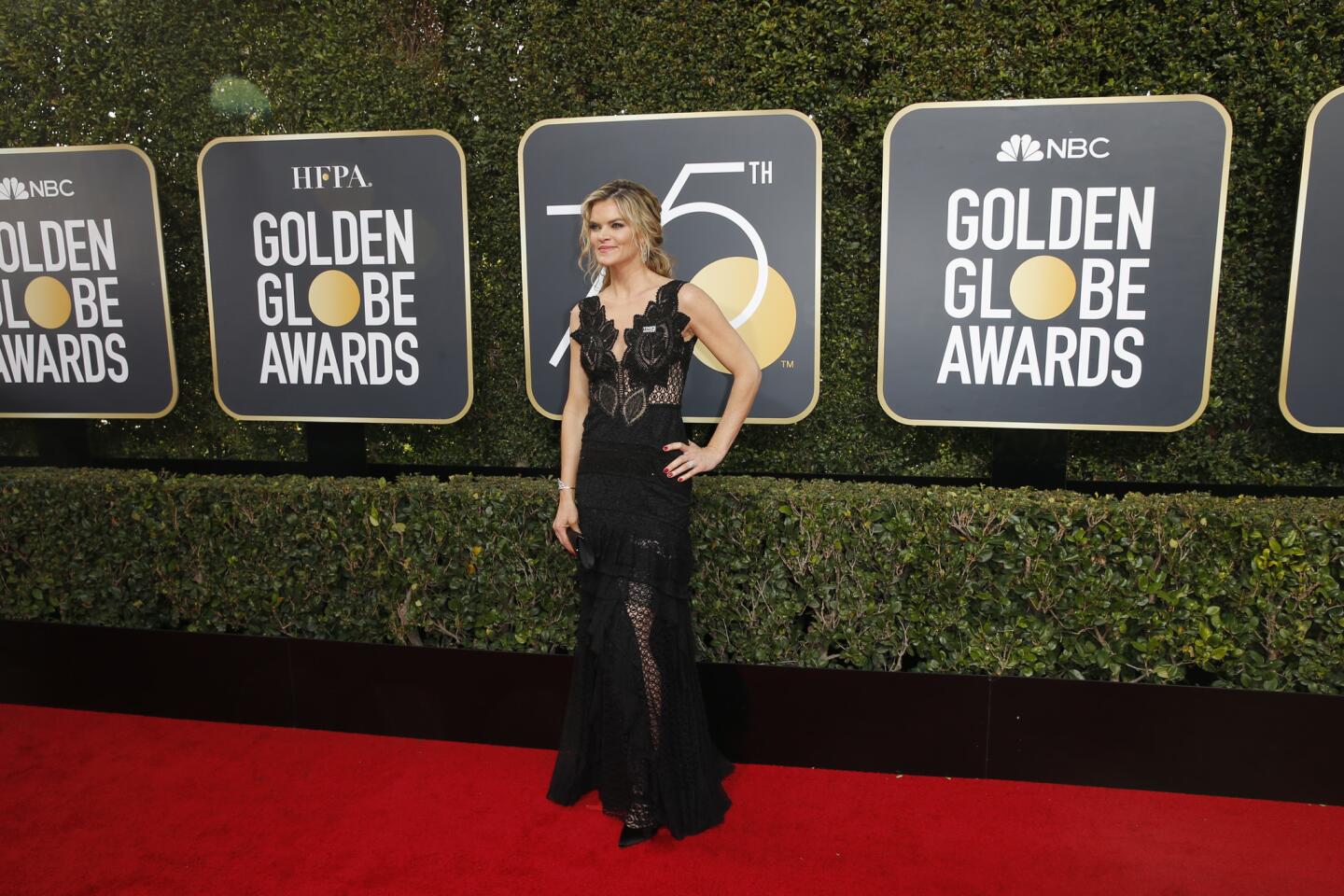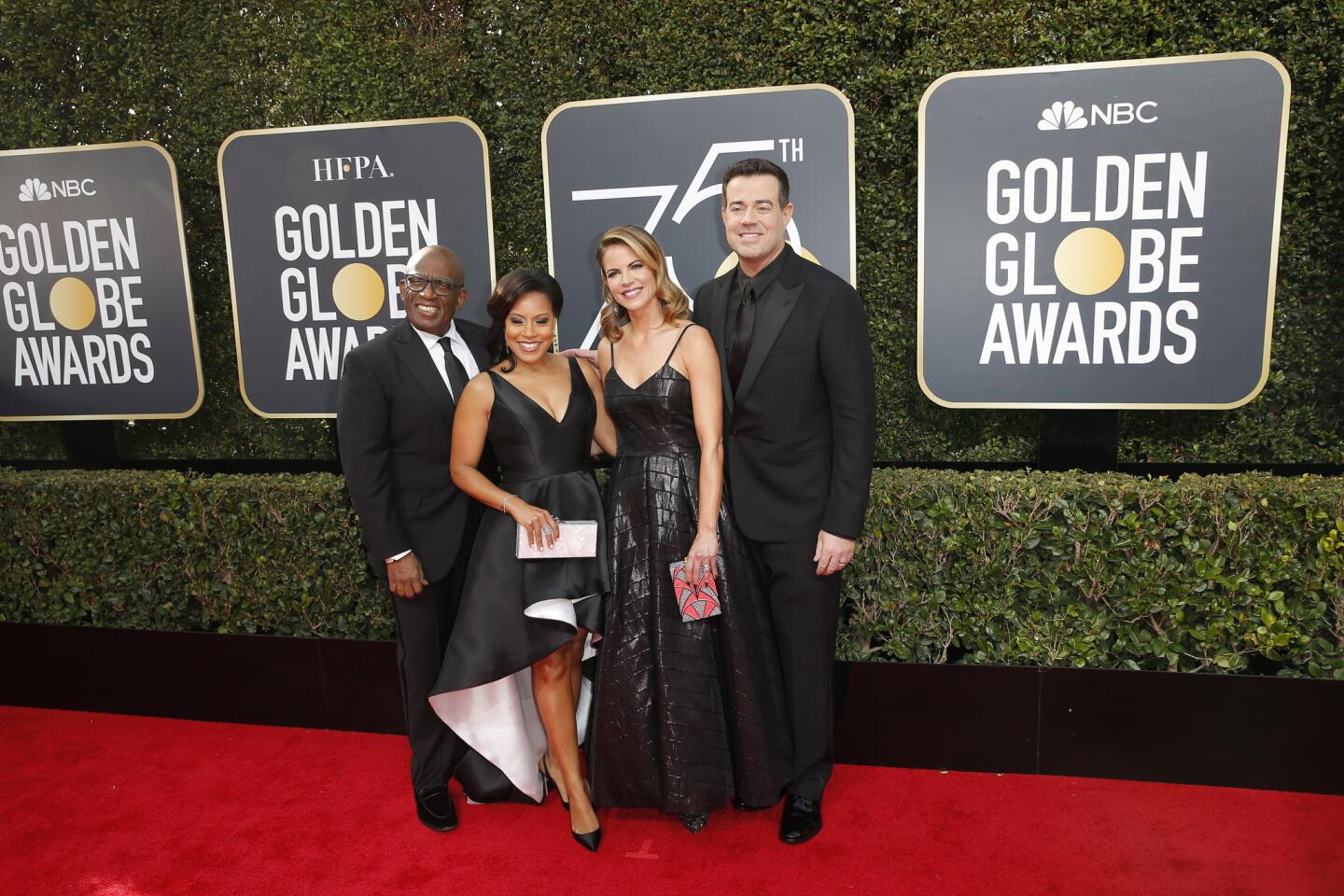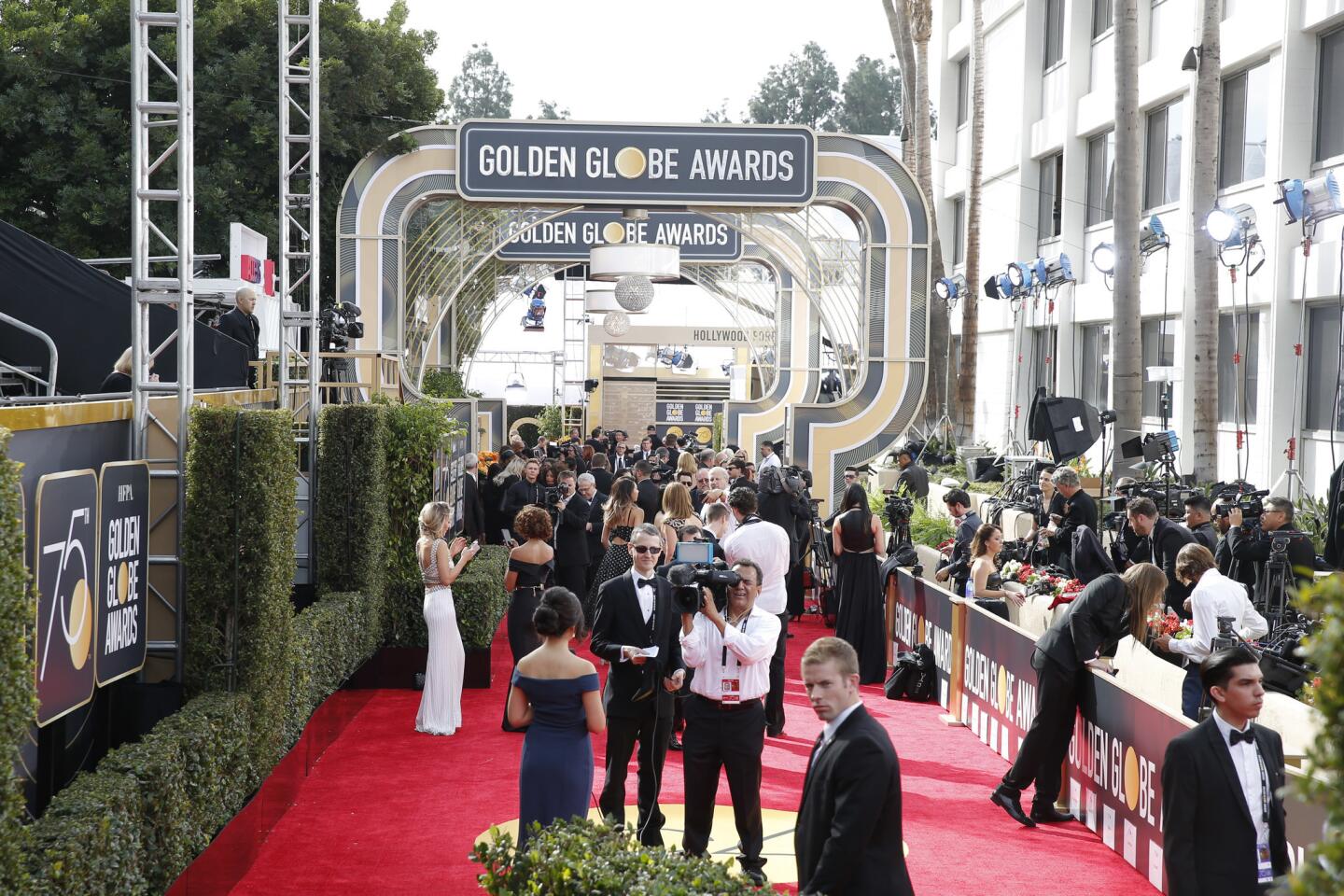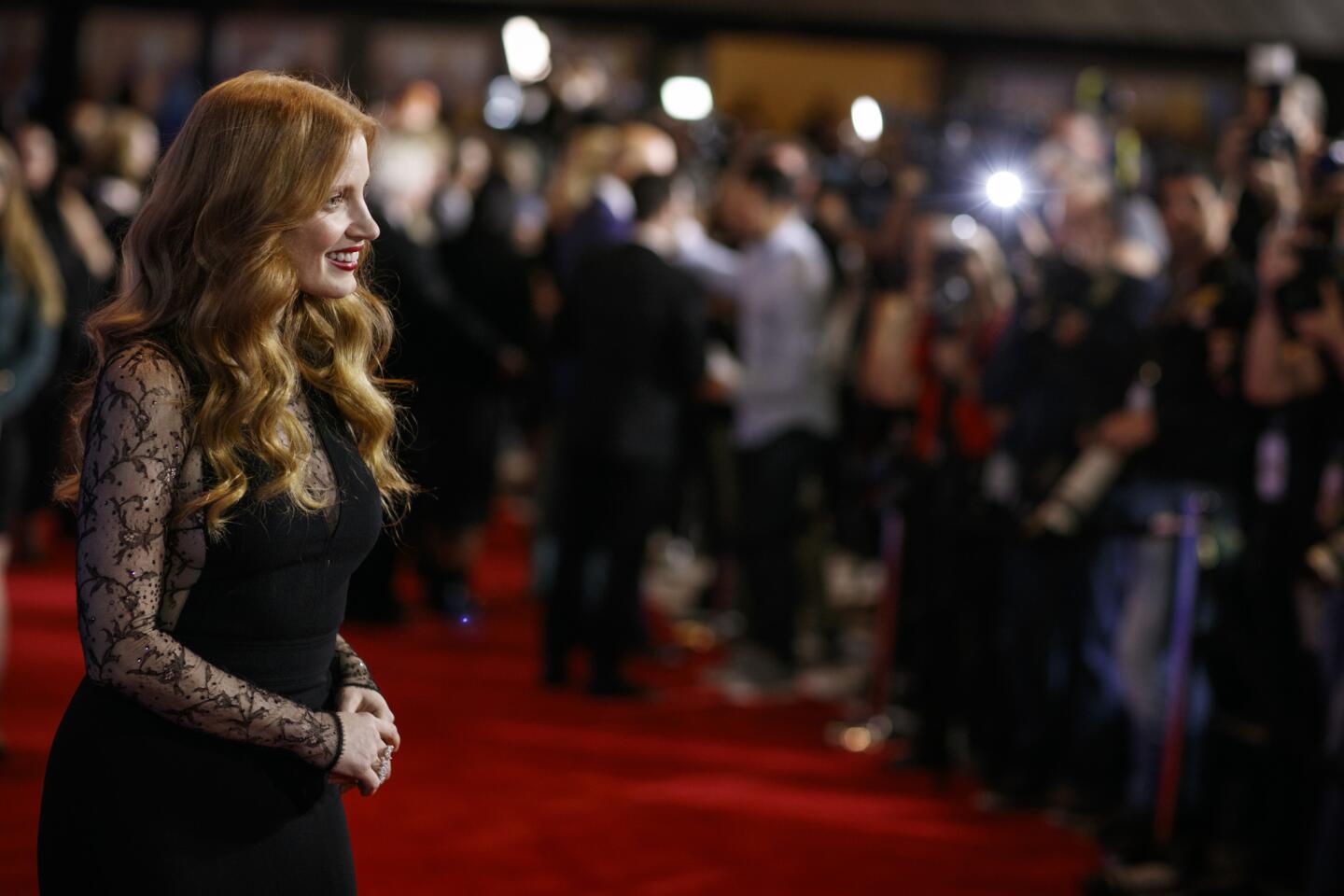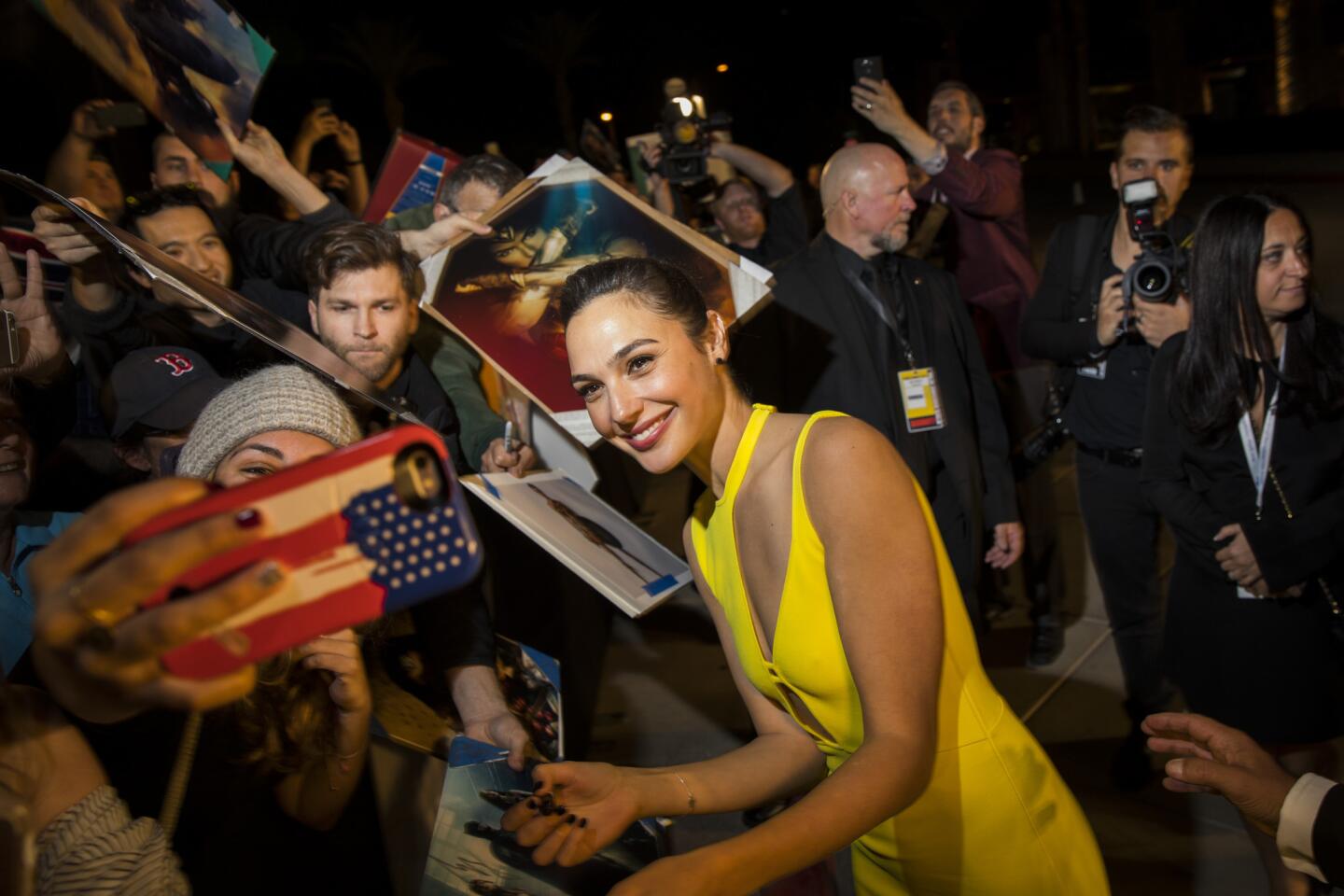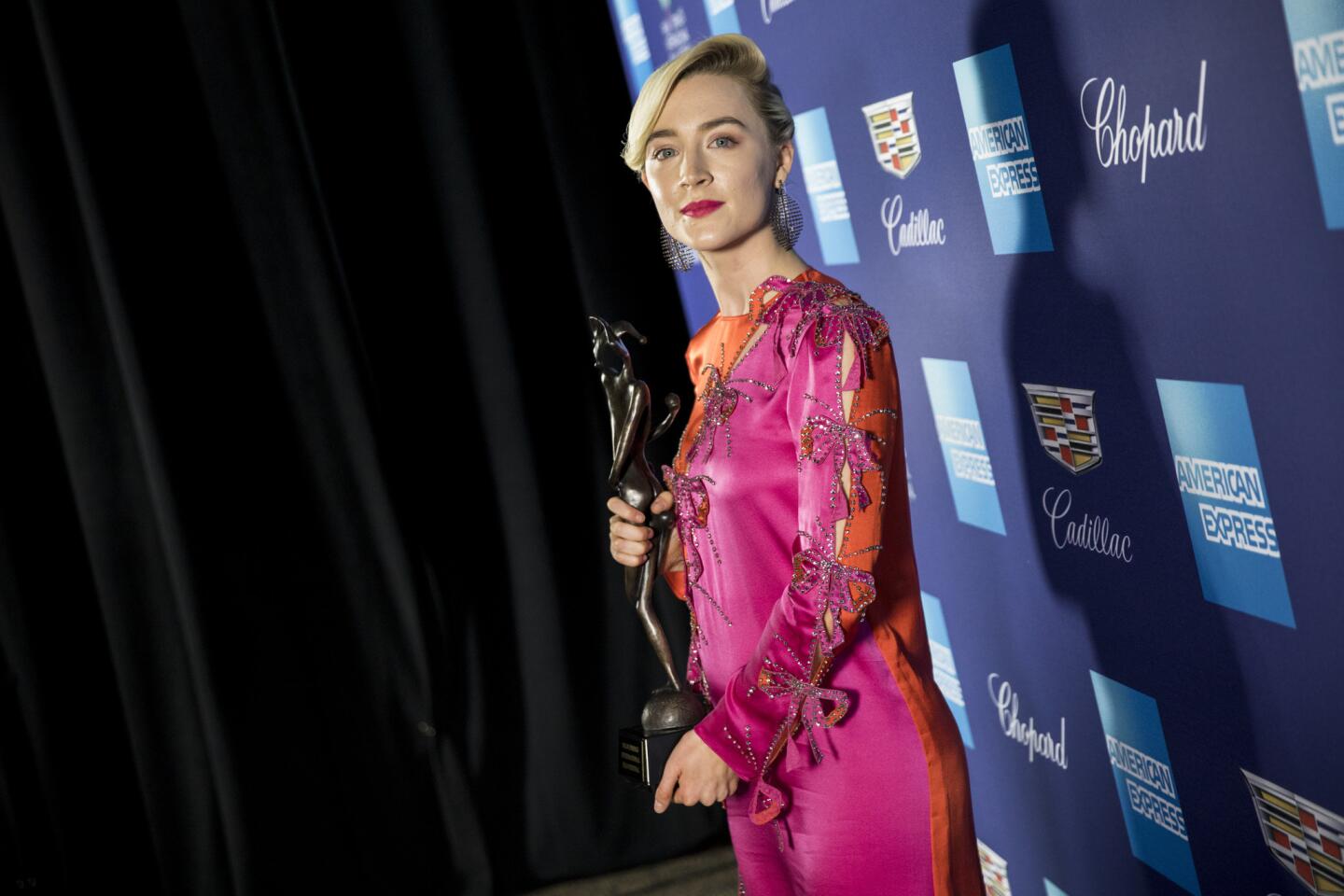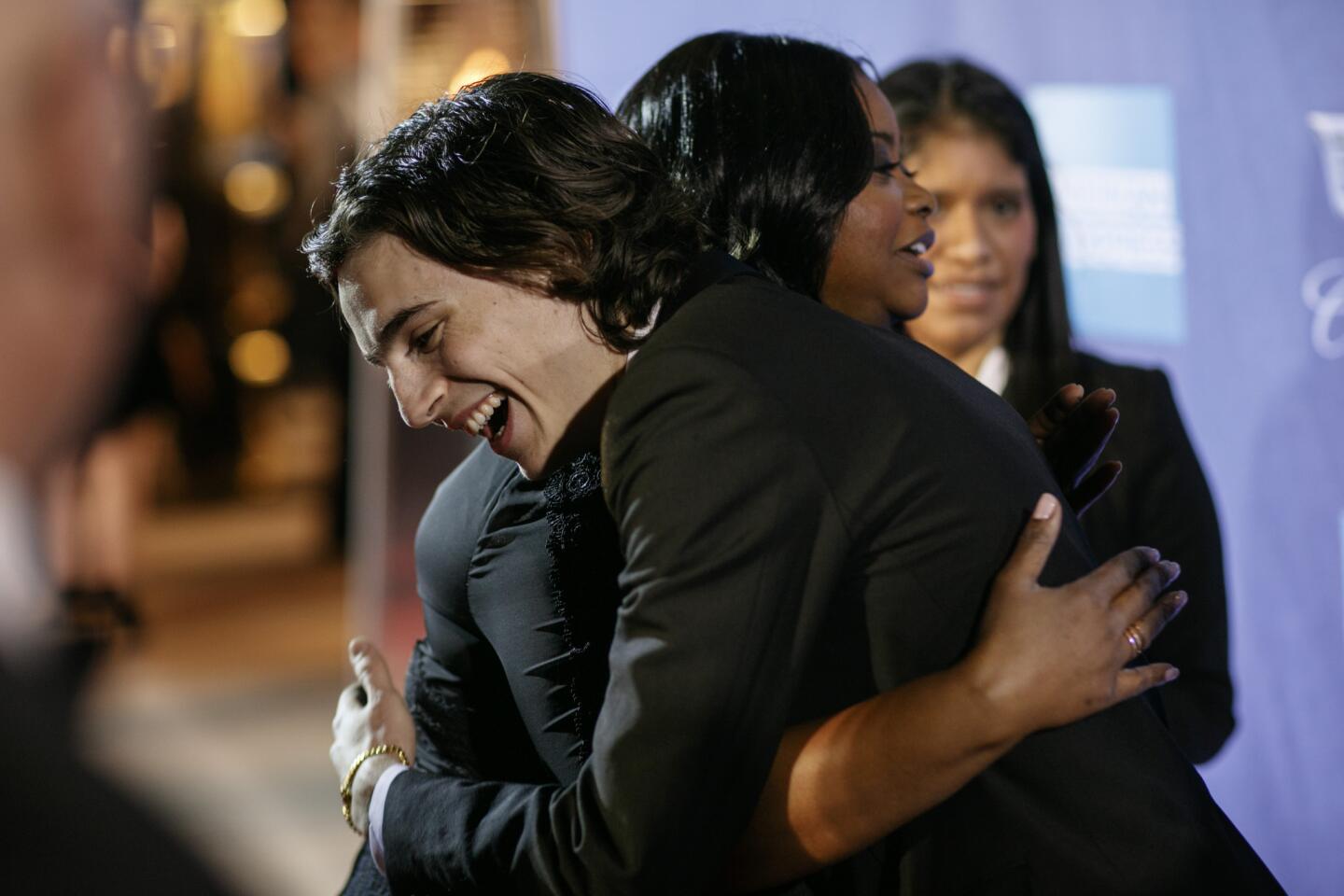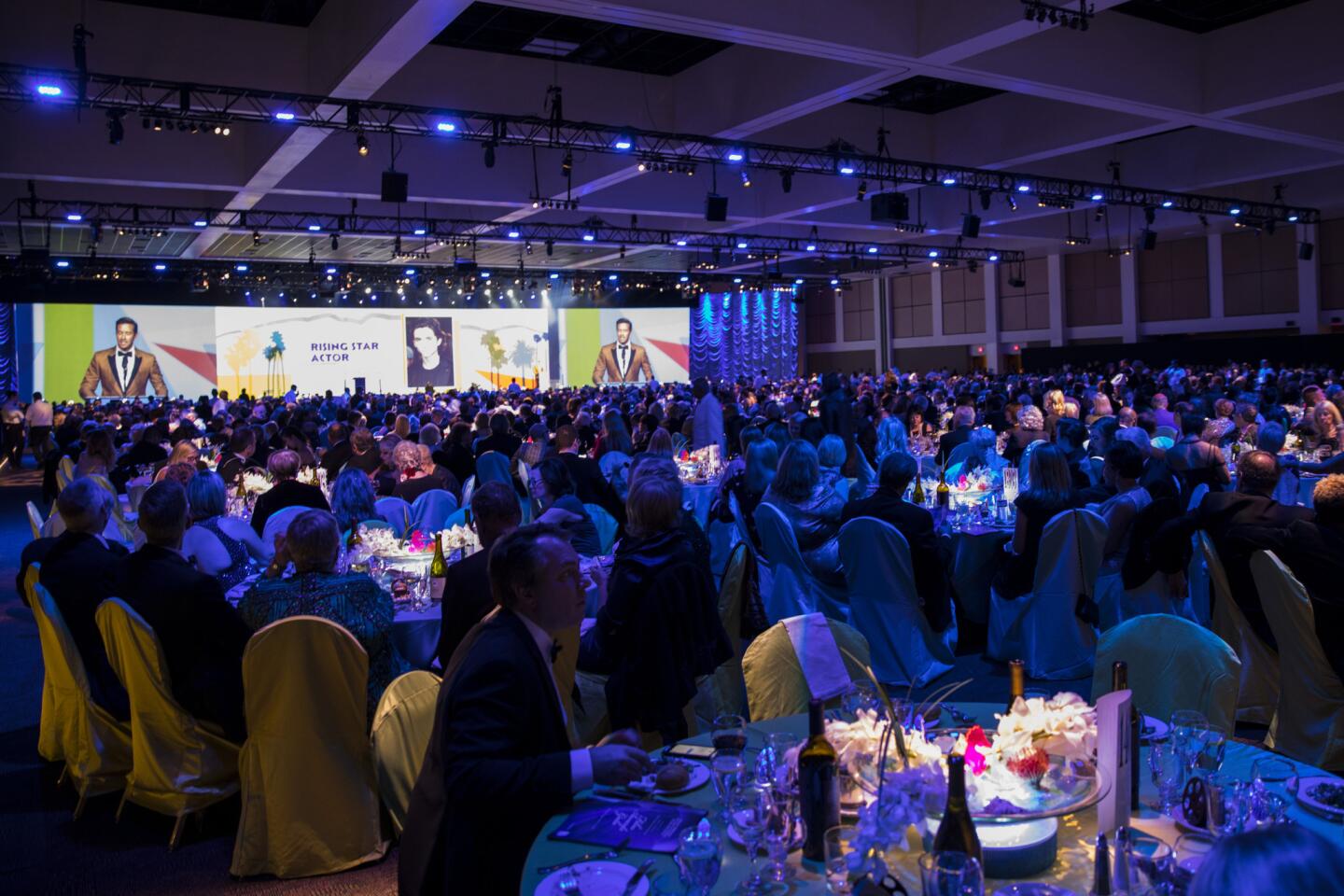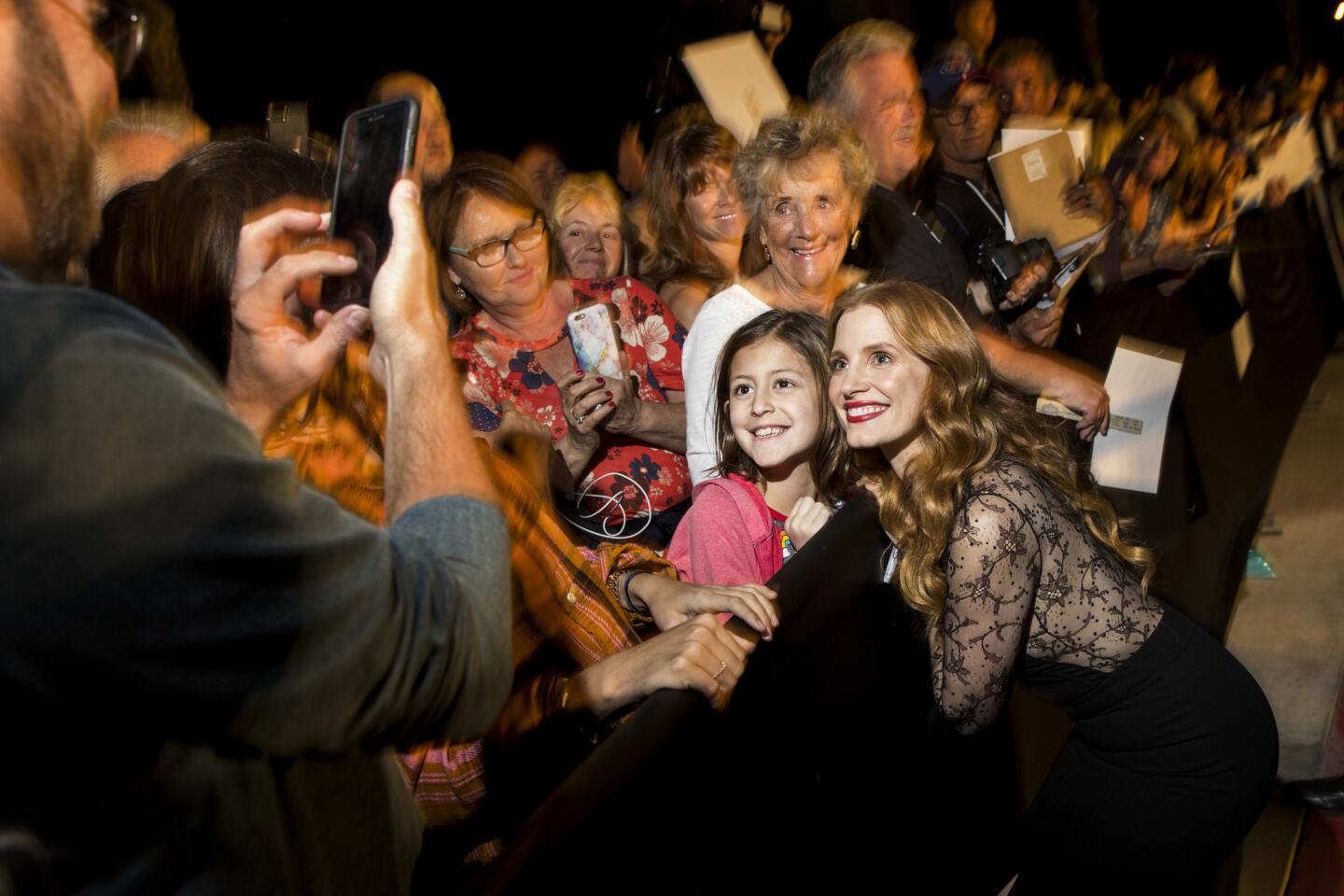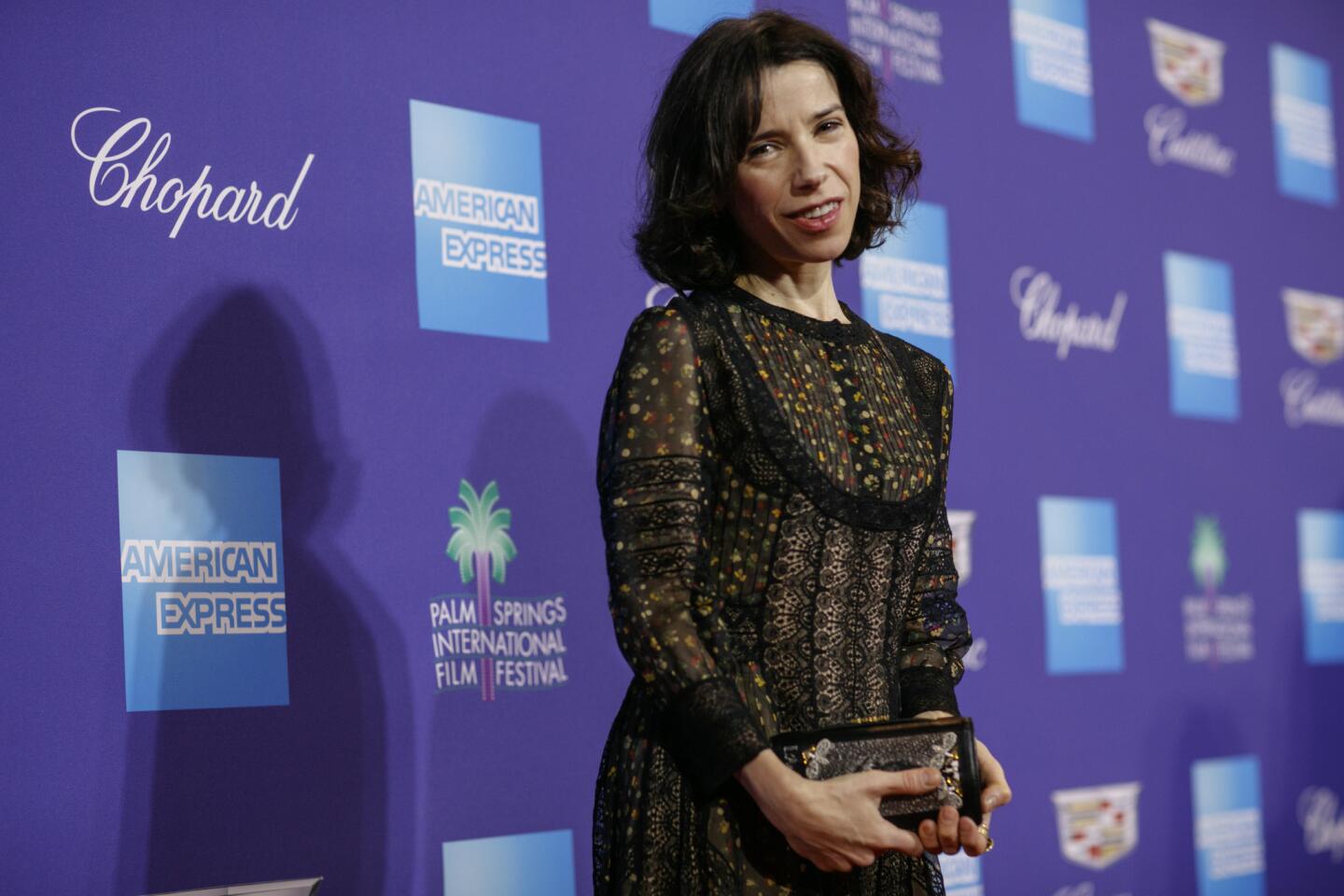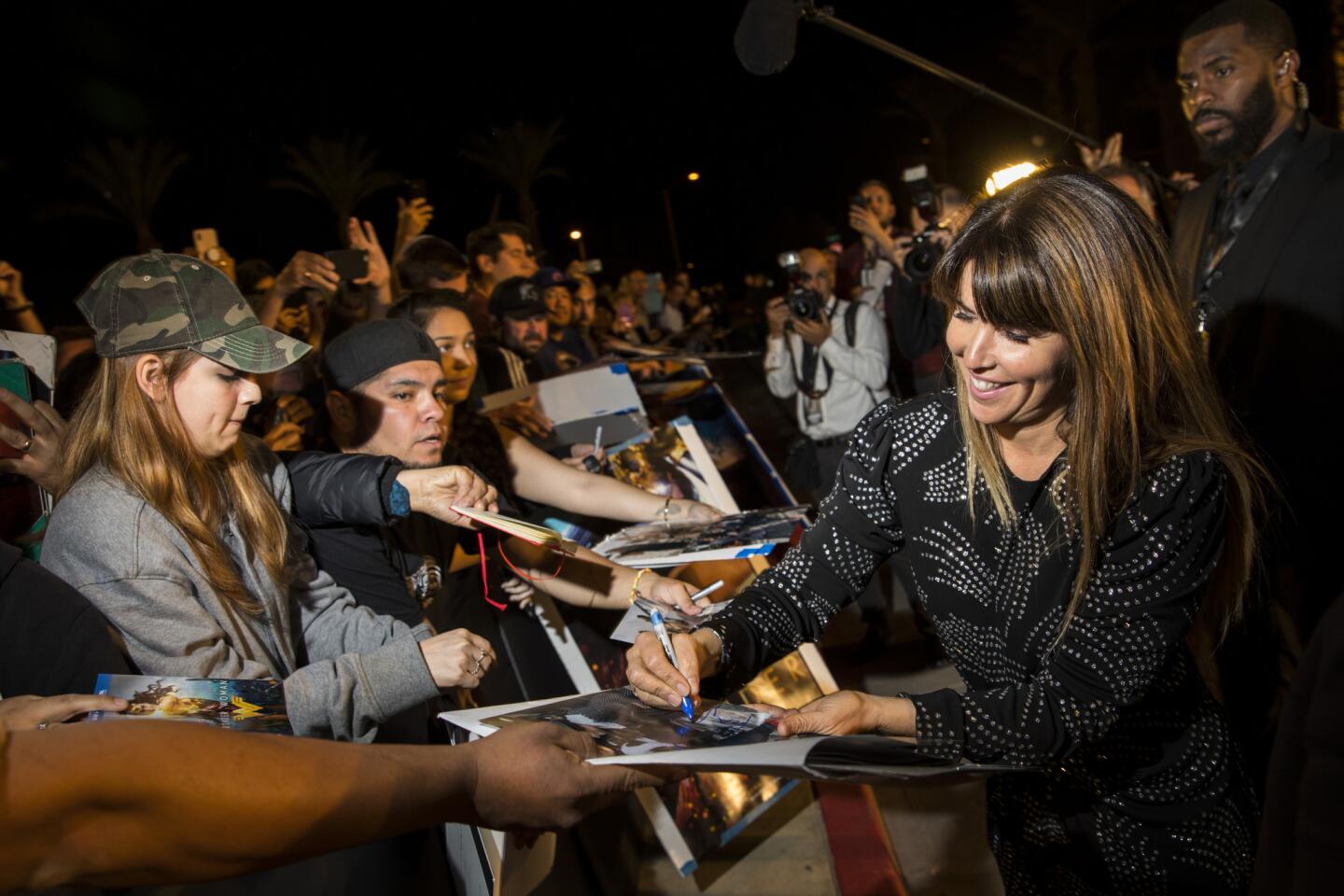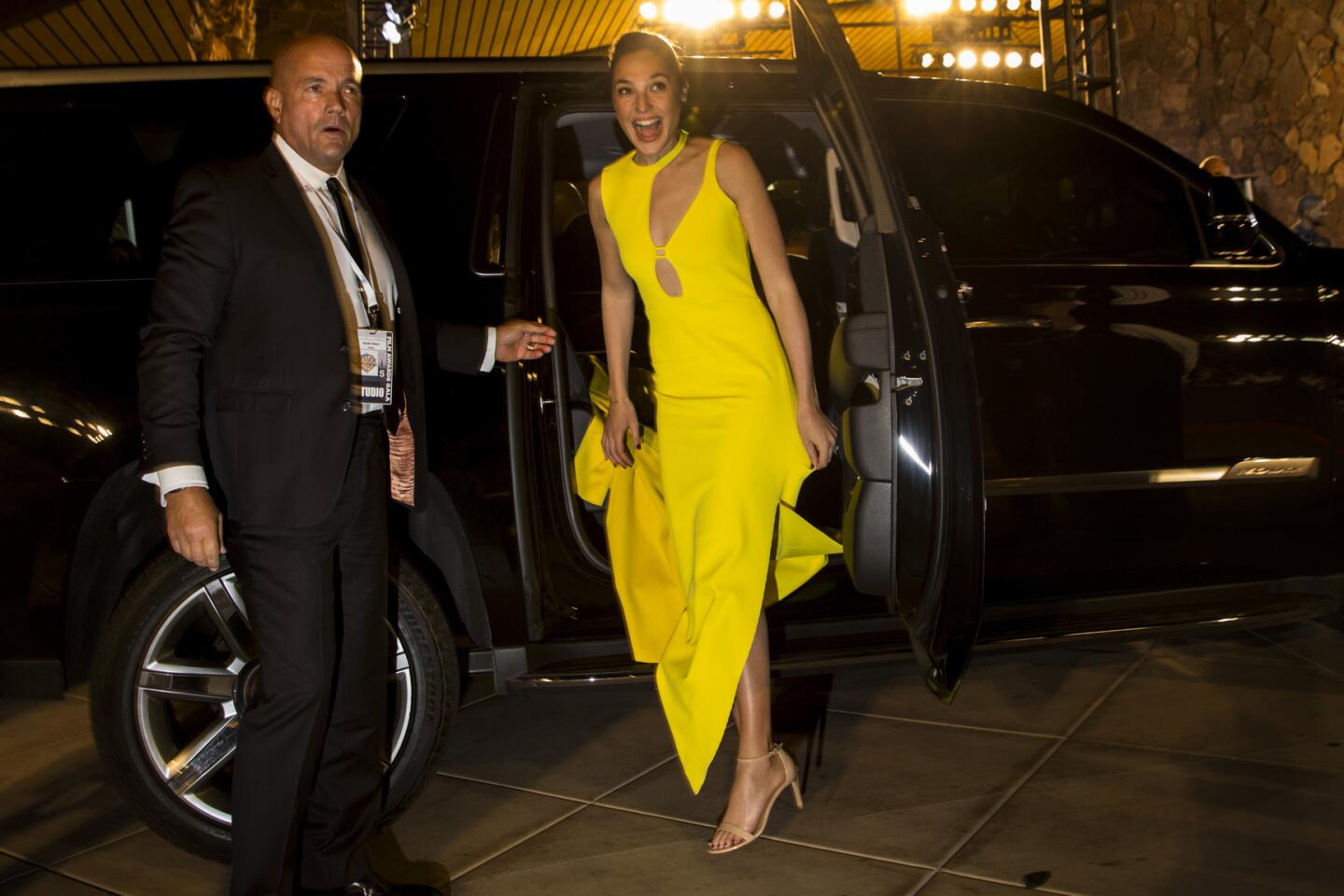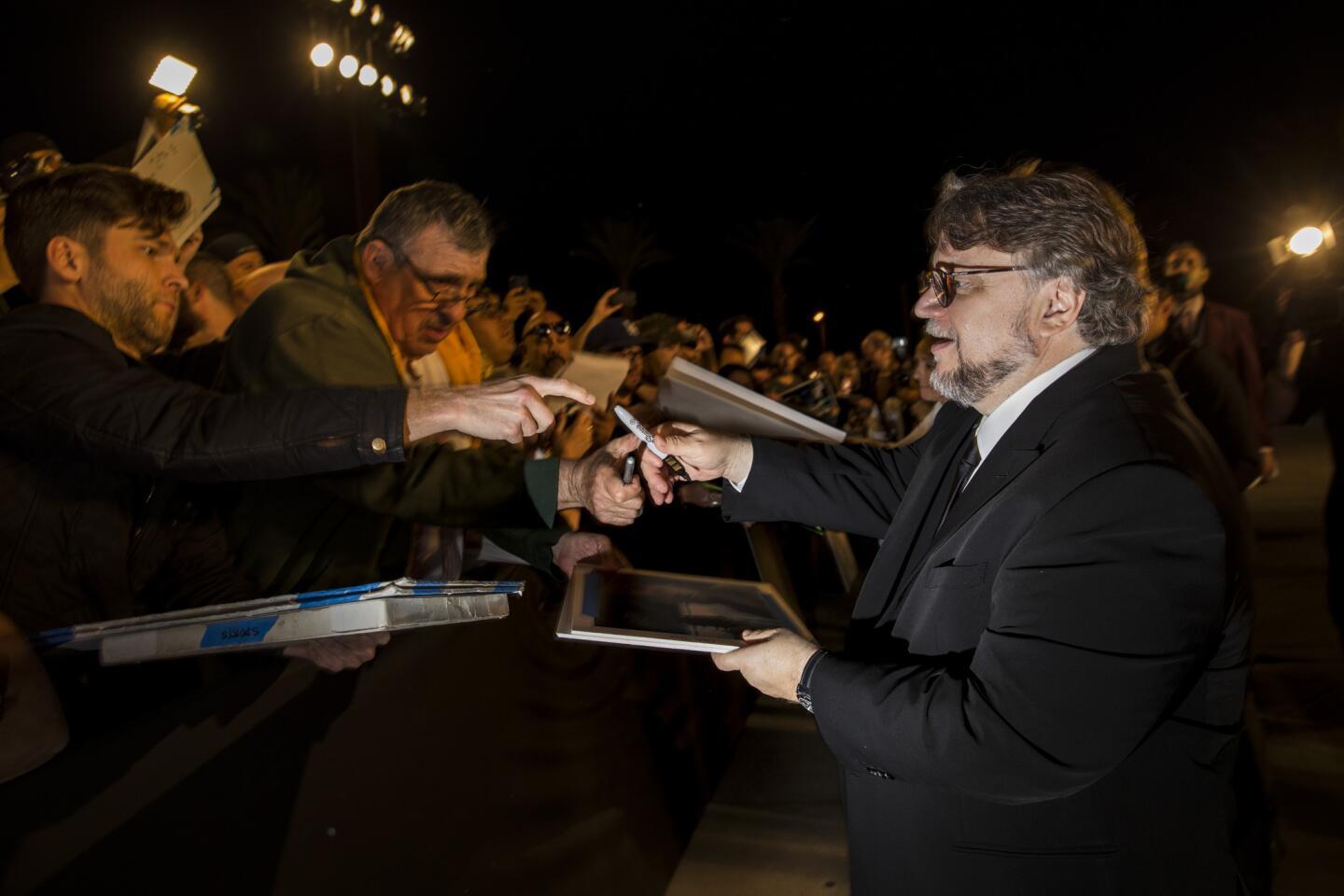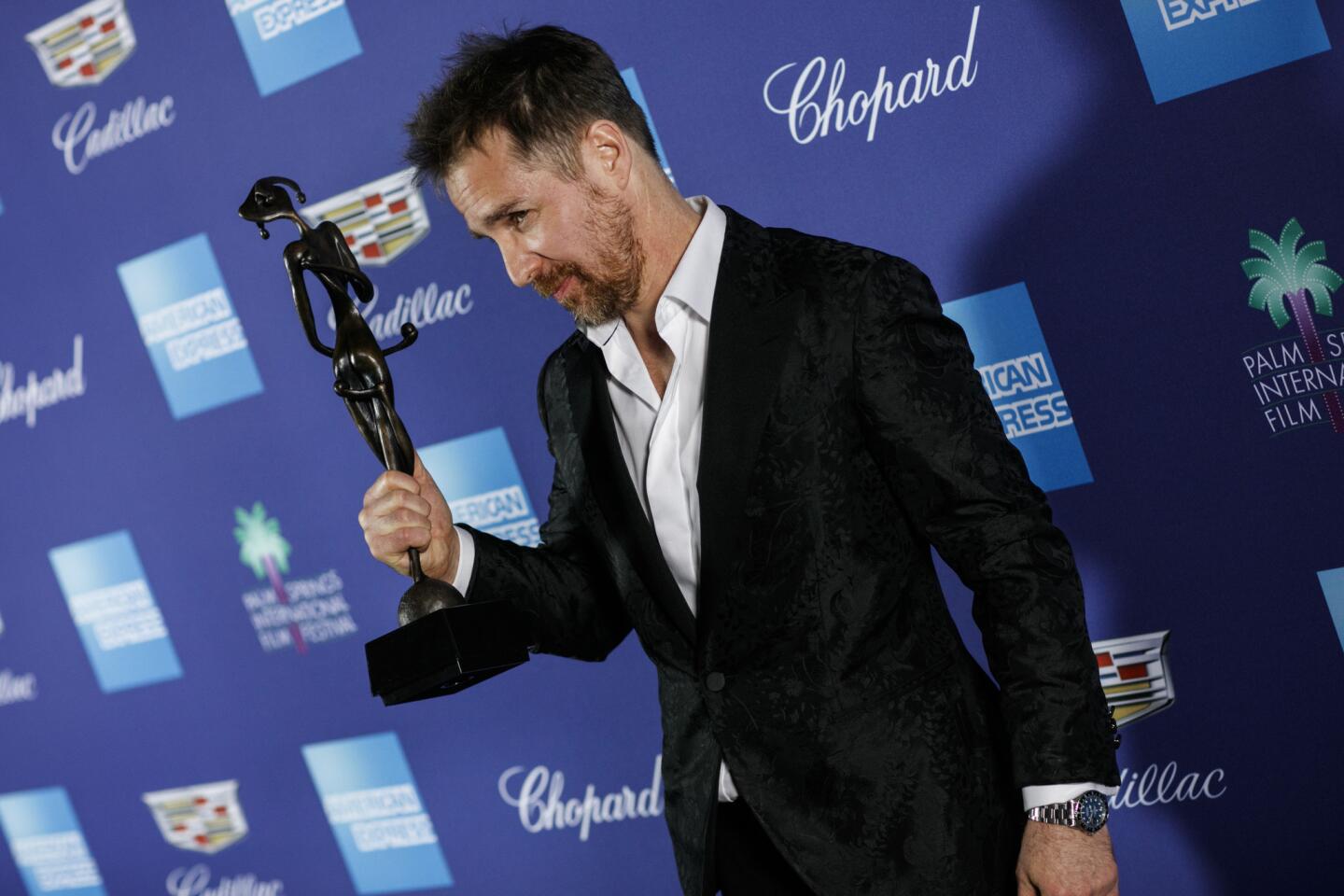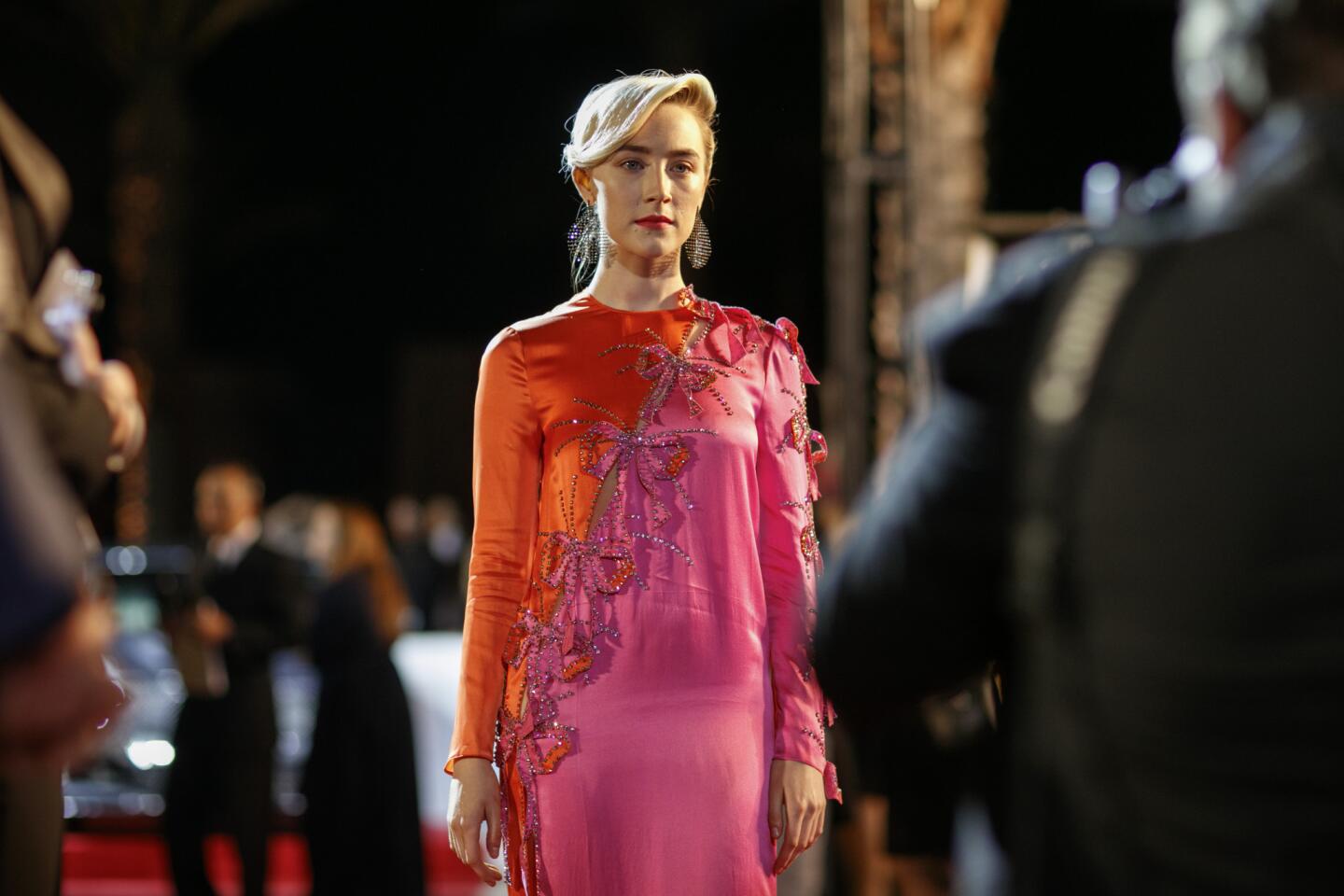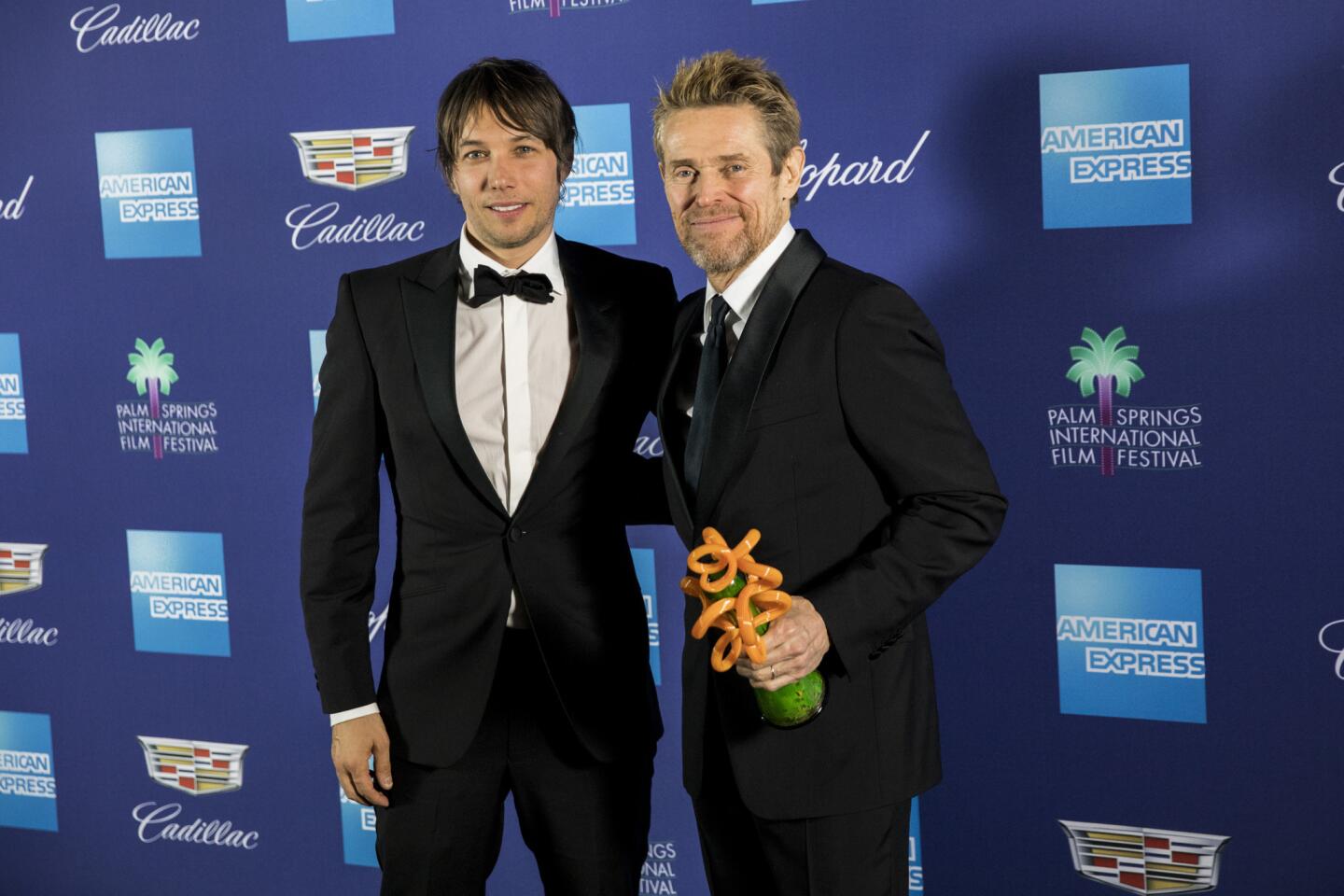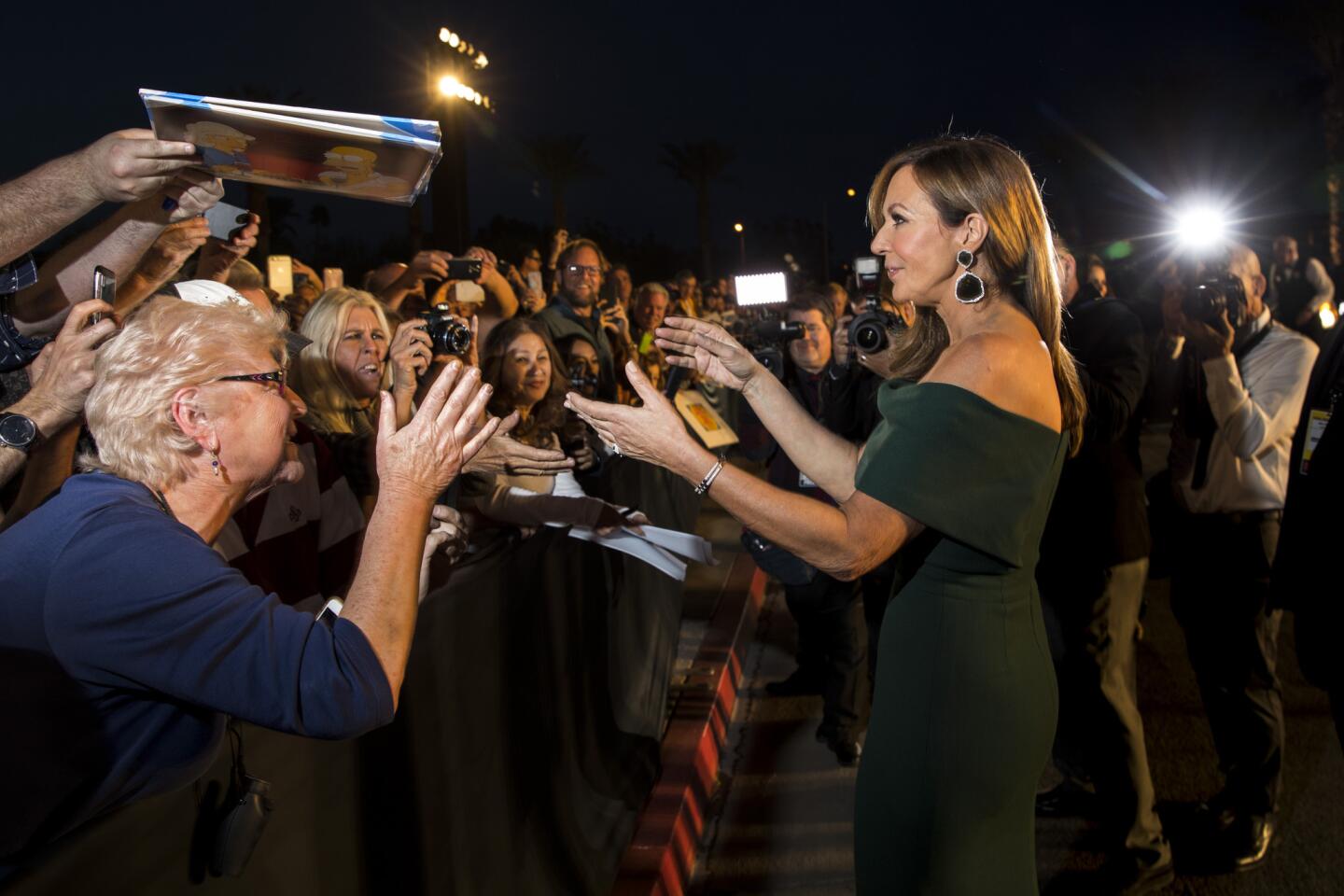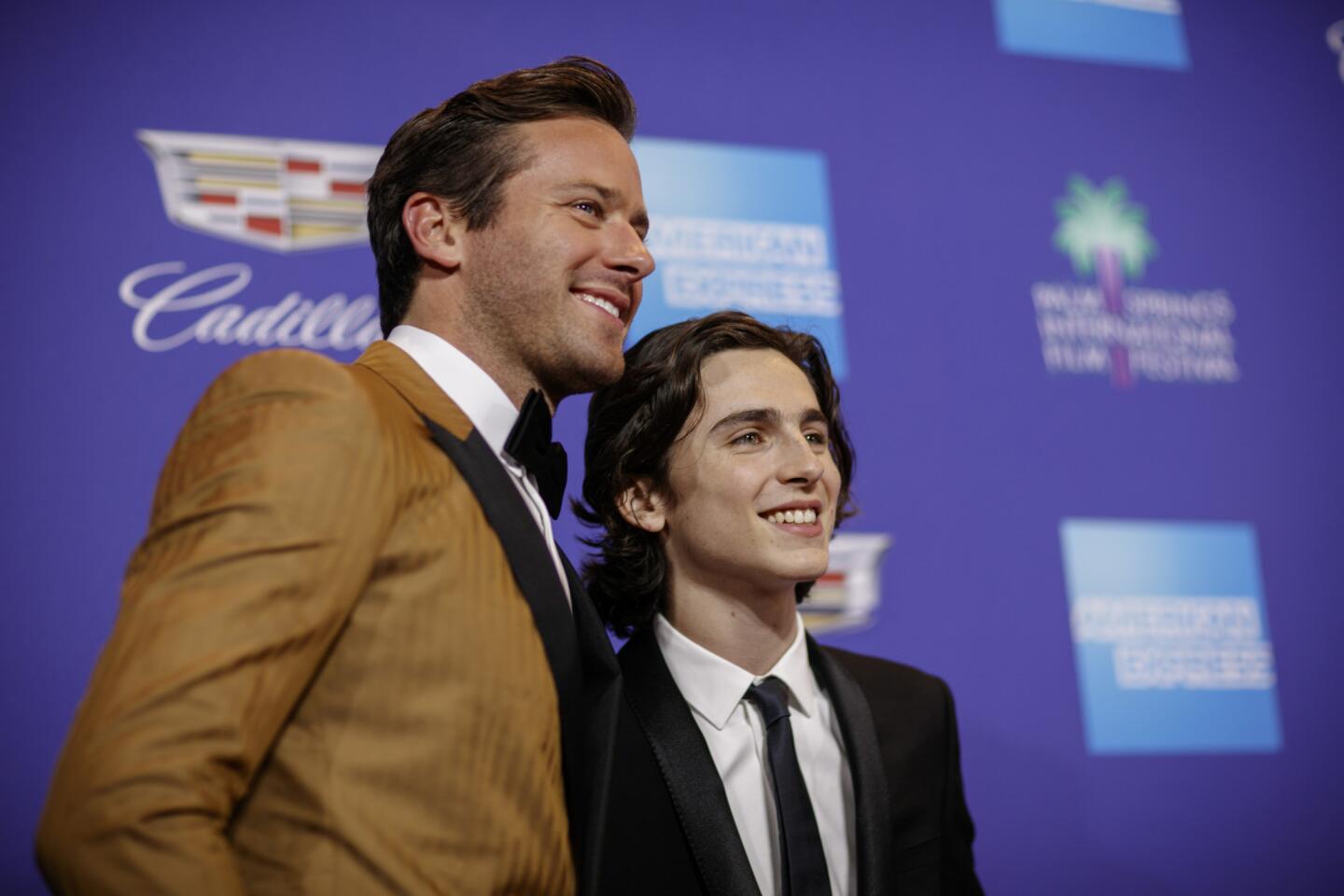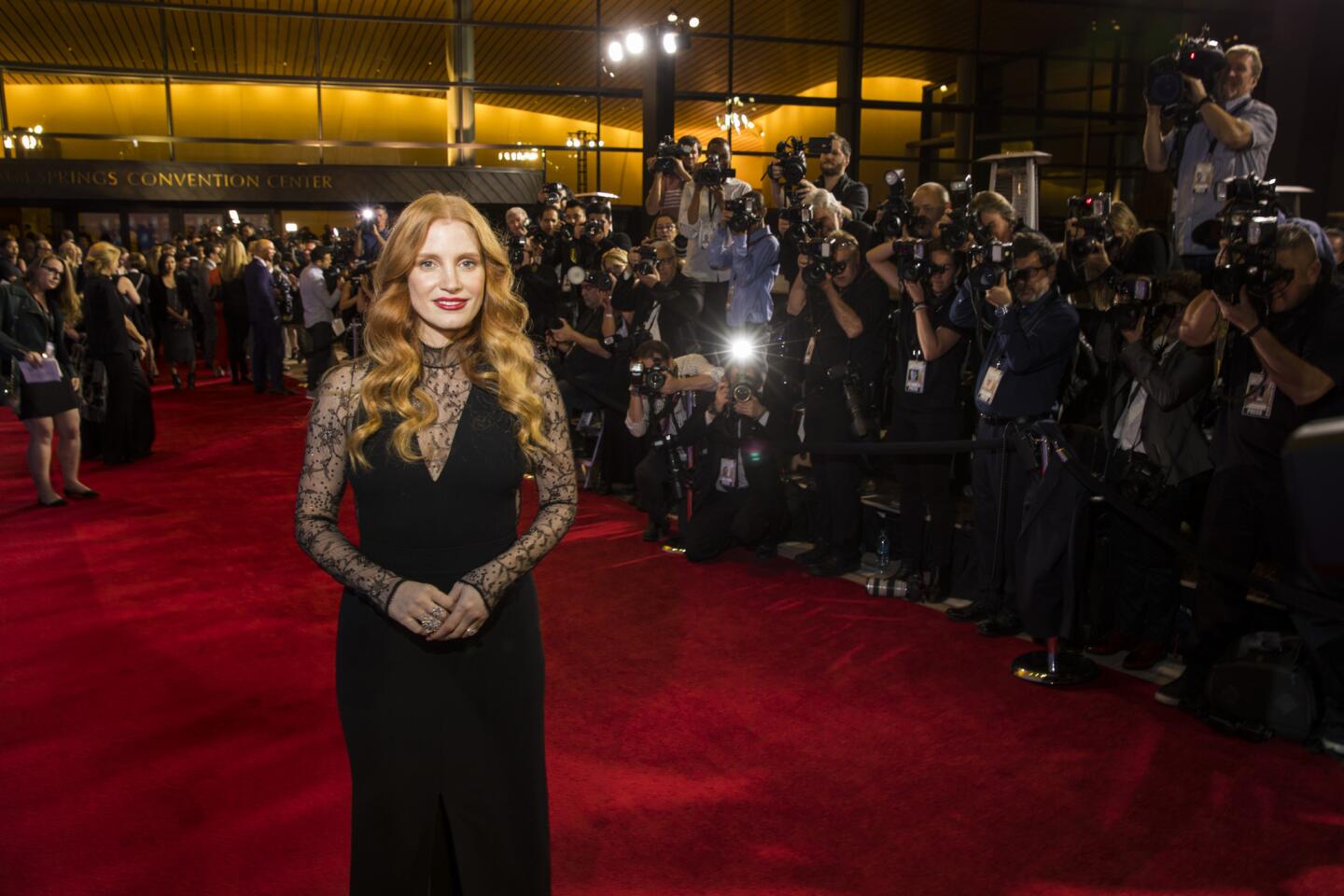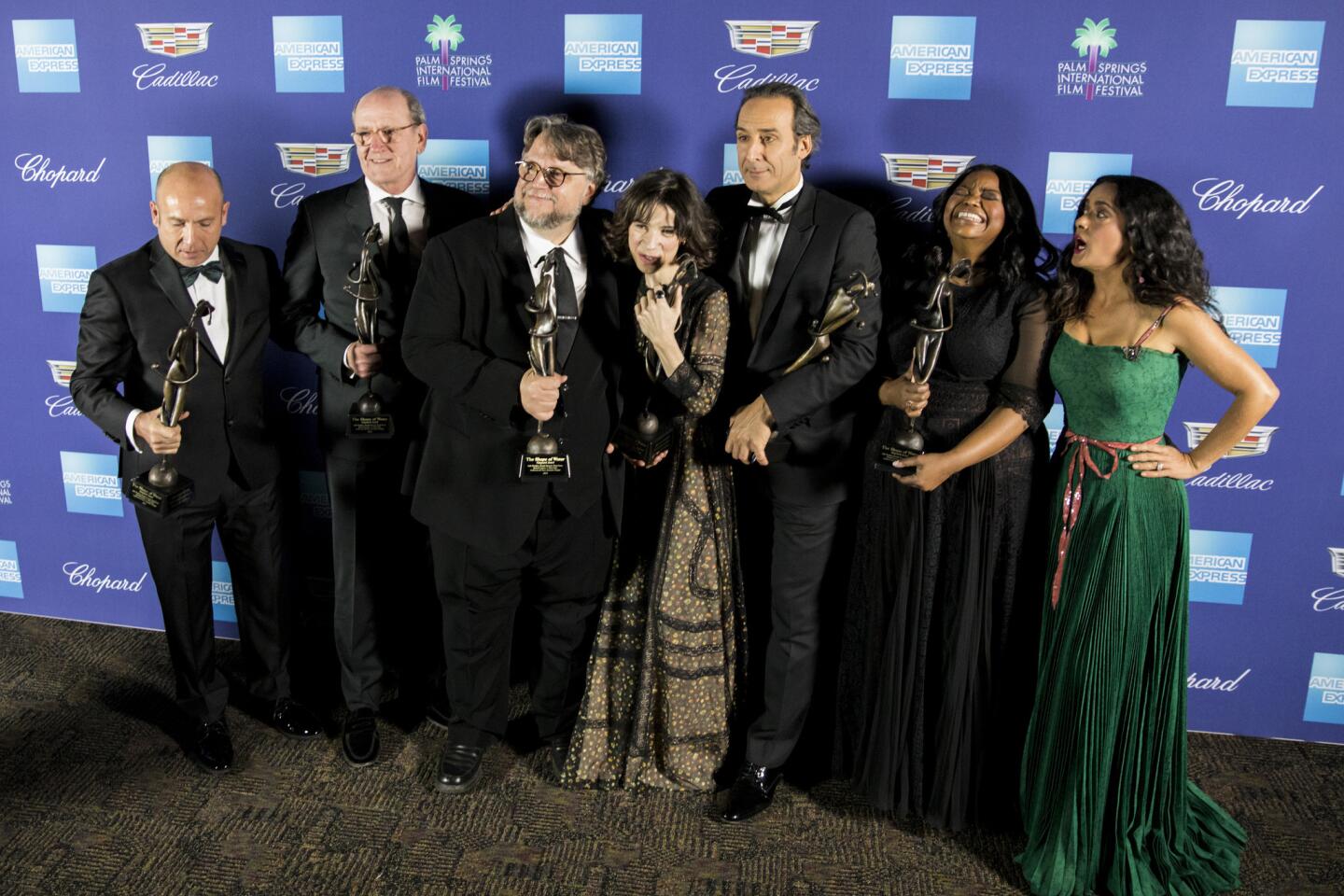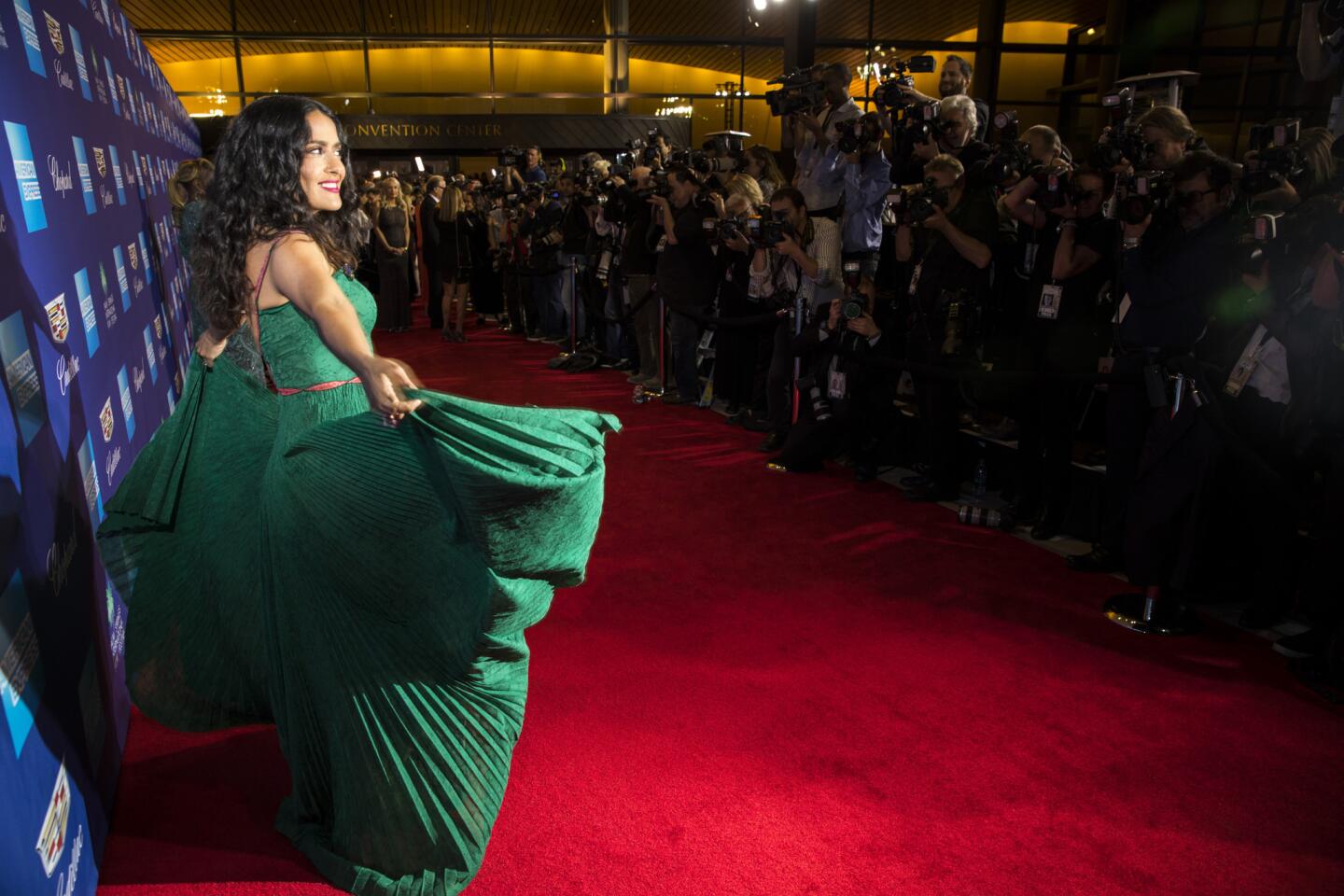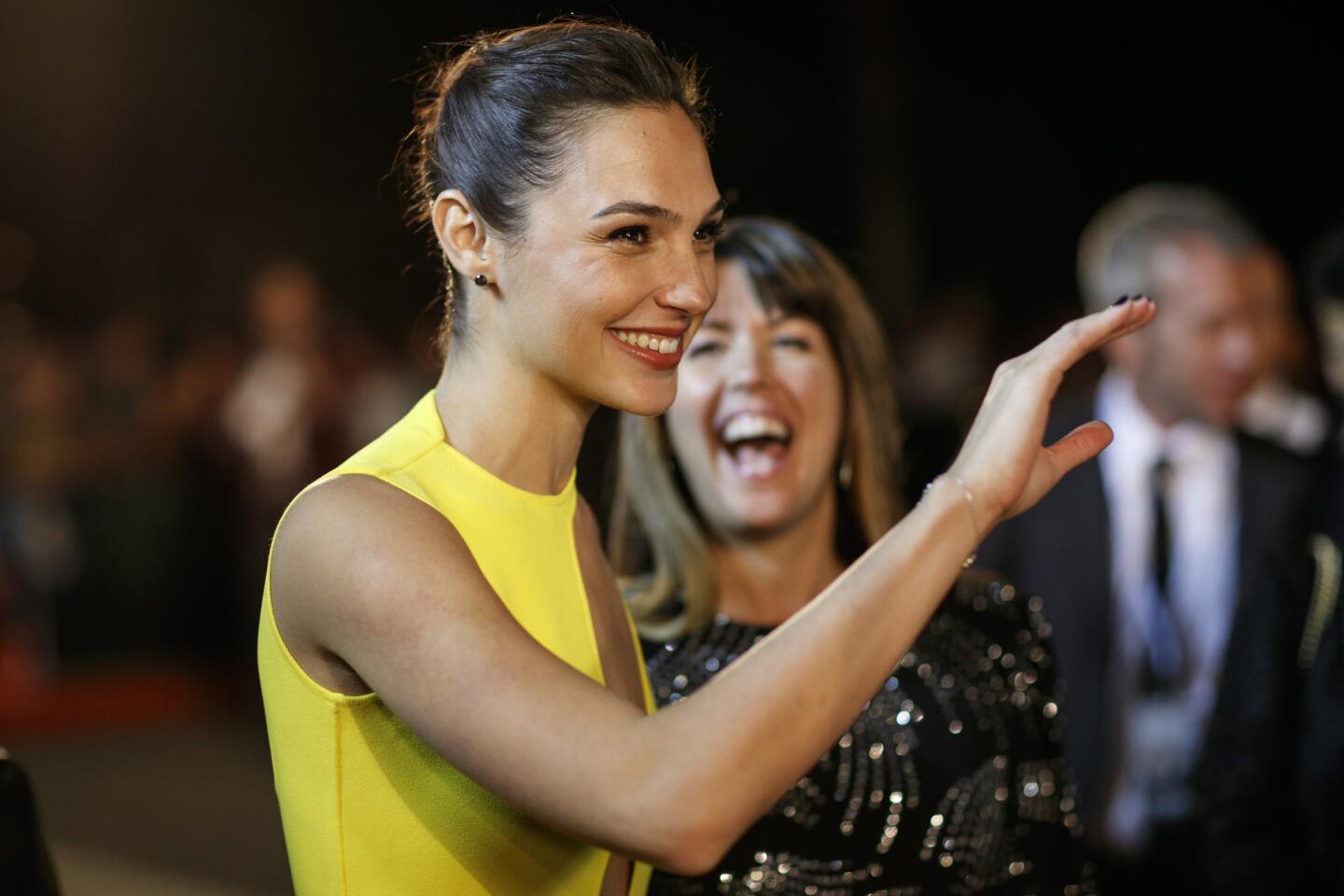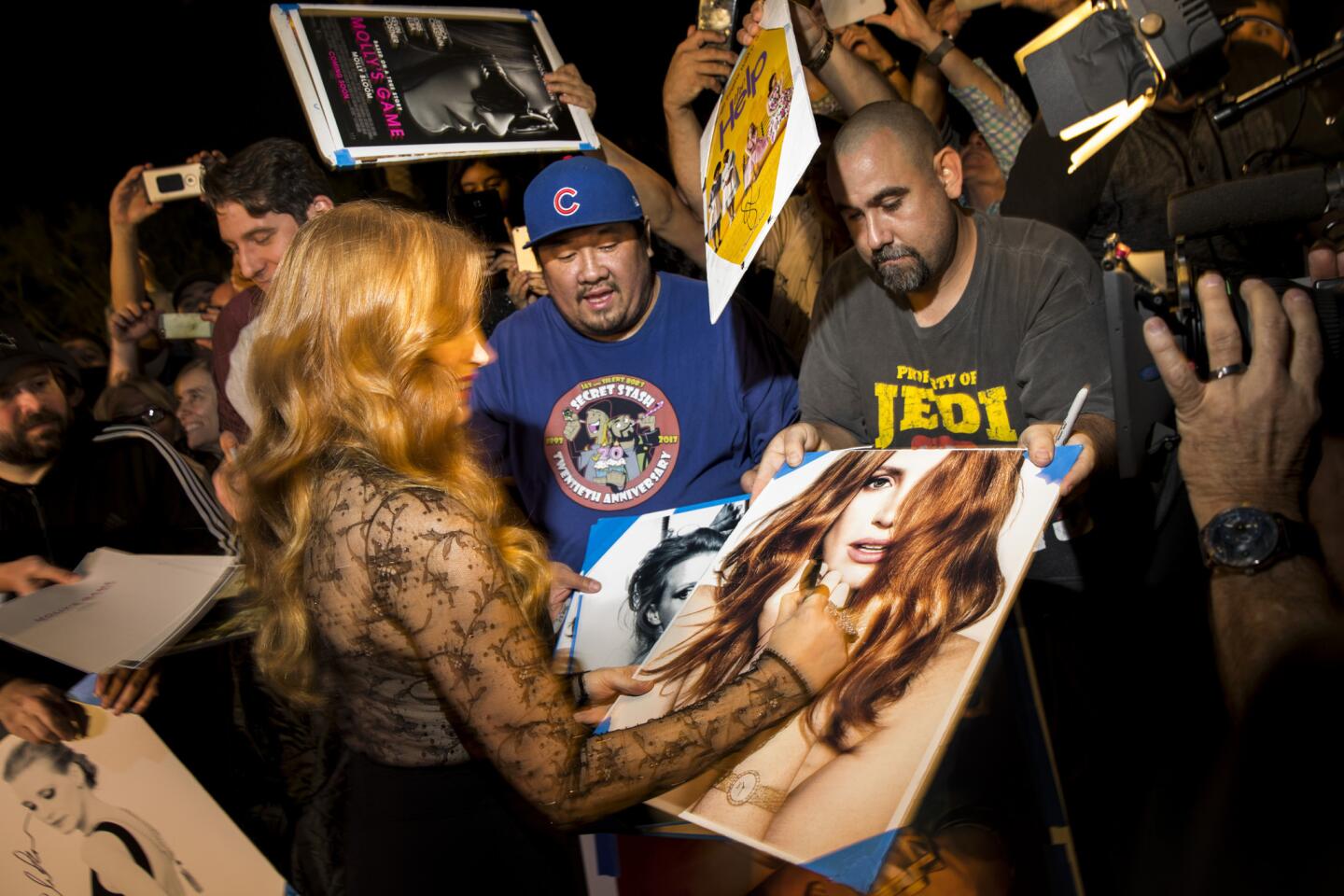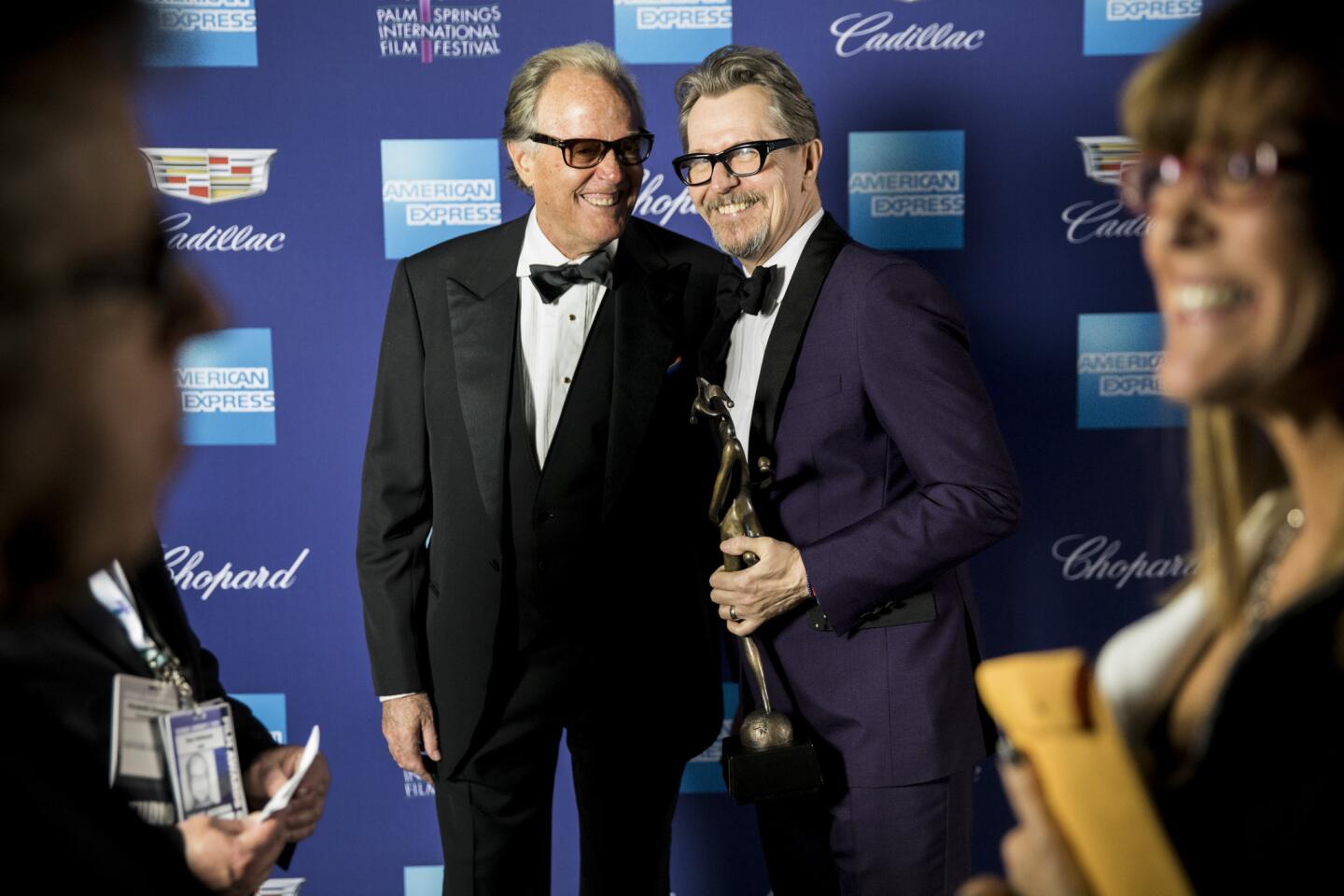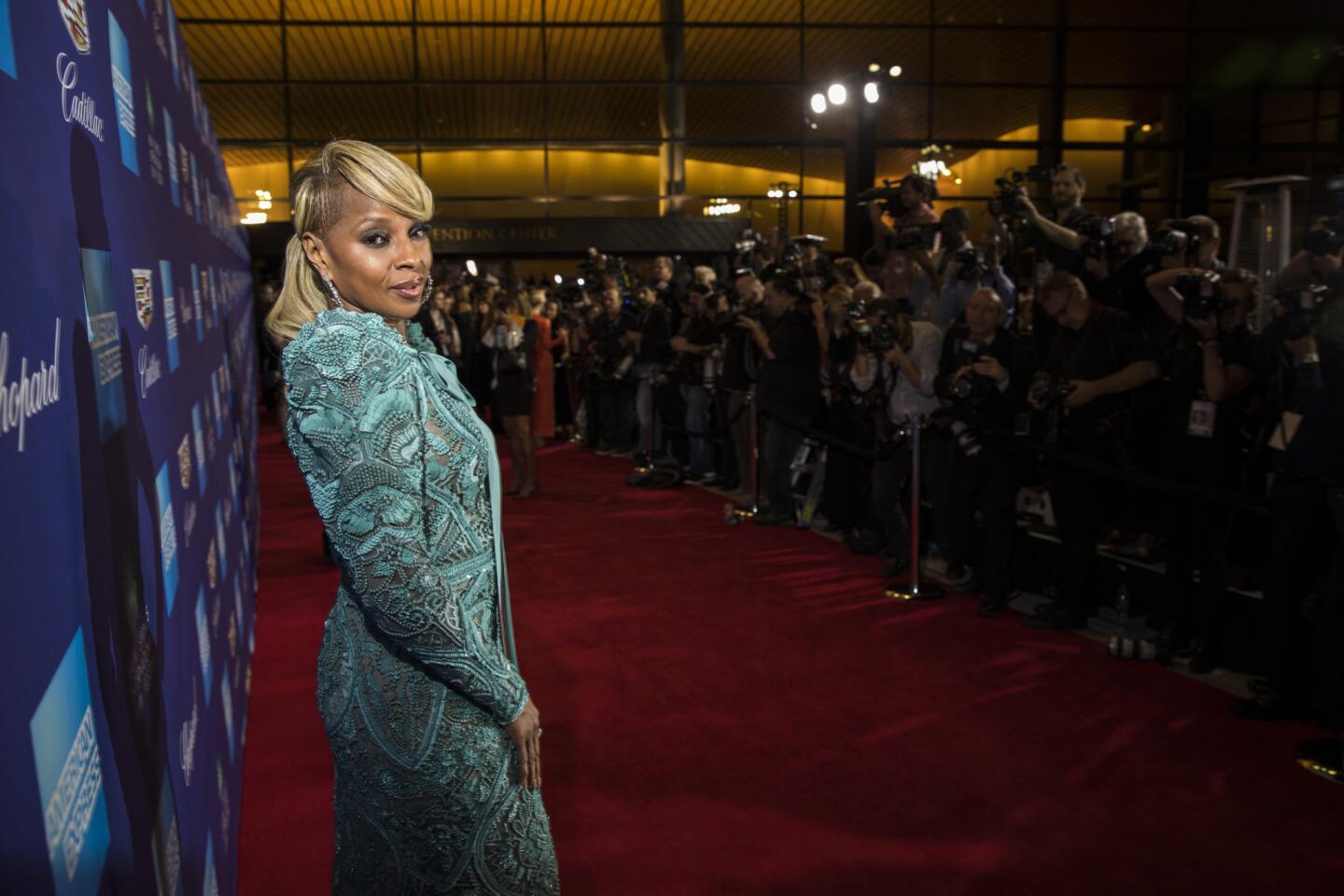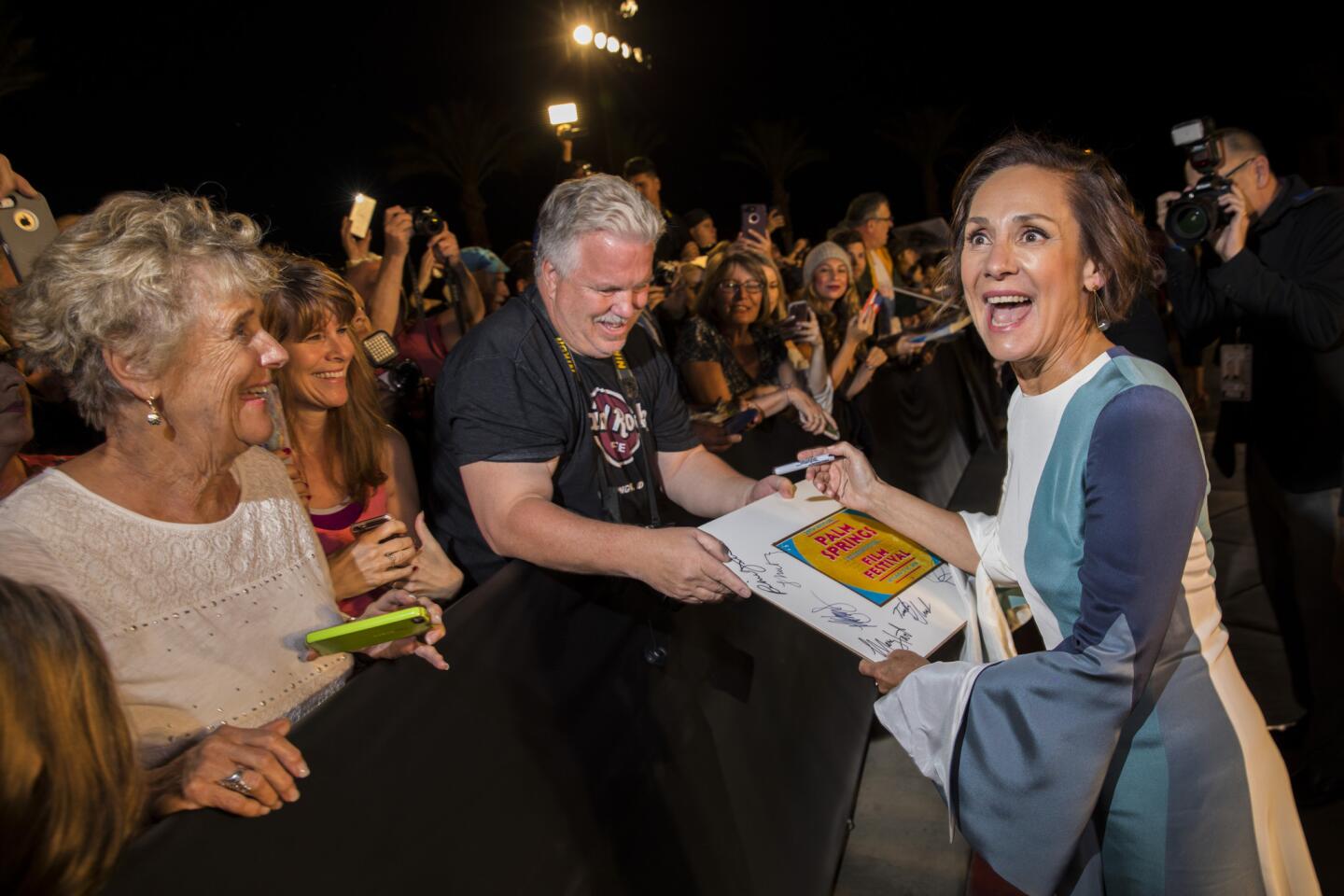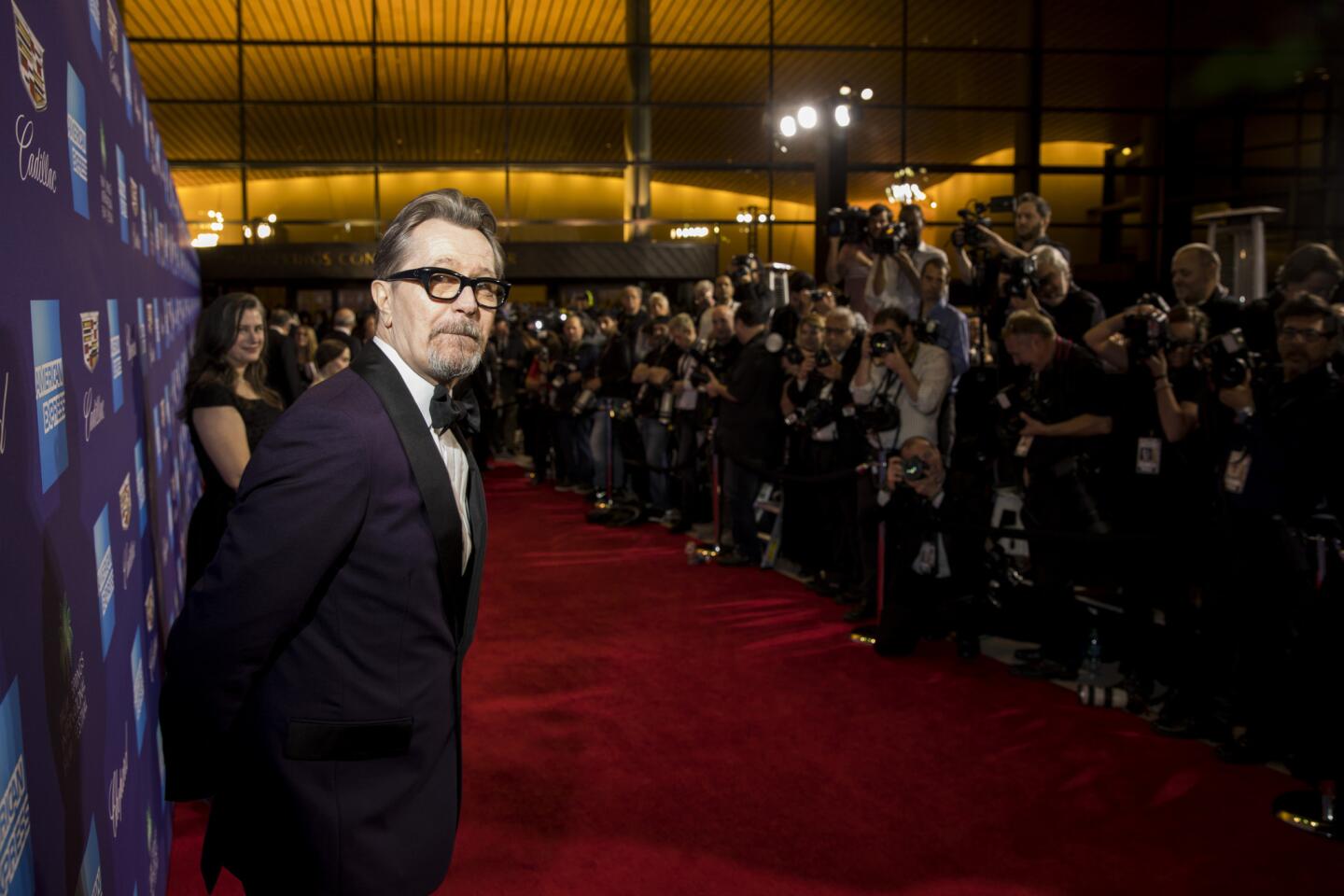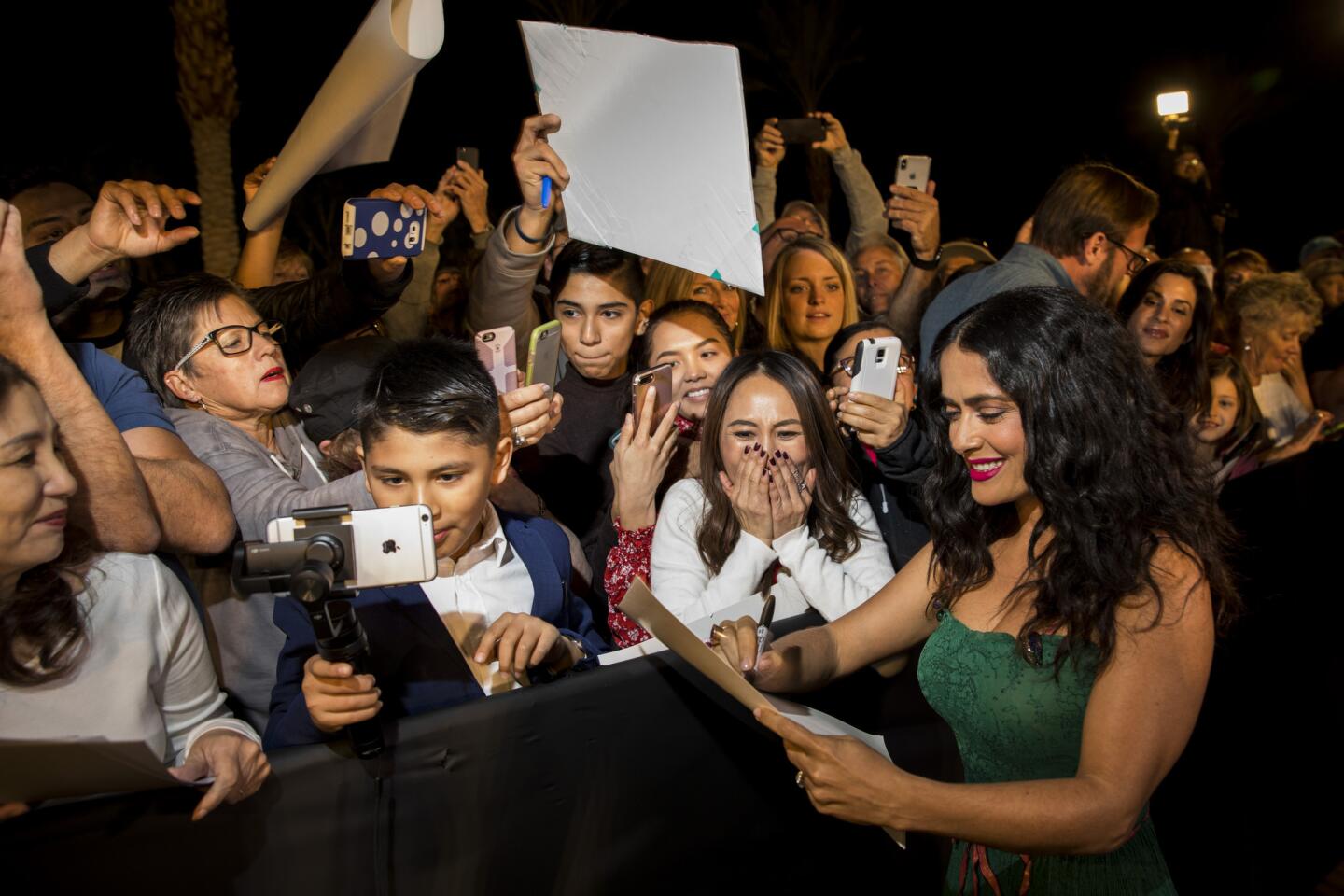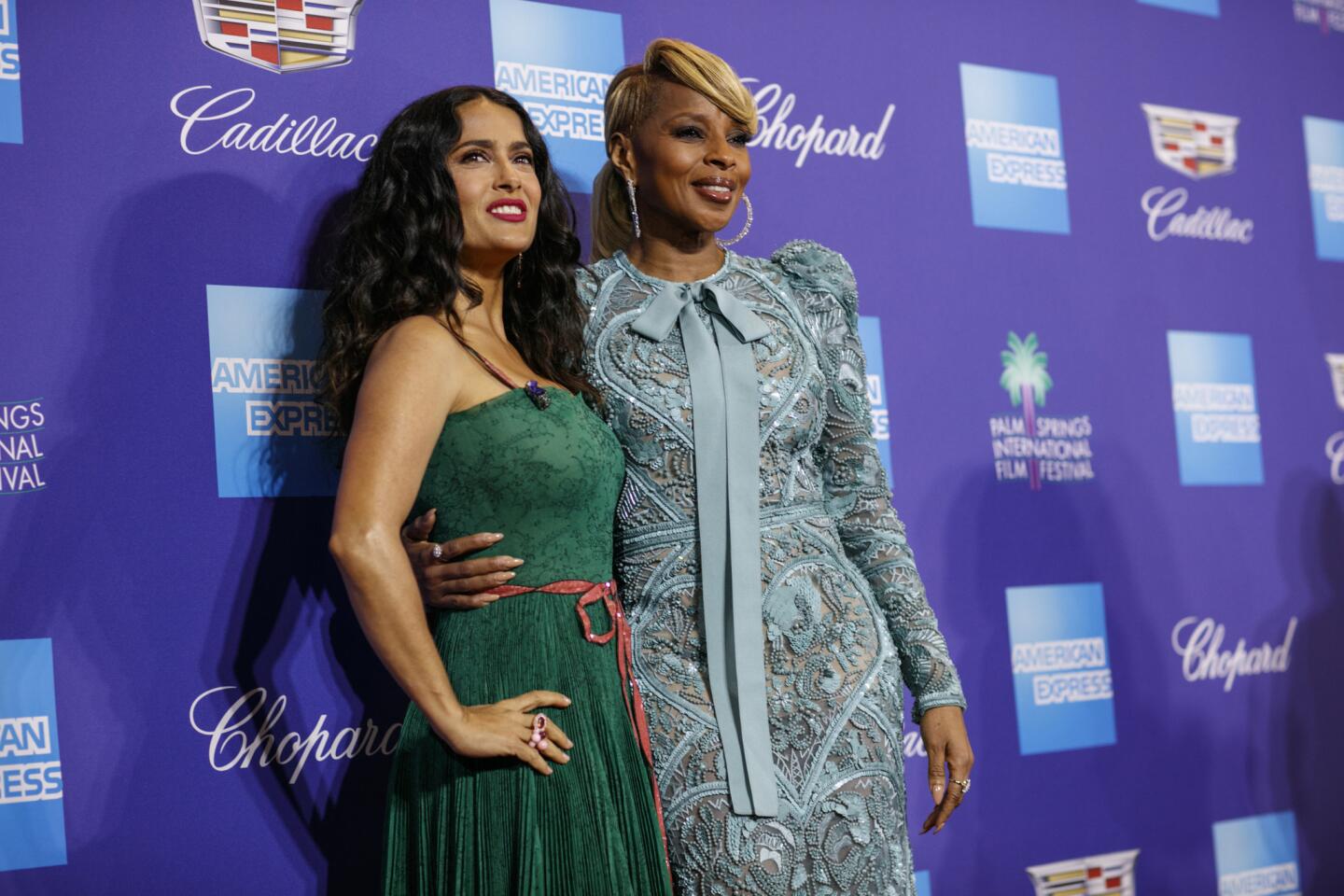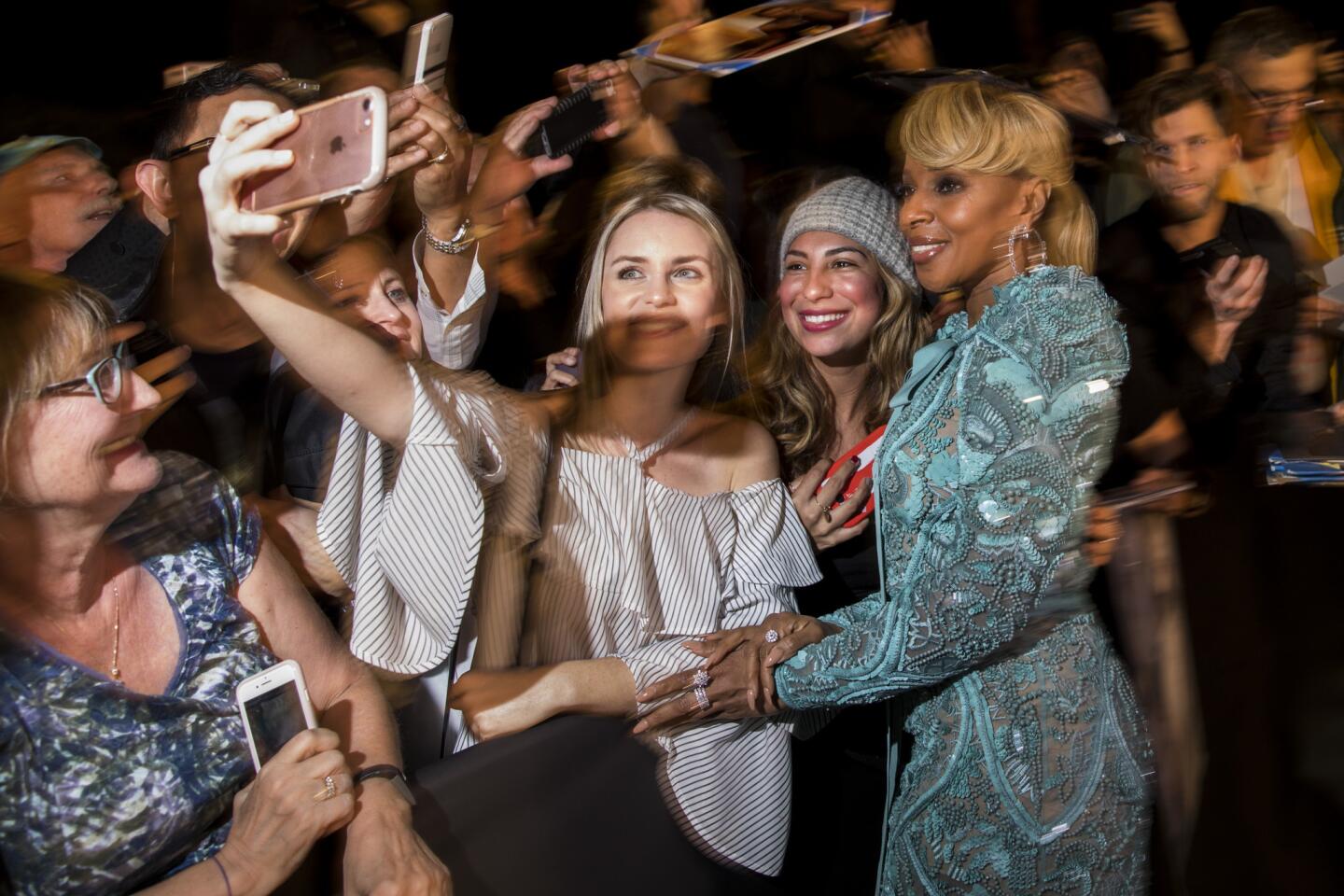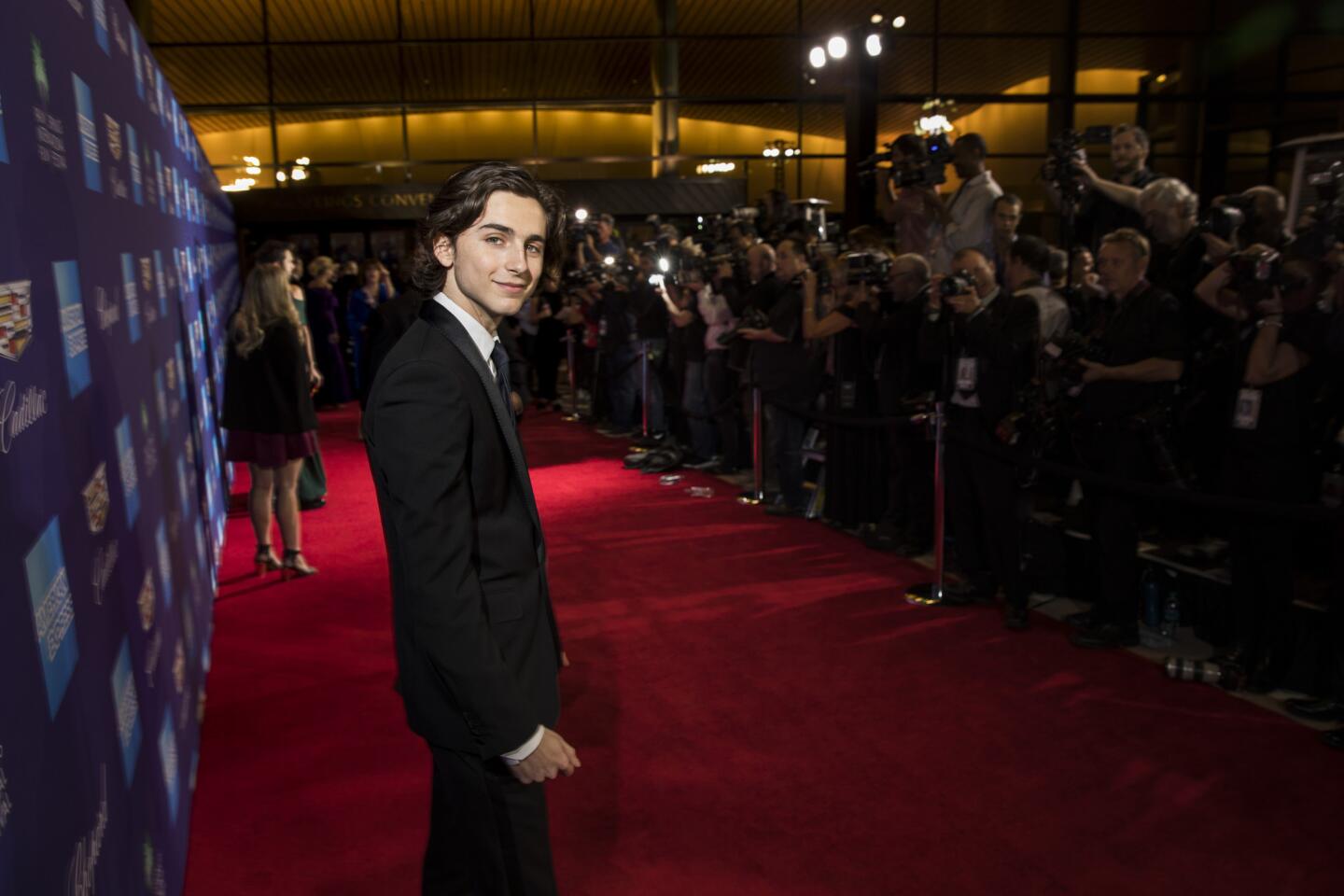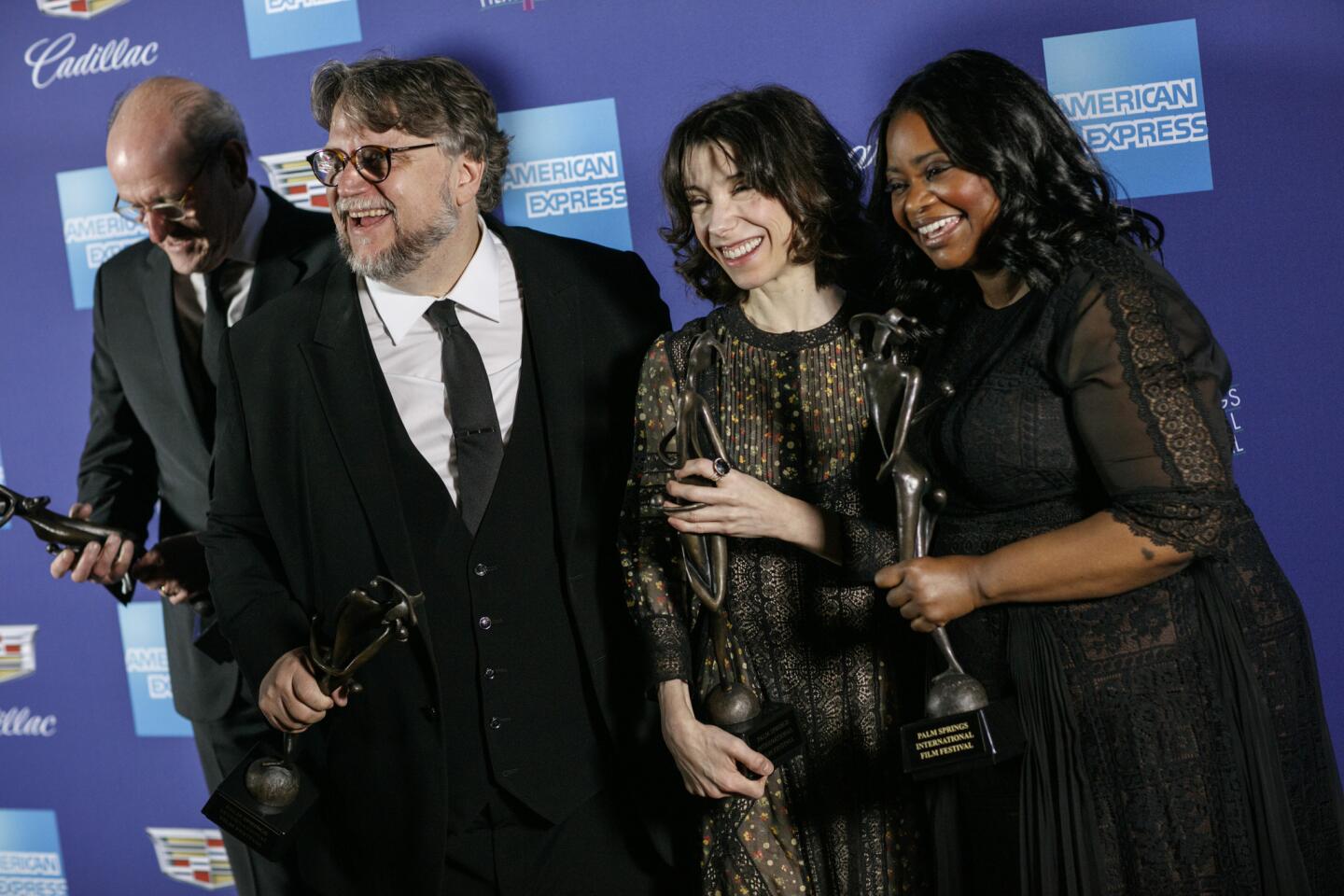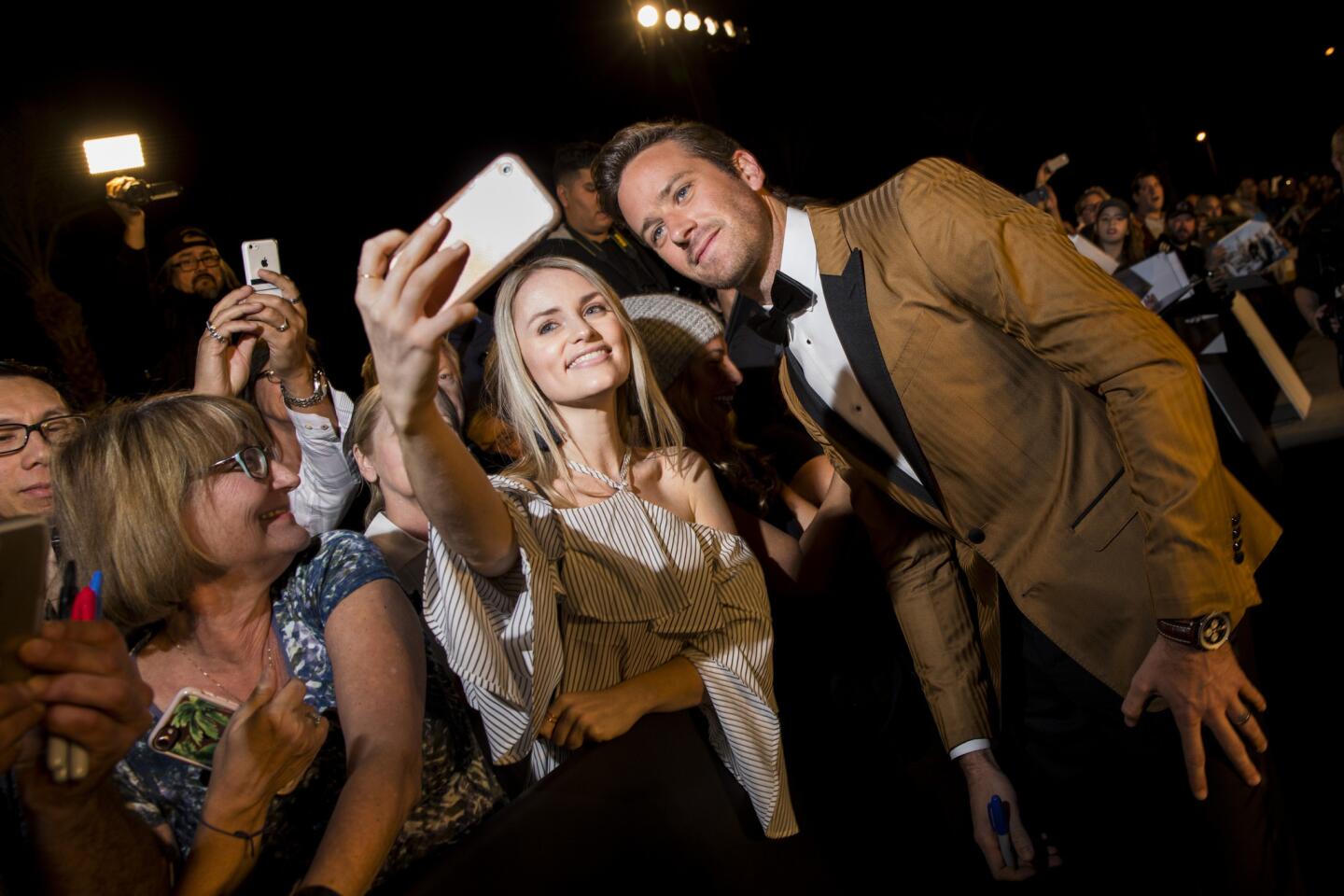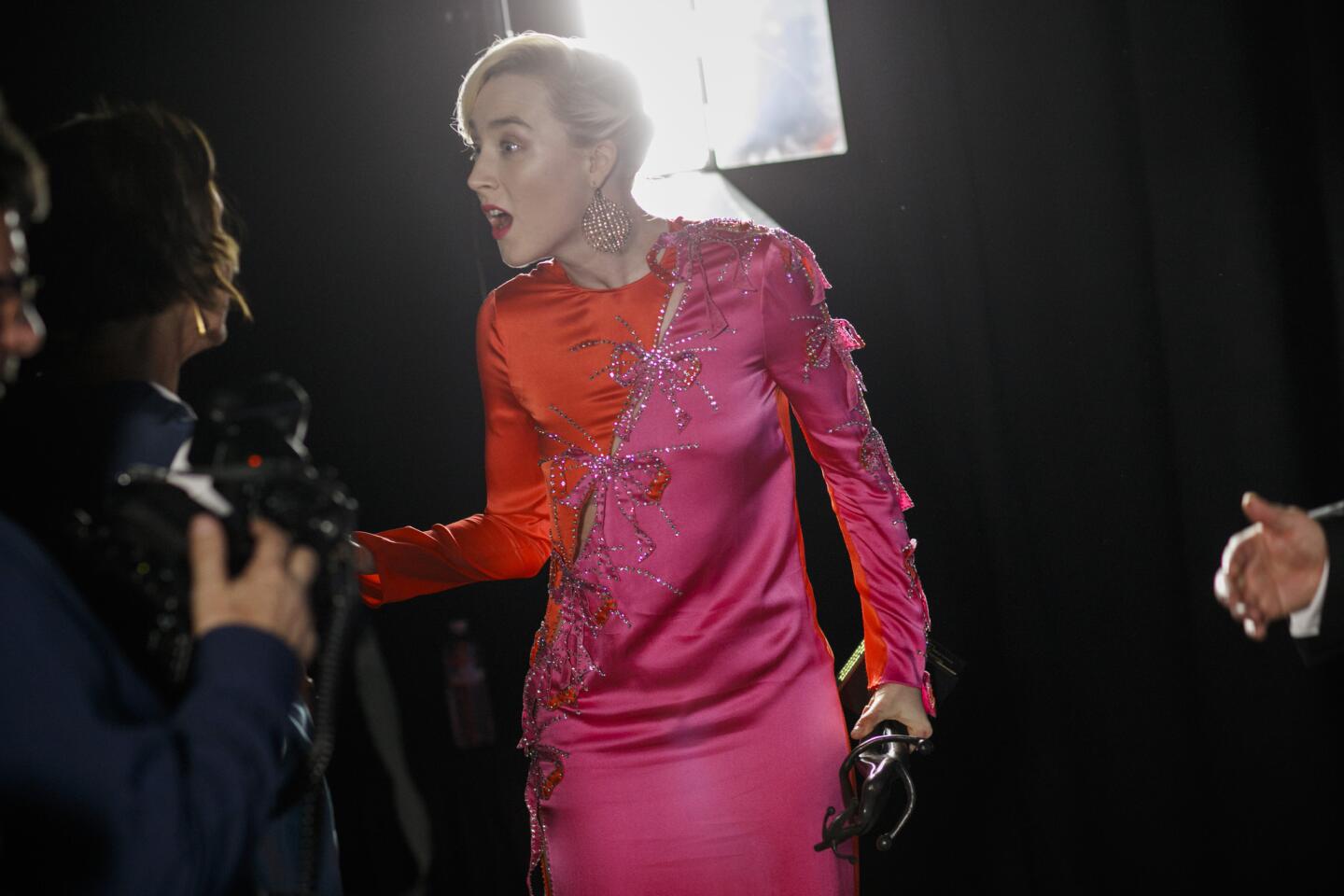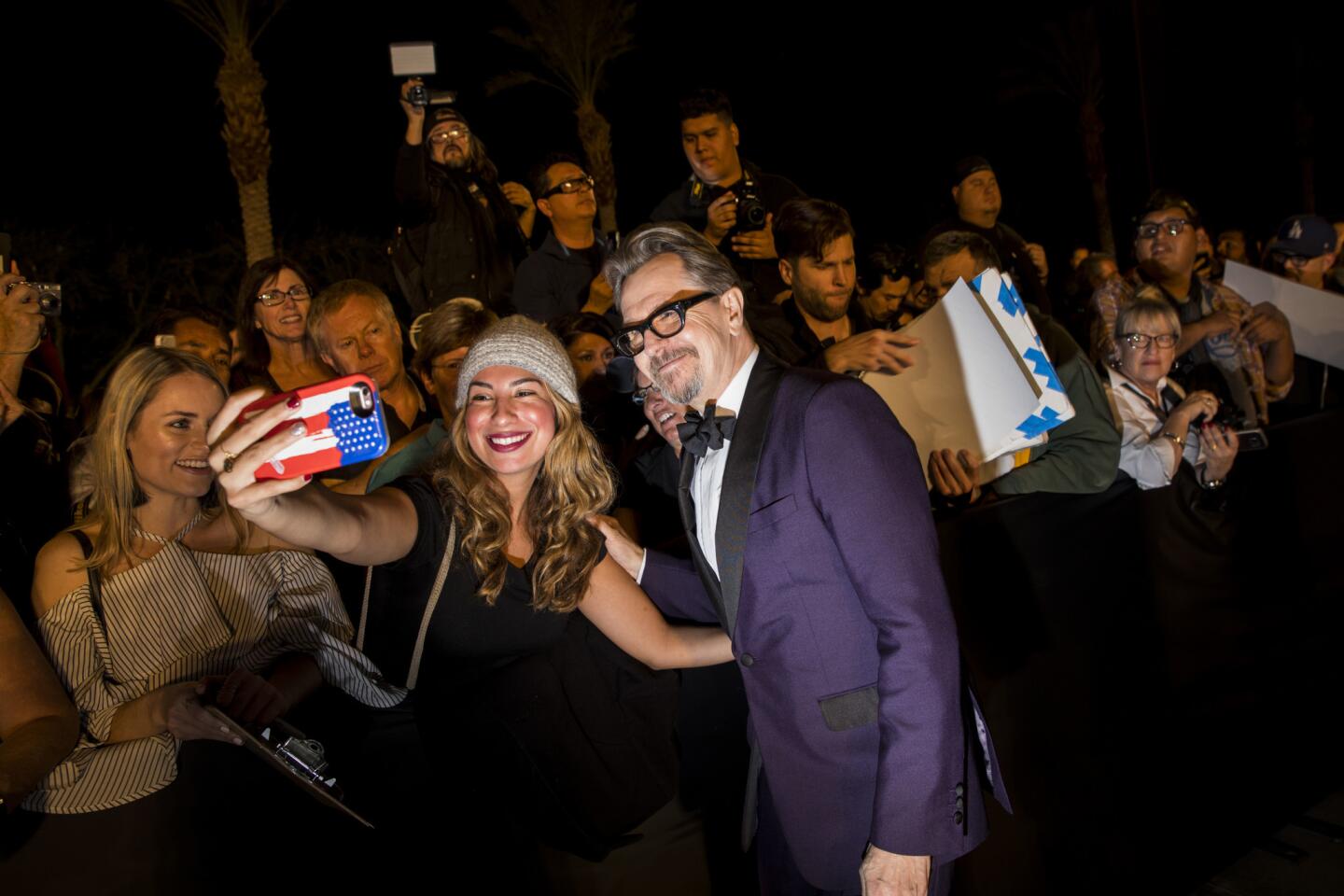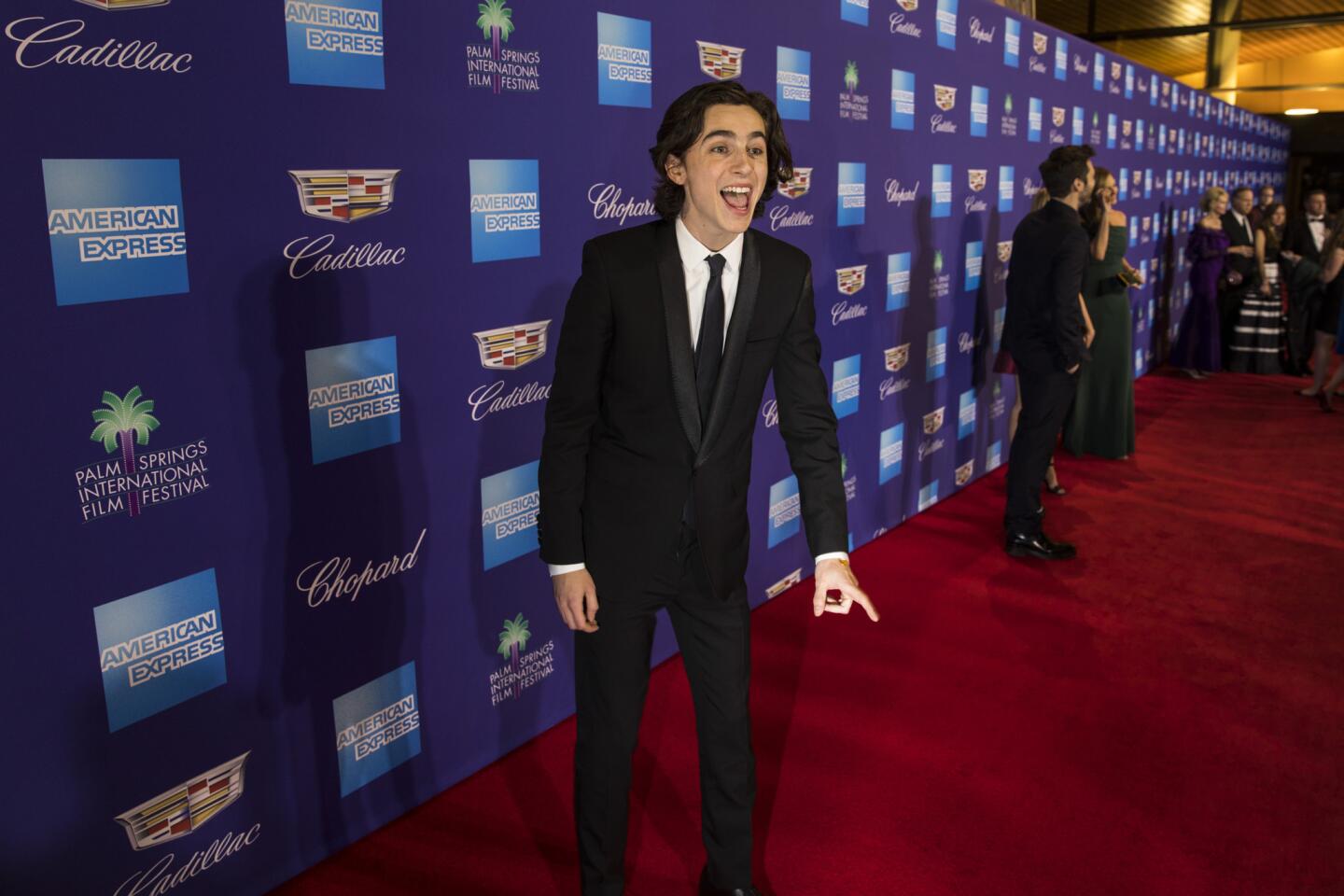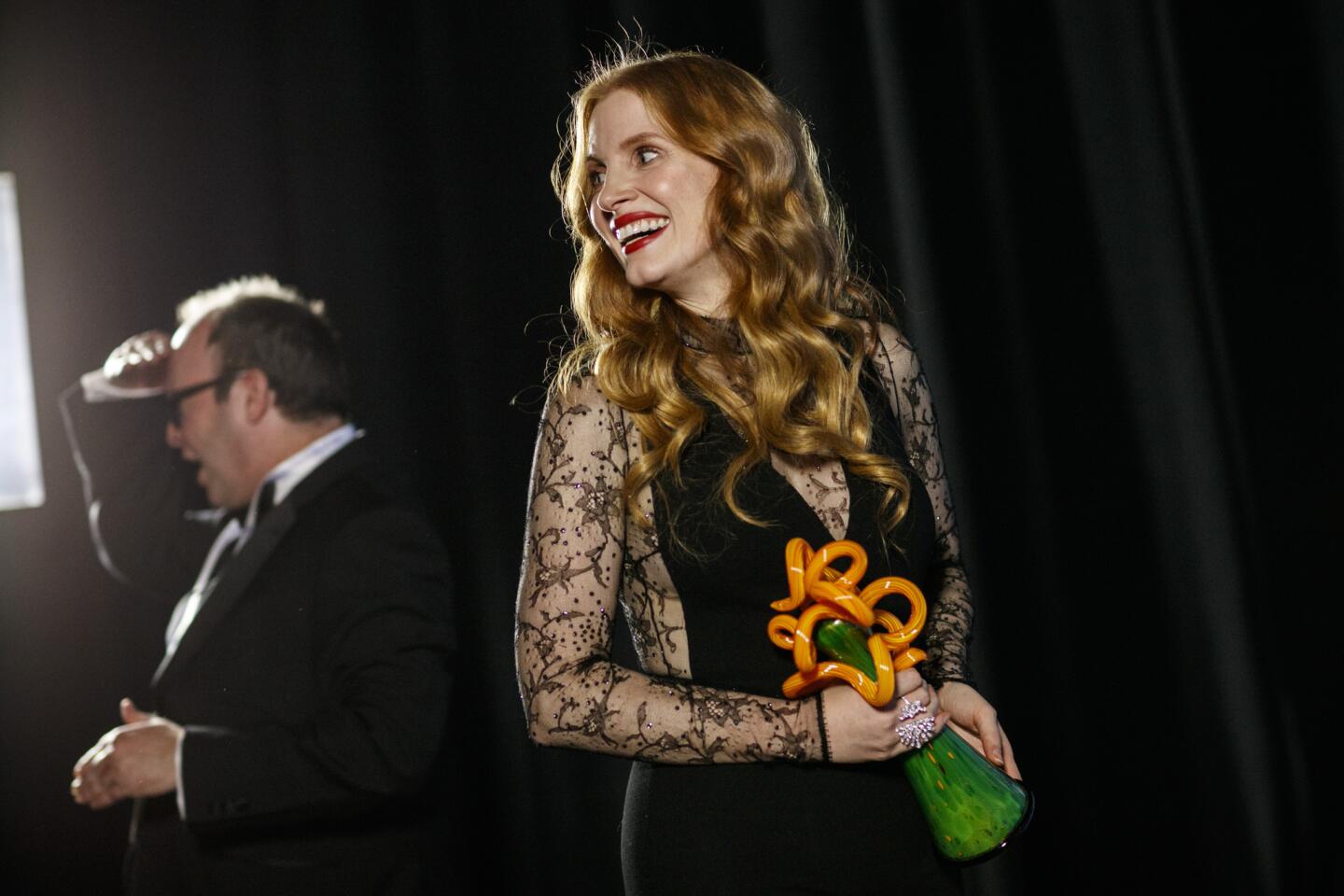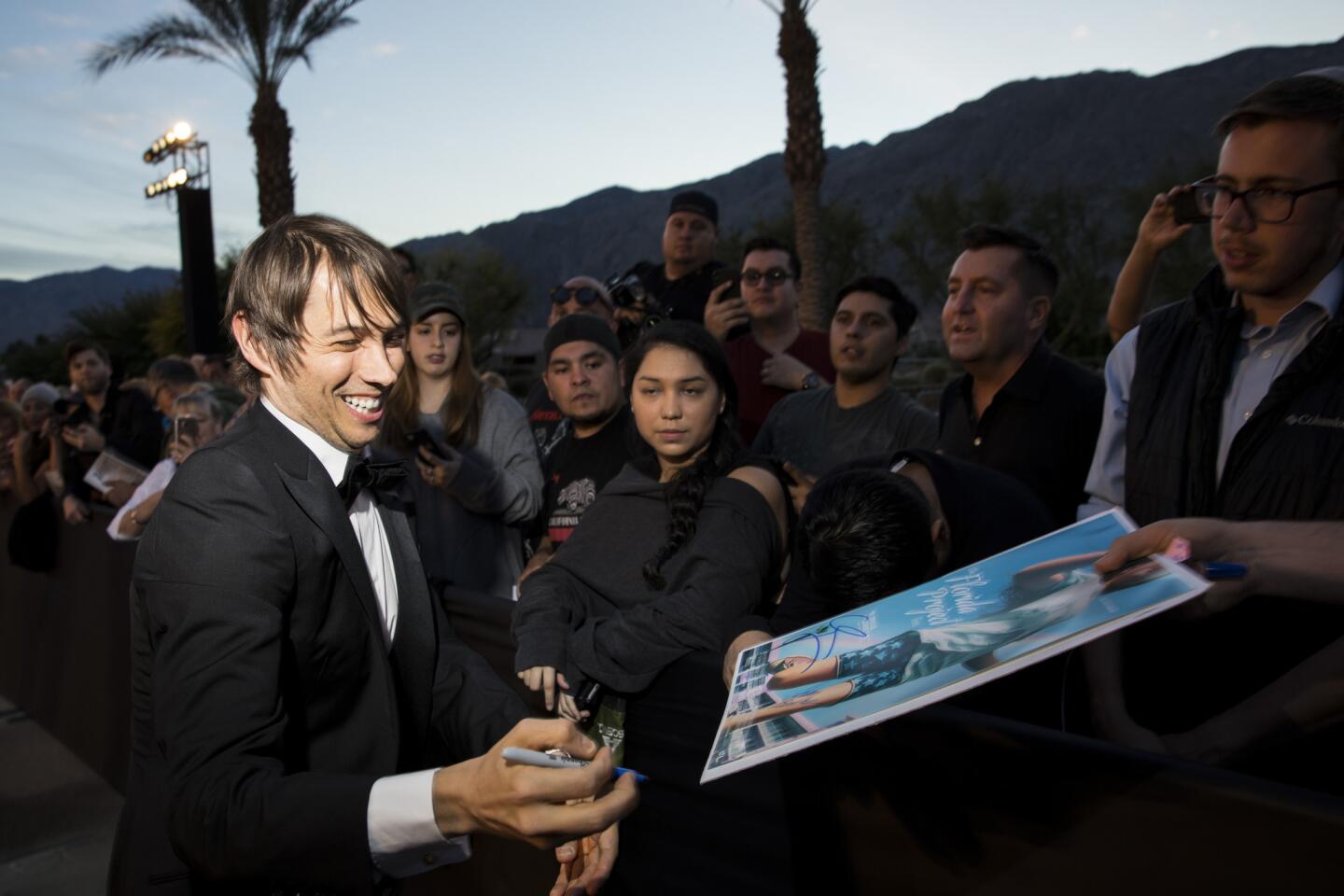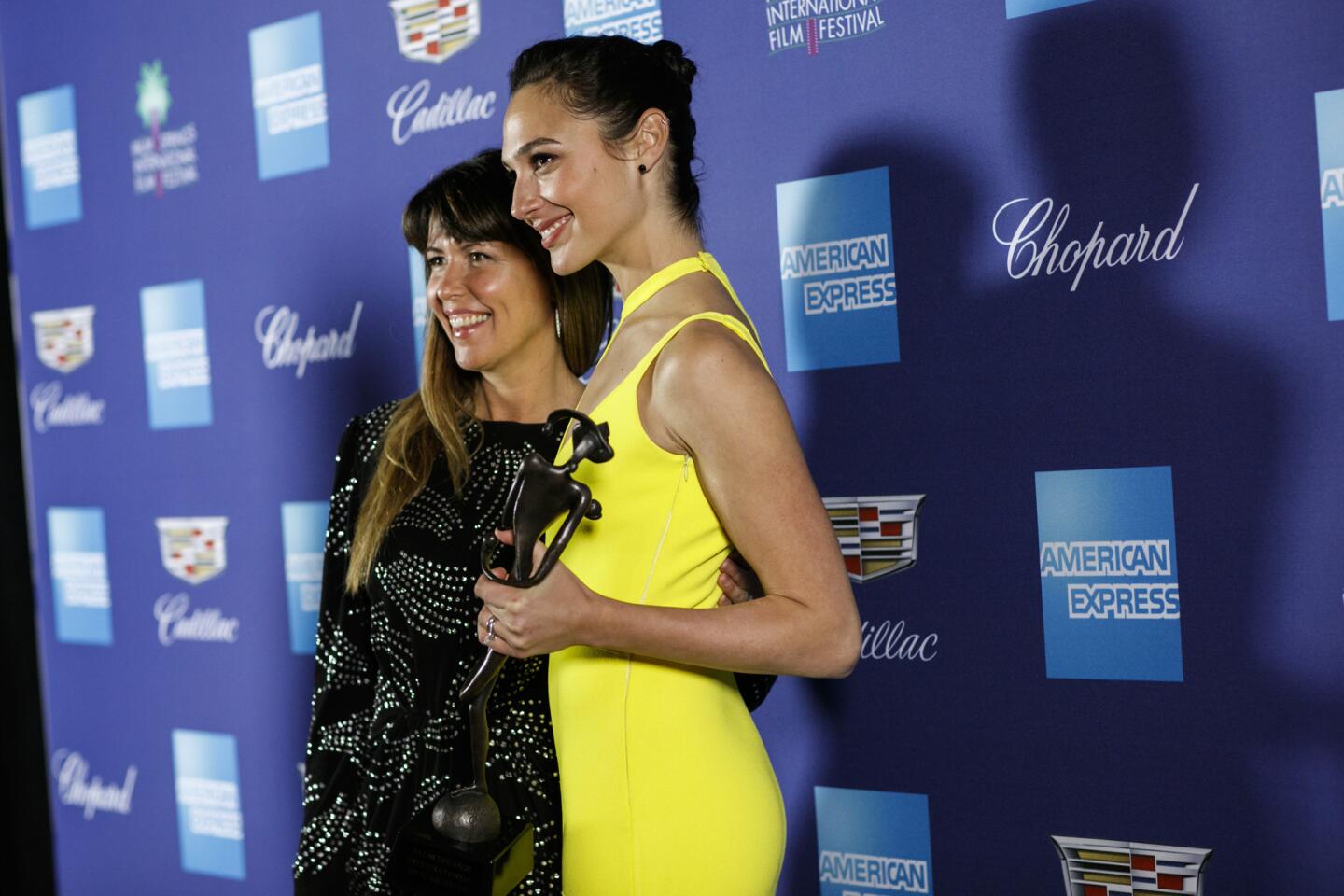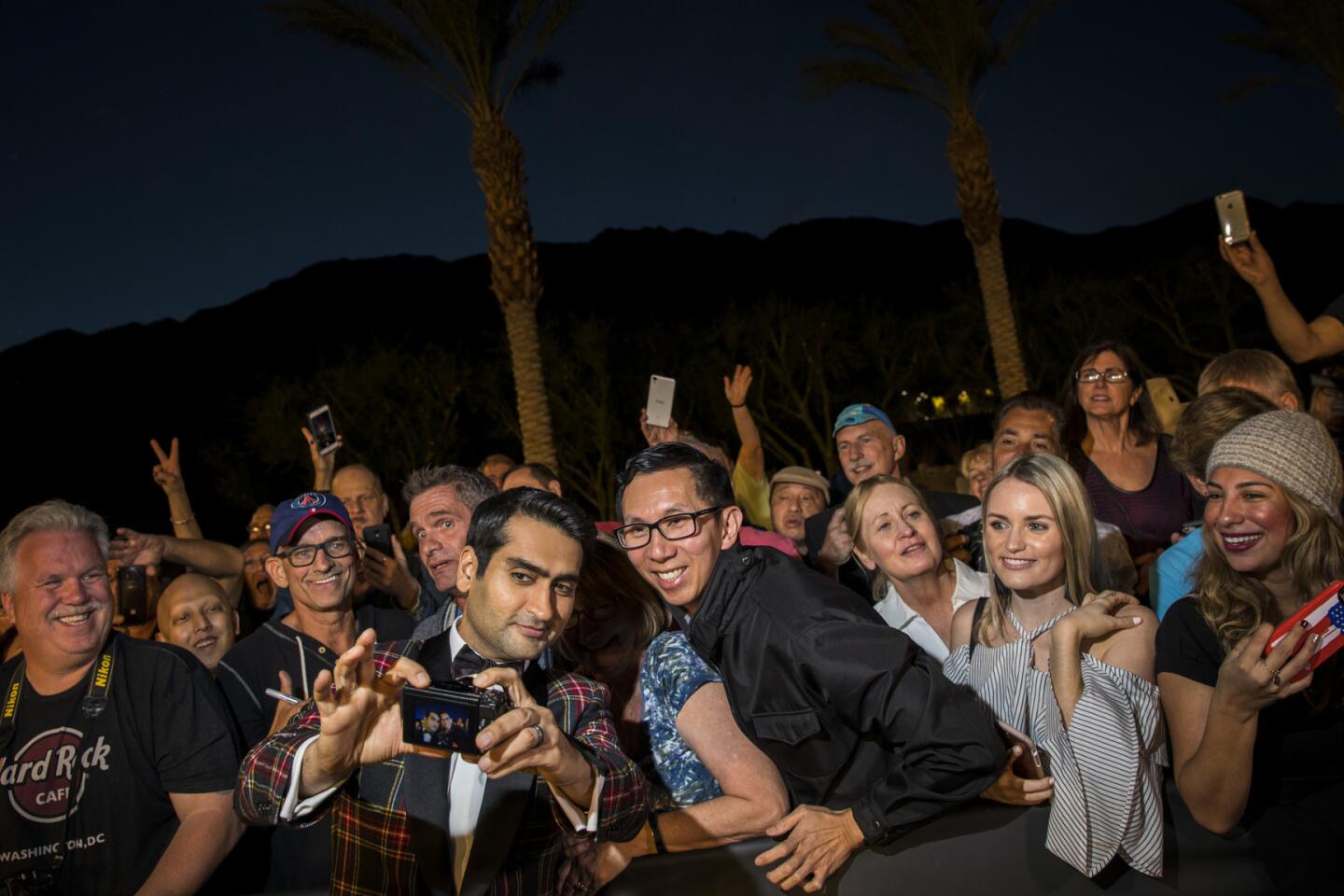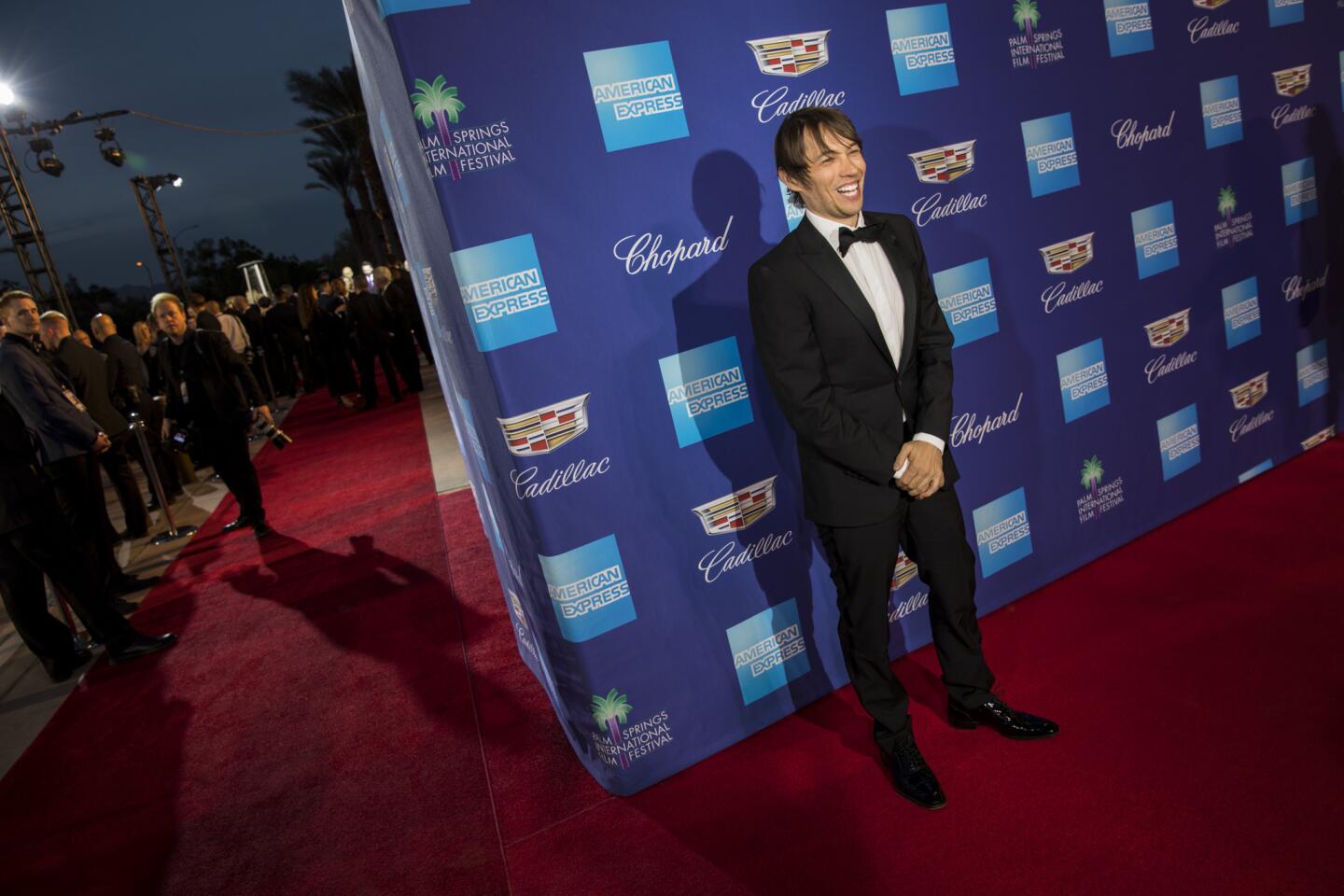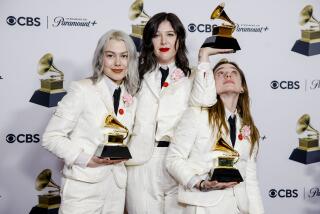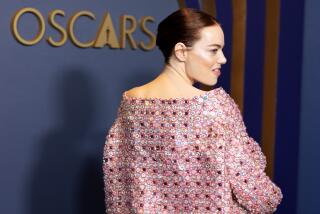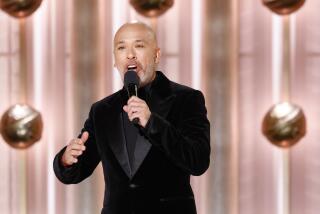How this year’s Golden Globes red carpet became a political statement and why a boycott was rejected
On Sunday, a majority of Hollywood stars will walk the red carpet at the Golden Globes dressed in black. Cloaked in the democratizing color, entertainment industry leaders are hoping to make one of the most dramatic political statements in awards season history — standing in solidarity with those who have spoken out about sexual harassment following the Harvey Weinstein scandal.
But the women behind Time’s Up — a newly formed female coalition of actresses, agents, lawyers and others who came up with the all-black plan — briefly considered taking even more drastic action: boycotting the glitzy event altogether.
“In the wake of Harvey, how do you show up at events about empowering women when we’ve learned that so much has been swept under the rug — or out there in plain sight?” said actress Tessa Thompson, who has been an active participant in Time’s Up since the organization began meeting in October. “Do we show up? If we show up, how do we show up? What are our demands and what is our narrative?”
Gathering at the homes of celebrities like Brie Larson, Eva Longoria and Sarah Jessica Parker over the past few months, Time’s Up members have been grappling with how to handle an awards season that falls in the midst of a cultural reckoning.
“We decided we didn’t want to boycott, because there were a lot of our peers who were being nominated,” said “Scandal’s” Kerry Washington, another group member who is presenting at the Globes this weekend. “We thought it was stronger to participate, but make sure we had a public sign of support.”
FULL COVERAGE: Golden Globes 2018 »
Wearing black, the women agreed, would signal to reporters at the Globes that attendees were interested in talking about more than “just what we were wearing, but why we were wearing it,” Washington explained.
This is a real first. Everyone is going to be asked about what they’re wearing, but in a different way.
— Theresa Coffino, “Extra” executive producer
The color choice — made just a few weeks ago — threw stylists and fashion designers into a panic. Gown sketches created as early as September were torn up, and with a limited inventory of black fabric, many began scrambling for the cream of the crop.
“We had to change the fabric, and that changed the aesthetic, because we had to think about whether or not the silhouettes were still going to work,” said Erica Cloud, who is styling Mandy Moore, Hong Chau and Connie Britton for the Globes. “Too much black just becomes a black hole — a universe of nothing — so what came into play for us then were the fabrics within that world and highlighting accessories. How do you stand out but still be respectful and elegant and have your own personality?”
The more serious tone planned for the event has also forced broadcast entertainment outlets — whose bread and butter is fashion coverage — to reevaluate the line of questioning they use on the red carpet.
“We definitely think there will be a different vibe,” said Theresa Coffino, executive producer for “Extra,” whose coverage will be led by Mario Lopez. “This is a real first. Everyone is going to be asked about what they’re wearing, but in a different way. Usually, some people love talking about what they’re wearing, and worked hard at it — they want to do the head-to-toe thing and do the twirls. But I don’t think you’re going to see that this year.”
The red carpet isn’t exactly filled with Edward R. Murrows. We’re all looking forward to a smarter red carpet.
— Rob Silverstein, “Access” executive producer
During previous awards shows, the entertainment show “Access” has employed a number of lighthearted gags — asking stars to “whack-a-paparazzi” in a knock-off game of whack-a-mole, or filming winners performing karaoke backstage.
“This year, we’re not planning anything like that,” said Rob Silverstein, the program’s executive producer. “Having [“Today” show anchor] Natalie Morales out there gives us a huge advantage, because she’s an award-winning journalist. The red carpet isn’t exactly filled with Edward R. Murrows. We’re all looking forward to a smarter red carpet.”
Time’s Up had its weekly meeting on Thursday evening and was planning another gathering before Sunday to specifically discuss Globes preparations and talking points. Washington said she was planning on highlighting the group’s legal defense fund, which has raised more than $15 million through donations from nearly 10,000 people.
She said she would also be encouraging viewers to use the hashtag #WhyWeWearBlack, so those wearing “black sweatpants or a T-shirt at home gathering with their friends can take a picture and share their story.” Those Globes attendees who purchased a non-black outfit prior to the Time’s Up announcement have been offered pins with the group’s logo on them to wear as a show of support.
“Wearing black is an opportunity to talk about all the other things that we’re doing. It’s less about trying to reclaim the red carpet — the red carpet is what it is,” Washington said. “We’re saying that we are three-dimensional, fully realized human beings as women. We are participants in this entertainment industry, and we have something to say.”
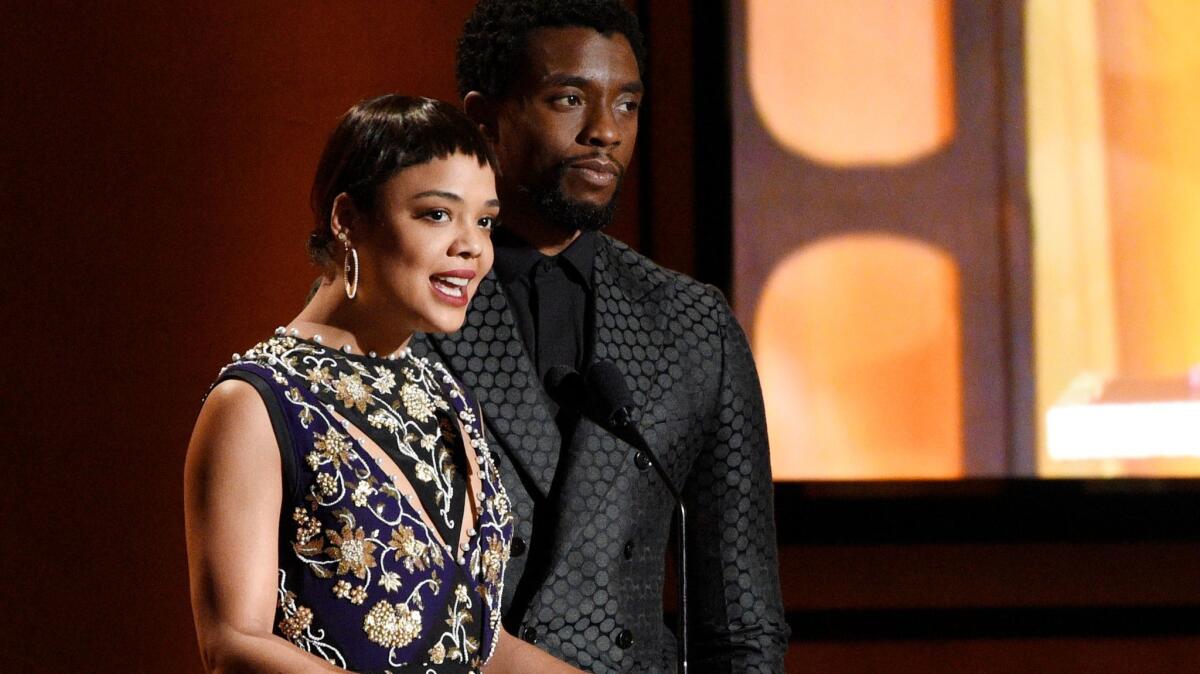
I just think it would be really tone deaf to ask too much about who made the black dress.
— Tessa Thompson
Traditionally, the red carpet has served as a place for stars to show off prohibitively expensive fashion and answer fluffy questions about glam prep. While Jane Fonda famously wore a somber black Yves Saint Laurent pantsuit as a way of protesting the Vietnam War, red carpet political statements have largely been limited to ribbons worn to bring awareness to HIV/AIDS, breast cancer and LGBTQ rights. That began to shift in 2015, when Reese Witherspoon posted an Instagram message with the hashtag #AskHerMore urging journalists to come up with more “creative questions” on the carpet than “Who are you wearing?” While the campaign was embraced by the likes of Shonda Rhimes and Gloria Steinem, it was met with mixed response by the media.
“I don’t know that a red carpet is the right place — for either the interviewers or the interviewees — to do a deep dive on political or serious topics,” admitted Sharon Hoffman, executive producer of “Entertainment Tonight.” “It’s not the nature of the event. It’s hard to set up a red carpet for entertainment recognition and joy and take the position that we want to try to make it a more serious place than it is.”
Because the Globes have a reputation for being a “fairly raucous” event — nominees sit at tables stocked with alcohol and drink freely — Hoffman said she wants the outlet’s coverage to “do justice to that. Our audience loves fashion and style coverage, and we usually deliver a considerable amount. So we have to balance the fun night with the seriousness of these wardrobe choices, and that’s delicate.”
“Entertainment Tonight’s” hosts — Nancy O’Dell and Kevin Frazier — plan to wear black, which Hoffman acknowledged was a “tricky” decision because it could be viewed as a political statement.
“But in this case, we didn’t want to appear to be making a statement of some kind by not having them wear black,” she said. “And I don’t think it’s terribly controversial to say we’re supportive of women who have experienced harassment and had the courage to come forward and speak about it.”
Even after the red carpet shuts down, Time’s Up members plan to remain active throughout the entirety of Sunday evening. The group is organizing an activation at the Warner Bros./InStyle Globes after-party, where GoFundMe representatives will be on hand to take donations for the legal defense fund.
“We’ve been talking about where everyone is best placed for the evening,” said Thompson, who said she will likely host a private West Coast viewing party for Time’s Up participants during the show. “There’s this idea that there’s elitism inherent when [actresses] talk about issues that we face — the idea that we aren’t capable of thinking beyond our own noses. I think that’s shifting. On Sunday, you can expect people to talk to people about some of the Time’s Up initiatives — but we want women to talk about their work too. I just think it would be really tone deaf to ask too much about who made the black dress.”
Follow me on Twitter @AmyKinLA
ALSO
Jessica Chastain is leading the charge for a new kind of Hollywood, both on-screen and off
She accused director Brett Ratner of rape in a Facebook post. Then he sued her for defamation
Olivia Munn doesn’t understand why anyone is still working with Brett Ratner
Ex-’Bachelorette’ segment producer discusses why she sued Warner Bros., alleging sexual harassment
More to Read
Only good movies
Get the Indie Focus newsletter, Mark Olsen's weekly guide to the world of cinema.
You may occasionally receive promotional content from the Los Angeles Times.
